Revealed: Big Oil’s teaching deal shelved
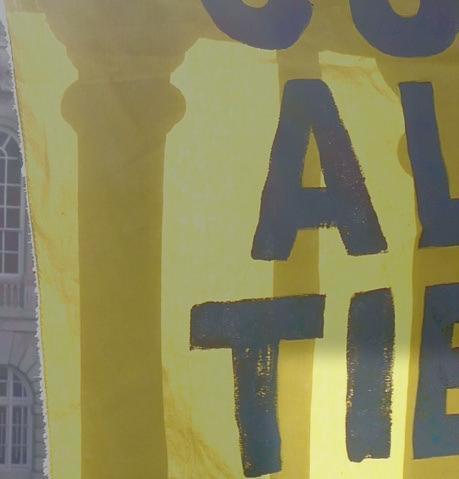
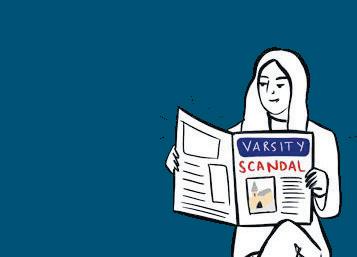 Erik Olsson Senior News Editor
Erik Olsson Senior News Editor
e chemical engineering department has “paused” a scheme which gave oil companies a say over the academic content of its courses in exchange for money, a freedom of information request (FOI) has revealed.
As paying members of the department’s so-called “teaching consortium”, oil companies such as BP, Shell and ExxonMobil were able to “assist with teaching” and “provide input” on the contents of the chemical engineering course in return for funding.
According to the FOI, the teaching consortium has now been “paused” and all memberships have “lapsed” amid departmental concerns over “the external political environment”.
During Lent term, the chemical engineering department was subject to vandalism from the activist group “ is Is Not a Drill”.
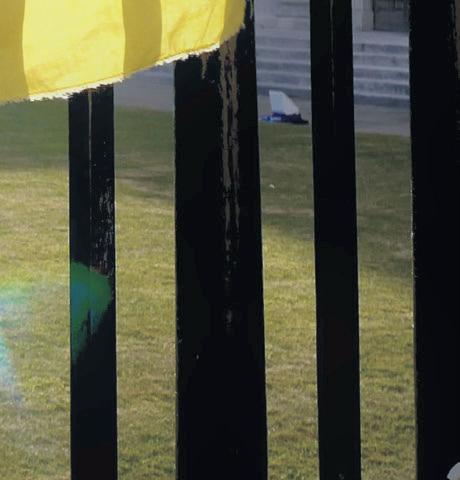
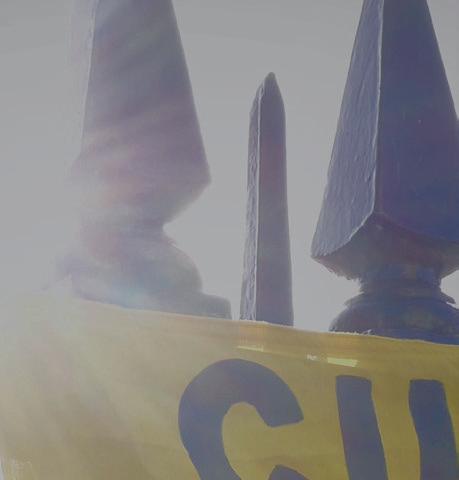
In response to the decision to pause the scheme, a representative
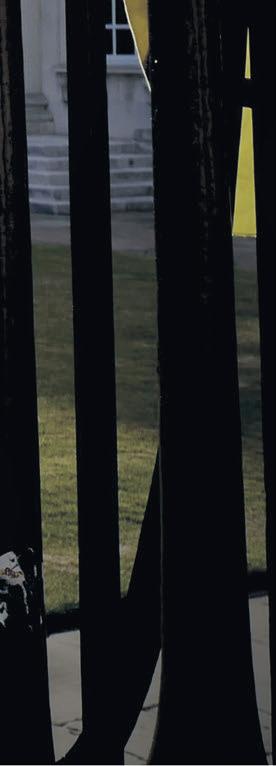
Local elections


Meet the students standing for Council

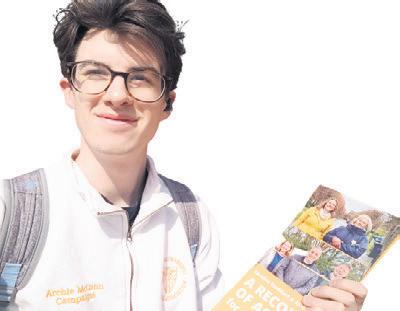

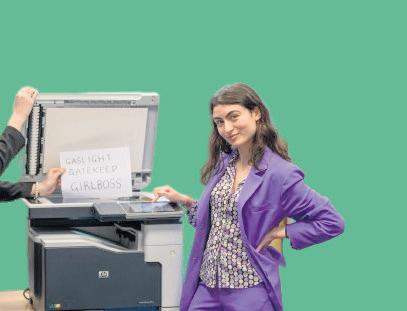
News Page 5 ▶
for the department of chemical engineering and biotechnology told Varsity: “We are committed to providing a syllabus to our students that is fully in line with our overall department commitment to generate impact in sustainability and healthcare. As a result, we are revising both syllabus and corporate engagement strategy”.
Under the arrangement, the chemical engineering department also gave oil companies on the consortium priority access to its undergraduates, claiming on its website that “this leads to more opportunities for recruitment of Cambridge chemical engineering students”.
Set up in 1999, the teaching consortium had been strengthening links between the department and industry for 23 years until it was put under review this academic year. Healthcare company GlaxoSmithKline (GSK) as well as Swedish tech manufacturer ABB have also been members.
e chemical engineering depart-

years of drag at

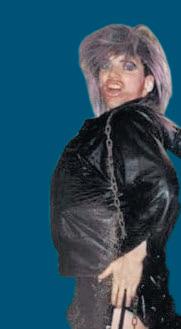
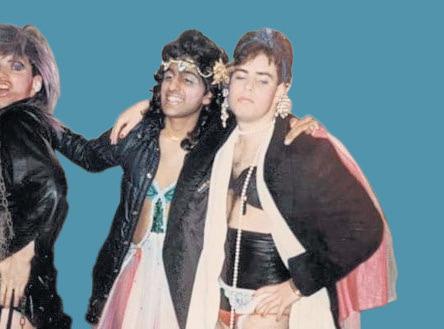
ment has a long history of collaboration with the fossil fuel industry. Having helped found the department in 1945, Shell continue to fund a professorship in the company’s name. ExxonMobil holds a lecture every year for chemical engineering students on safety and business.
News of the department’s decision comes in anticipation of the University’s report into the future of its fossil fuel funding. e report is set to be published in Easter term. Following its publication, academics will vote

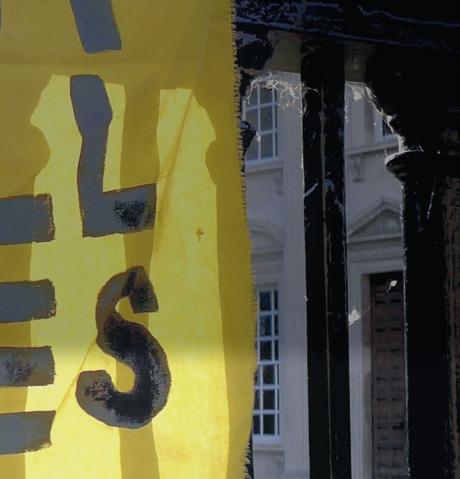
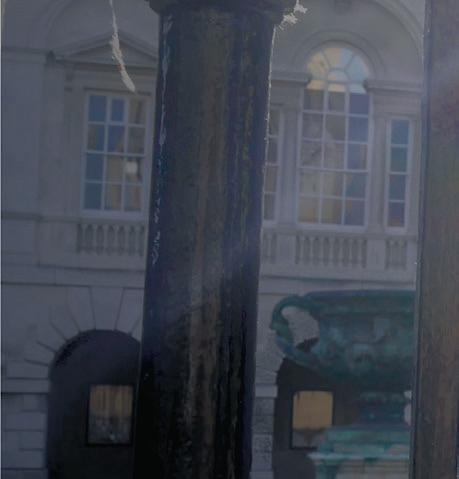

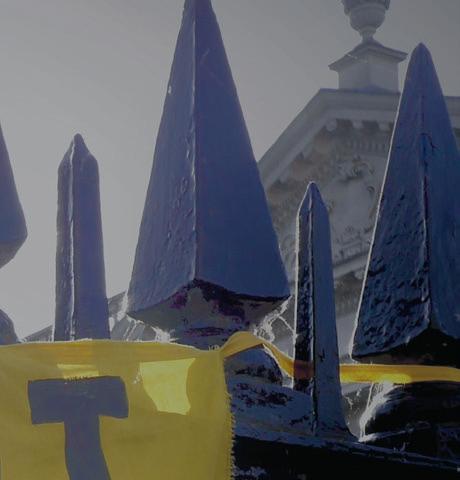
e results are in!
How are Cambridge students using AI?
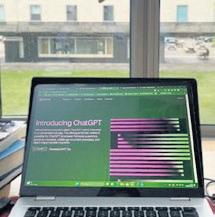
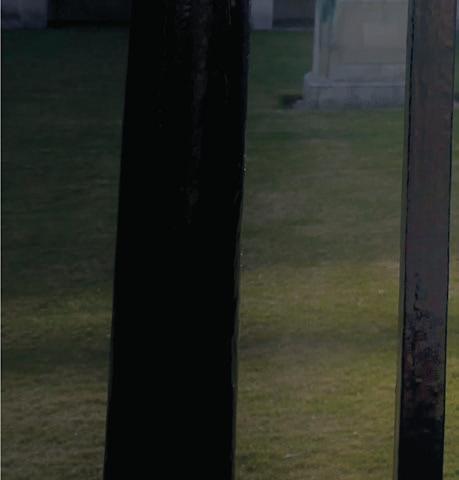

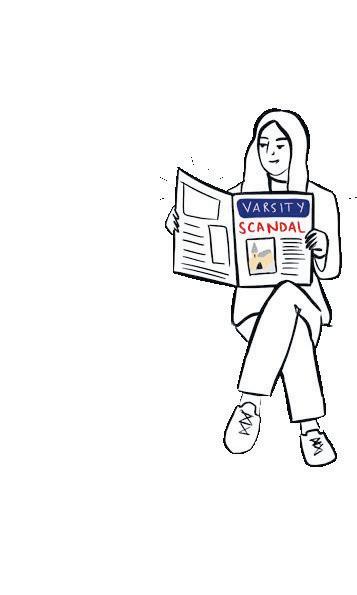
News Page 3 ▶
on whether to end all funding relationships with fossil fuel companies.
e old consortium will likely be replaced with a new “teaching and research consortium”. e terms and conditions of this reformed scheme are under discussion. e FOI states: “T&C’s for this will be available once internal discussions have been concluded”.
BP and ExxonMobil have been approached for comment. Shell declined to comment.
e Queen comes to King’s Season 6 of e Crown spotted iming in college News Page 6▶
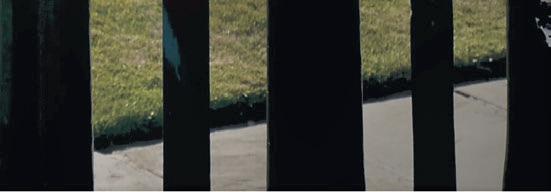



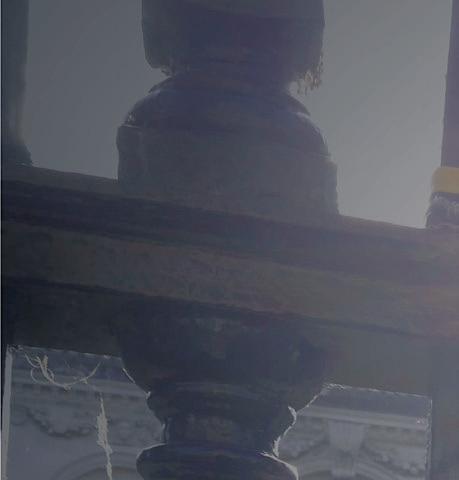
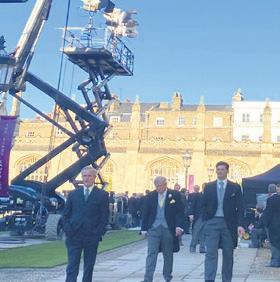
Independent Student Newspaper since 1947
April
varsity.co.uk FREE Take a copy
e
No.912 Friday 21st
2023
Internship chic! Page 28▶ Page 23▶
Pembroke We’re back! Comment Page
36
12▶
term”- Sylvia Plath (1956)
What has student journalism taught us?
‘Varsity is run by a network of elite journalists’ is the (rather problematic) mythology that has surrounded this paper since we joined as Freshers in 2020.
Being faceless is a part of our job as we are fated to only be known by the familiar bylines above breaking news stories. But a side e ect of this is that the reality of the inner workings of the media industry is obscured, leading some to imaginative conclusions about the gure of the ‘journalist’ and, in our case, those behind Cambridge’s student newspaper.
tions, we hope this realisation has hit you, that this mythologised group of powerful individuals is actually a straggle of hard-working students across the university from a plethora of backgrounds, learning to be journalists.

editors Meg Byrom & Famke VeenstraAshmore editor@varsity.co.uk
deputy editors Esme Kenney & Hugh Jones deputyeditor@varsity.co.uk
vulture editors Hannah Gillott & Daniel Hilton magazine@varsity.co.uk
news Michael Hennessey & Erik Olsson (Senior), Bella Shorrock, Eric Williams, (Deputy), Bethan Moss (Investigations lead) news@varsity.co.uk
features Taneesha Datta & Harry Hult features@varsity.co.uk
comment Jack Rennie & Maia Livne opinion@varsity.co.uk
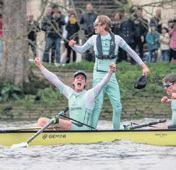
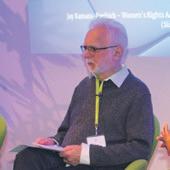
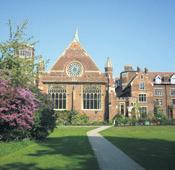

interviews Aoife O’Driscoll & Chris Patel interviews@varsity.co.uk
science Suchir Salhan, Caredig ap Tomos & Tom Malloch science@varsity. co.uk


sport Joshua Korber-Ho man & Abigail Hastie sport@varsity.co.uk
lifestyle Esther Arthurson & Alice Mainwood lifestyle@varsity.co.uk
arts Emily Lawson-Todd & Leo Kang arts@varsity.co.uk
fashion Isabel Dempsey & Eden Keilyurstain fashion@varsity.co.uk
film & tv Kezia Kurtz & Daisy O’Connor lmandtv@varsity.co.uk
music Georgie Atkinson & Alex Brian music@varsity.co.uk
theatre Alex Parnham-Cope & eo Chen theatre@varsity.co.uk
Head of media Minsung Son
chief sub-editor Jane Usher subeditor@varsity.co.uk


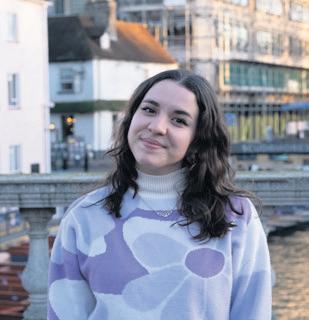
associate editors Lotte Brundle, Emaan Ullah & Bethan Moss associate@ varsity.co.uk

business manager Mark Curtis business@varsity.co.uk
varsoc president Fergal Je reys president@varsity.co.uk
varsity board Dr Michael Franklin (Chairman), Dr Tim Harris, Michael Derringer, Mark Curtis (Company Secretary), Alan Bookbinder, Elizabeth Howcroft, Fergal Je reys, Lotte Brundle & Nick Bartlett (Directors)
“Went for a romantic punt with my boyfriend. Tourists mocked his skilled & it ended in a row”
“My dad’s ribs broke!! A punting boat rode into him from the side and crushed his ribs lol”
“Pole got stuck in the mud and our boat hit another knocking a passanger into the Cam”
Fascists, snowflakes, pro-establishment, anti-establishment, tankies, traitors, leftists, Tories, pretentious and stupid; just a few compliments regularly paid to our team at this paper. But the reality is far from this paradoxical misunderstanding of the imagined Varsity ‘deep state’.
ere’s something particularly comical about reading Camfesses claiming you’re part of the establishment from under your till at your minimum wage job. If we are part of said establishment, I’d urge them to get in contact and sweep me away from my zero hour job I’ve juggled with trying to do a degree and launching a career.
If you’ve ever seen the Varsity team handing out copies of our print edi-
Instead of being omnipotent, the Varsity team is sometimes limited in what we’re able to achieve. Journalists’ ability to truly speak truth to power is too often impeded by limits on free speech. Stories holding powerful people to account can disappear if they have the ability to ght back with an expensive lawyer. Stories will be di cult to publish when threats from major institutions around the university scare o journalists and their sources.
Next time a Varsity journalist asks you on Sidgwick if you’d like a copy of the paper they’ve spent 40 hours working on, maybe don’t sco at the phrase ‘independent journalism’. Instead, the Cambridge community should realise this is not only a public good, but a privilege.
Want to know more about this straggle of journalists? Join us! We joined Varsity in our rst couple of years, and it’s the best decision we’ve made during our degrees.
It’s punting season. Tell us your nightmare stories...
“We lost the paddle and had to pay over £100 in compensation”
“Got cat-called while punting. Normally I would run away, but sadly my punting abilities weren’t up to scratch. I had to just stand still as they went past”
“Went drunk punting with a section editor who volunteered to steer. Surprisingly, alcohol doesn’t improve your punting abilities and we bounced from one side of the river bank to the other down the cam before the editor fell in for the rst time after crashing into John’s. Later that evening, he turned up at the pub still quite wet. Apparently he fell in once more after trying to get o the punt.”
2 Friday 21st April 2023
© VARSITY PUBLICATIONS LTD, 2022. All rights reserved. No part of this publication may be reproduced, stored in a retrieval system or transmitted in any form or by any means electronic, mechanical photocopying, recording or otherwise without prior permission of the publisher. Varsity, 16 Mill Lane, Cambridge CB2 1RX. Telephone 01223 337575. Varsity is published by Varsity Publications Ltd. Varsity Publications also publishes e Mays Printed at Ili e Print Cambridge – Winship Road, Milton, Cambridge CB24 6PP on 42.5gsm newsprint. Registered as a newspaper at the Post O ce. ISSN 1758-4442 Inside Muslim students have been told to prove their religion to access faith-based provisions 6 NEWS Homerton students asked to prove religion Clarissa Salmon and Sam Hudson clash over the recent SU motion COMMENT Head to Head: Should Cambridge go vegan? e story of the man who went from rst-gen immigrant at Cambridge, to Black Panther, to Channel 4 exec INTERVIEWS e extraordinary life of Farrukh Dhondy Behind the scenes of every corporate o ce - including ours FASHION Intern-chic photoshoot 22 Meg Byrom & Famke VeenstraAshmore – Editors, Lent 2023 Mother and son re ect on the college’s tradition of drag performance THEATRE 36 years of drag with Mx Pembroke 28 SPORT Never underestimate a rower’s cox 31 An interview with the Boat Race’s winning cox Jasper Parish 13 17 Interested in writing for Varsity? Join our writers’ group on Facebook! “Cambridge is full of scientists, printing presses, theatre groups and all I need is the guts to write about them....perhaps I’ll try out for Varsity next
Editorial
Editorial Week 1
“I go to Queens’ so summer = getting abuse from tourists in punts season. I have grown to enjoy being a zoo animal whilst trying to revise at this point.”
Exclusive: Almost half of Cambridge students have used ChatGPT to complete university work
Michael Hennessey Senior News Editor
Almost half of Cambridge students have used ChatGPT to help to complete their university studies, an exclusive Varsity survey has revealed.
In a self-selecting online survey completed by over 400 students, 47.3% of students admitted that they had recruited the assistance of ChatGPT, or other similar AI chatbots, since they irst emerged at the end of last year. Over a ifth of students that have utilised the new tool said they use it “often” or “always” when producing their work.
he use of ChatGPT was more common among STEM students, where 53% used chatbots compared to a 43% rate among Cambridge’s humanities students.
ChatGPT is an AI program capable of producing responses which can be indistinguishable from those of a human — including academic pieces of work.
Almost a ifth of respondents have used ChatGPT producing assessed work for their degree, such as coursework. A greater proportion of participants (38.5%) in the survey said they either had already, or plan to, use AI chatbots to help with their revision in the lead up to exams this Easter Term.
Over three quarters of students that have used ChatGPT to complete University work said that they found it useful. One STEM student described it as “the equivalent to dropping one of your cleverer mates a message and asking them for help”.
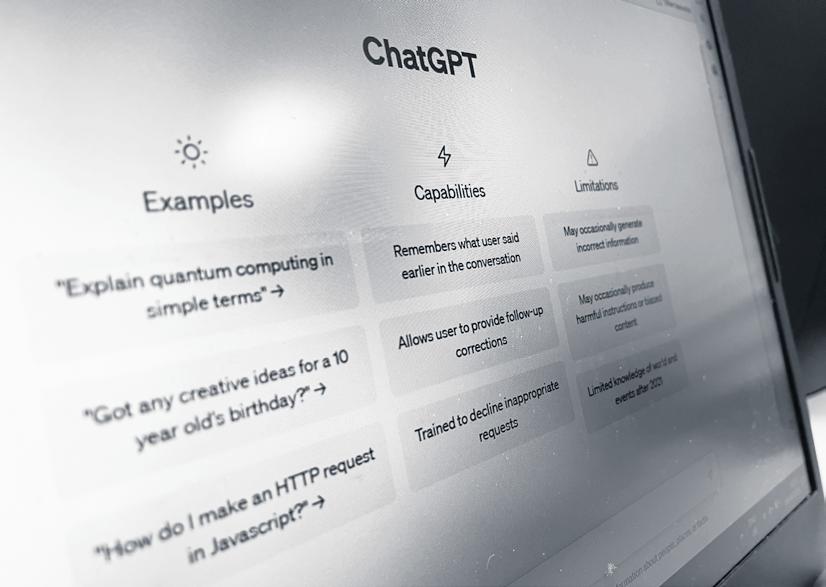
Other students disagreed that the
new technology is useful, with students telling Varsity “it analyses poems like a ive year old” and that it has “no understanding of texts beyond the most supericial possible readings”. Another student agreed, saying that “it really showed me how valuable our degrees actually are … ChatGPT has very little critical thinking”.
A far smaller proportion of students who will take online exams this year, 7.3%, admitted that they plan to use it during their exams. Current University rules state that, although the University “recognises that artiicially intelligent chatbots … are new tools being used across the world”, the University “has strict guidelines on student conduct and academic integrity. hese stress that students must be the authors of their own work”.
he University also says: “Content produced by AI platforms, such as ChatGPT, does not represent the student’s own original work so would be considered a form of academic misconduct to be dealt with under the University’s disciplinary procedures. he University has issued guidance to departments to help address concerns about risks to the integrity of assessments”.
Earlier this year, before the University’s policy was clariied, Varsity exclusively revealed that Cambridge’s provice-chancellor for education had said that a ChatGPT ban was not “sensible” because “we have to recognise that this is a new tool that is available”. Varsity’s new survey has shown that over two thirds of students agree with the provice-chancellor’s earlier comments and
have said that they do not think the University should ban the chatbot.
One student said they think “it should be banned from writing essays but not from helping to understand material”. Another student agreed, saying that “banning it is pointless, and the university should focus more on teaching well rather than relying on students not to use the tools at hand”. Another student said the chatbot does not need banning because students who use it “will simply be lowering the quality of their work in a clearly identiiable manner”.
However, many other students strongly believed that the University should clamp down further on the chatbot, with one student claiming that there is a “big risk that it will perpetuate fake science”. Another student went further, telling Varsity in the survey: “I hate everything about ChatGPT. I hate its implications for creativity. I think it is a soulless, dangerous piece of machinery that will damage the integrity of academia. I detest it and think it should be banned
Other students claimed that the chat bot “has been immensely helpful in my revision explaining the answers in a way better way than professors can”. Another undergraduate said they would not need to use ChatGPT if the dons in their department “just did their job”.
Students also revealed to Varsity that ChatGPT is already being integrated into course content at the University, with one student saying that they had used a “ChatGPT-written sonnet as part of a supervision in English to analyse the idea of ‘authenticity’”.
Representatives of the University have
told Varsity that they are “engaged with internal and external experts to understand the potential beneits and risks associated with the use of AI in the delivery of education, and in student approaches to learning”.
One student also said they had been told by a supervisor to get sample exam answers from ChatGPT because “that’s basically the best that you could be expected to write in the exam”. Another student said that the senior tutor of their college “seems pretty ine with it”.
Despite the University’s promise to enforce restrictions on AI as part of their rules against plagiarism, only one student admitted to Varsity that they had
ever been caught by University staf for using ChatGPT.
Many other students said that they had never used AI chatbots because they were “too scared” and “ind it mildly terrifying that so many other people do”.
Several students said they have used ChatGPT to receive mental health advice, with one student anonymously disclosing that they use it “when I’m having a breakdown over essays” but say that they have “never used it for work purposes”. Another student claimed they had “used it to create a crisis plan for my depressed friend. It was 10x more helpful than the college therapist”.
Do not throw Holi paint on Saint Edmund, Hindu students told
Erik Olsson Senior News Editor
Hindu students at St Edmund’s College were told of by the College’s combination room (CR) president, on the request of a senior college oicer, for getting paint on the statue of the college saint during the Holi festival.
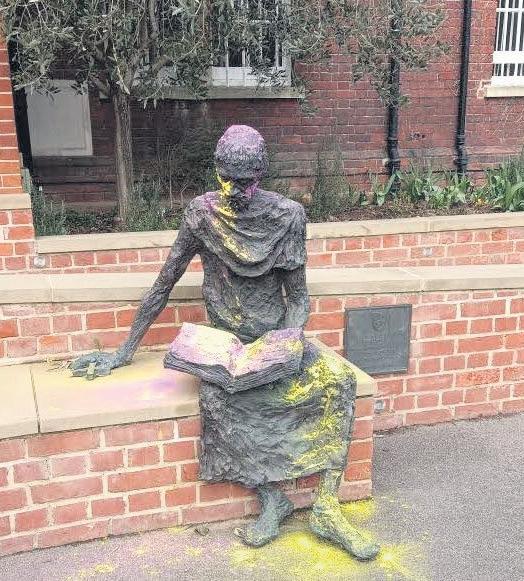
In a statement addressed to the student body on Facebook, the CR president urged those who had thrown powdered paint at the statue of Saint Edmund of Abingdon, a prominent 13th century Catholic and the College’s patron saint, to be “mindful of the objects and spaces belonging to diferent faiths”.
He wrote: “I was deeply saddened to learn that the statue of Saint Edmund of Abingdon was plastered with colouring during the recent Holi festival … I send my wholehearted apologies to our Catholic friends and colleagues. I’m sure we will all be mindful to avoid this hapenning again in the future”.
he CR president apologised to Catholic members of the college on the request of a senior college oicer who had raised “serious concerns”. he announcement was also approved by the college chaplain.
St. Edmund’s College told Varsity: “From time to time the college asks the CR to post information on their
closed Facebook group as this is an eficient way of communicating to students”.
While the CR president recognised that “there was no malicious motive”, he encouraged students to relect on the community’s shared values of respect and tolerance. He said: “Let us be a force for unity and continue cultivating our understanding of each other’s beliefs”.
Celebrating the triumph of light over darkness, Holi is a Hindu festival during which observers throw powdered colouring at each other. One student on the College’s Facebook confession page pointed out that this paint is in fact “a sign of respect, love and symbol of good faith”.
hey said: “It was extremely wellintentioned and does not represent a lack of respect. St Edmund is a symbol of the College for all students, not just a catholic symbol”.
he CR president also attracted criticism for speaking on the behalf of all students when he had reportedly not consulted either Catholic or Hindu students.
One St Edmund’s student told Varsity: “Reactions to the statement show that Catholic students didn’t ind the gesture ofensive, and a predisposed statement put out without consulting students or colleagues is both unhelpful and divisive … he CR President’s job is to represent
the concerns of the student body to the Oicers of the College, but this president has chosen to do the reverse”.
In a statement, the CR told Varsity: “A senior college oicer requested a message from the CR President addressing the situation. he college chaplain approved a statement, which was posted to our college CR Facebook page.
“Holi is the festival of colour celebrating rebirth, love, and springtime. Students gathered to share this colour with the statue of St. Edmund outside the chapel, intending only well wishes and to champion diversity. hey may not have considered the signiicance that the statue has to the Catholic community and how this could have come across as disrespectful. he students and organizers involved cleaned the statue and ofered sincere apologies to the chaplain, and the issue was thereby resolved. he conversation was accepting, kind, and apologetic for all parties.
“We remain proud that St. Edmund’s is one of the most religiously and culturally diverse colleges at Cambridge. We are continuously working towards fostering a harmonious community for our students”.
Friday 21st April 2023 3
▲ Hindu students were told of by the College’s CR president after getting paint on the statue of the college saint during Holi (VARSITY)
News
▲ Almost a ifth of respondents used ChatGPT to produce assessed work for their degree (VARSITY)
Seven Cambridge students stand
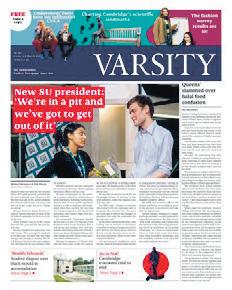

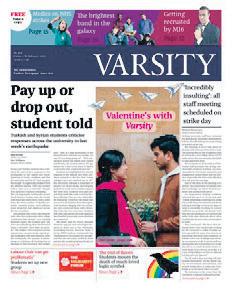 Michael Hennessey Senior News Editor
Michael Hennessey Senior News Editor
Campaigning has got under way for the councillor elections for Cambridge City Council that will take place as part of the local elections on ursday 4th May.
14 of the 42 council seats will be contested in the election, with three of the elections taking place in wards with a large student presence - in the Castle, Market and Newnham wards. Labour currently have control of the Council, holding 29 seats compared to 9 for the Liberal Democrats, three for the Green Party and one independent councillor. Students can no longer register to vote, as the deadline passed this Monday (17/04). For the rst time, voters will also need identi cation in order to exercise their voting rights. Passports and driving licences are the two most commonly accepted forms of ID. e number of accepted forms of ID is especially restricted for young people and students - as bus passes and old age Oyster cards are among the additional forms of identi cation that will be accepted for older people.
Voters can still apply for free for a Voter Authority Certi cate if they do not have a passport or driving licence - the
deadline to apply in time for the local elections is next Tuesday (25/04).
Seven current Cambridge students (pro led, right) are standing in the local election. Chang Liu, Archie McCann and Anthony Martinelli are standing for the Liberal Democrats. Liu is standing in Newnham ward - home to many students who live west of King’s Parade, including King’s and Selwyn colleges. Martinelli is standing in Market ward in central Cambridge, which also has a high student population including Corpus Christi and Downing colleges. McCann will stand in Cherry Hinton ward.
ree students are also standing for the Green Party. Dan Kittmer and Esmé Hennessy will both contest Castle wardwhich is home to students from Churchill, Fitzwilliam and Murray Edwards colleges. Joshua Morris-Blake will represent the Greens in Peters eld ward.

e Cambridge Union’s president, James Appiah, is also standing for the Conservative Party in the Market ward.
Last year, Sam Carling became the only Cambridge student to be elected onto the council in recent years, when he ran as a member of the Labour Party in West Chesterton ward.

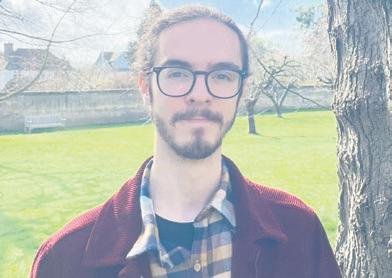
James Appiah did not respond to Varsity's request for comment.
Green councillors present the only credible path to a sustainable Cambridge, prepared to challenge the endless pro-growth status quo of the Labour council in favour of prioritising people and our environment. Greens are not governed by the party whip, and so are not forced to vote along party lines on issues which may be detrimental to our city. I want to join our Green councillors in nding concrete solutions to the pollution in the vulnerable river Cam, divesting Council funds, and prioritising our environment and wellbeing; a green day that isn’t just for the recycling of old ideas.
Like so many young people, I feel let down. While the Tories wreck our country, the Labour Party act as a rubber stamp to everything they do - abstaining on Trans Rights, Voter-ID and the SpyCops Bill. Cambridge Labour voted down solutions to tackle mould in council homes; let bike theft get out of control . e average age of a local councillor is 60, so I’m not surprised that young people are unrepresented. I will ght for our priorities like tackling the housing, climate and cost of living crisis. So if you’re dismayed at the state of politics, use this election to send a message.
e City Council is currently pursuing an agenda of endless economic growth, which only the Greens are standing up against. Listening to residents on doorsteps, there’s huge concern that many in Cambridge are being left behind. On the City Council, I want to reconnect people with their representatives, especially marginalised communities and students. Greens are working hard for Cambridge, from better bike lanes and street lighting to bringing a “conversion therapy” ban to the council. I want to help sure Greens to continue delivering for Cambridge and strengthen the voice of young people on the council.
4 Friday 21st April 2023
News
Esmé Hennessy Green Party Castle Ward
Dan Kittmer Green Party Castle Ward
Chang Liu Liberal Democrats Newnham Ward
in local elections

Jesus medics dinner goes poorly
News correspondent

Jesus College has punished medic students for getting too drunk at their subject dinner, in a move that has sparked charges of “hypocrisy” after unlimited wine re lls were allegedly provided to attendees.


At the Jesus medics’ dinner, an annual event held at the end of Lent term, widespread binge drinking left students unwell, with some vomiting in the dining hall. Academics also reportedly took part in the heavy drinking, with two medic students having to walk a supervisor home.

I’m standing for election in Market Ward, which includes many of the city centre colleges, because I believe Cambridge can be a global power for good and local government is critical to making this happen. I’m currently nishing my PhD at Caius having completed medical school here a few years ago and I represented Market as a councillor from 201821. I helped push the Council to declare a climate emergency and campaigned on rough sleeping, building a ordable housing and air pollution. I will work to ensure student priorities are not overlooked by the City Council and hope I can win your support!
e Green Party have been challenging the business-as-usual approach of the Labour-dominated city council, working hard on behalf of students and residents through the cost of living crisis and pushing the council to go further in tackling the climate and nature crises.
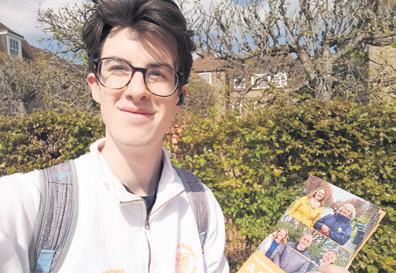

If elected in Peters eld, I want to prioritise creating a fair and green transport system, building more zero-carbon, affordable housing in the city by expanding the council’s retro tting scheme.
In Peters eld, the Green Party are best placed to hold the council to account, stand up for our most vulnerable residents and build a fairer, greener city.
Cambridge Liberal Democrats are pushing for a fairer, greener, and more liberal city. We all proudly stand up for trans rights, for refugees, for unpaid carers, for renters, for students, for victims of racism, and for anybody who hasn’t been given a fair deal. I’m running for election to make sure that the people who are so often unrepresented get a voice, and to push the City Council to do what’s right for Cambridge on the basics: to build more homes and speed up repairs to council homes, to improve public transport, keep public toilets open and help rough sleepers.
e events of the dinner resulted in widespread rumours that the College Dean requested o ending medics be reviewed for their tness to practice – a claim that the College has refuted.








Members of the Jesus community condemned the College’s behaviour, calling it “hypocritical” to blame students, as drinks were regularly re lled and sta also took part in the drinking.
Speaking to Varsity, a spokesperson of Jesus College described the event as 'a private medics’ dinner offering limited complimentary
drinks”, where “a small number of guests behaved poorly… no one required medical attention”.

e spokesperson noted that individuals had “met with the appropriate Director of Studies or the Dean of College” and that “ nal year medical students ran a teaching session”. However, they also stated that the session was “mandatory for all preclinical students”, and that “there has been no College communication to students about tness to practice”.

Friday 21st April 2023 5 News
Anthony Martinelli Liberal Democrats Market Ward
Archie McCann Liberal Democrats Cherry Hinton Ward
Joshua Morris-Blake Green Party Peters eld Ward
Ella McCartney
▲ Widespread binge drinking left students unwell, with some vomiting in the dining hall (TIMUR RAKHIMOV)
‘Grossly unfair’: Student forced to drop out following technical di culties with exams
Beth Doherty News correspondent
A student who got rsts in all other papers was refused permission to proceed with their studies following technical di culties in the submission of an online exam, Varsity has learned.
e student, who was at Jesus College studying MML until this January, shared their experience with Varsity
During May Week 2022, after completing exams, they were told that the les for their last two exams could not be accessed. By the time they could access the les, it was too late.
e student sat all eight of their exams. During the exam period, they were experiencing issues with their laptop battery which meant it always had to be plugged in and, when exams were over, they decided to get it xed. However, due to an apparent glitch, the les of their last two exams were not accessible by the Faculty. e student told Varsity that they uploaded them correctly and received a TurnItIn receipt. e Faculty asked for the exam scripts, but by this point the student had submitted the laptop for repair and could not access the les.
e student stated that they told the
Faculty that their laptop was being xed, and gave the name of the person xing it. Following this, the student rst applied to the O ce of Student Conduct, Complaints and Appeals (OSCCA) for an exam review before results had been released.
Once they had their laptop back, they also sent on the scripts of the two exams.
e metadata was veri ed to have been from the relevant exam dates.
e student scored a rst in all other papers, and as such would have still passed even with a 0 in both papers.
OSCCA drew the student’s attention to Section A.4 within the Guide to Examinations which stated that failure to upload exam scripts would result in a 0 mark. Rather than a 0 mark being given in line with this, however, which would have enabled the student to progress, an exam review was refused and they did not have standing to progress.
As such, they applied to the Exams and Mitigation Committee (EAMC) for permission to progress. e student, who is of Turkish descent, told Varsity that the business xing their laptop was also run by people of Turkish descent. e EAMC then suggested to the student that the person who owned the business, who had a similar name to the student’s father, was in fact the student’s father. It stated in correspondence seen by Varsity,
“whilst it is not con rmed that they are the same person, it is coincidental.” is was despite the knowledge that the student was estranged, and had been living in college accommodation full-time during the vacation period.
Correspondence to the student repeatedly questioned why the student had not gotten their laptop xed at an Apple store, despite the student’s concerns about cost as an independent student. e EAMC then refused permission to progress, which the student appealed.
During the appeal process, the student was permitted to continue with their studies and studied in Michaelmas 2022. However, they received a decision in January 2023 stating that OSCCA had denied the appeal as the reasons were not “grave or medical” and as such the
student could not continue with their studies at Cambridge. e appeal was “persuaded” that the person xing the student’s laptop was not their father. However, the exam allowance of permission to progress was still refused with no explanation of why a 0 mark could not instead be given. e student was then asked to withdraw from studies, and given a 10 week period to move out of college accommodation.
In the run up to exams, the student had also experienced bereavement as well as signi cant struggles with mental health, which their college was aware of. ey had previously explored possible intermission with the College. However, as an estranged student they would not have been able to return home.
In an email seen by Varsity, the student also received a promise from a senior member of college administration that they would not be kicked out if they failed their exams. As a result, the student had decided to sit their exams.
e student is now looking for a job and exploring their future paths. However, they told Varsity that they were concerned that this could happen to another student, and that they were extremely disappointed with how Jesus College, their Faculty, OSCCA and the EAMC had all handled the situation. ey stated

that there were clear failings in the approach to welfare and exam mitigations, and that it felt grossly unfair to be kicked out due to what they saw as essentially a technical di culty.
Criticism has previously been levied at the University’s processes for focusing purely on the exam period itself, rather than what a student might have experienced earlier in the year, and for failing to understand the realities of physical and mental health.
When contacted for comment, a spokesperson for Jesus College told Varsity that while they “cannot comment on individual cases”, the “College works swiftly and closely with students who need to make applications” to the EAMC, o ering “extensive pastoral and practical support” through the application and appeals process.

A Jesus College spokesperson said: “We cannot comment on individual cases, but the College works swiftly and closely with students who need to make applications to the Extenuating Circumstances and Assessment Mitigation Committee (EAMC). We o er extensive pastoral and practical support to students throughout an application and, if necessary, in any appeal process.”
Homerton students asked to prove religion
Nabiha Ahmed News correspondent
A test of faith has been asked of Homerton students by their College, who request written proof of religion when students make faith-based requests for accommodation.
When requesting a fridge in their room on religious grounds, Homerton students are asked to provide a letter of support from a member of a religious institution. Similar rules apply for those asking the college to provide them with a personal fridge, and for students purchasing their own appliance.
Varsity understands that Homerton is the only Cambridge college to request proof of religion for faith-based needs.
One a ected student said: “It was very strange. I’ve never been asked to prove my faith before.”
e student did not challenge the college’s request, and told Varsity: “I didn’t show any resistance because I was new. So, I wasn’t accustomed to how the University operates.”
Student B said the request was a “weird thing to ask” but acknowledged that they “get why college do”.
Another student provided the College with adequate proof but the College did not provide them with a fridge for their
room. “ ey still didn’t get me a fridge as they promised, giving other excuses and so I just left it,” claims the student. “ is was a major issue before since the college did not provide any halal options,” said the student, who requested the fridge in their rst year. Since then, the student says “there has been progress” as the college more regularly provides Halal food for normal meals and for formals upon request.
Another Muslim student, however, described the limited kitchen facilities at Homerton as “a joke” particularly for students of faith. e student, who bought their own fridge for faith reasons, also told Varsity: “for a college that doesn’t have ovens nor freezers, asking for one shouldn’t have to be such a hassle. It’s a joke that we need to provide it.”
Students requesting fridges on medical and mental health grounds are also asked for supporting documents. “To be fair to college, they even ask those who need it for medication for proof. So it isn’t a discriminatory process,” one student told Varsity
Other students, however, do not share the same sentiment. “ is issue should have been raised earlier, especially by the a ected people,” one said. “But it’s better late than never”.
Homerton College did not reply to a request for comment.
News 6 Friday 21st April 2023
▲ A spokesperson for Jesus College said they cannot comment on individual cases (ROSIE BRADBURY)
Cambridge drops publishing fees for low-income countries
Ritika Singhal News correspondent
Cambridge University Press (CUP) is to drop open-access publishing fees for academics in low and middle income countries.
Academics across 5000 institutions from 107 countries will be able to publish without a paywall in 400 journals covered under the Cambridge Open Equity Initiative. e scheme also extends to independent scholars in these countries.
e initiative, set to launch in July, is meant “to support authors in low- and middle-income countries who wish to publish their research open access but do not have access to funding.”
CUP is seeking support for the initiative from institutional partners, such as major university libraries, to make it sustainable.
Currently, without fee waivers, journals charge around $2000 or $3000 in article processing charges. Several institutions - primarily in high-income countries - have ‘transformative agreements’ which allow academics at these institutions to avoid this charge, disadvantaging scholars in low and middle income countries.

Academics in low and middle income countries who are denied the larger audience of open access publishing therefore
face their work being cited less often, which can be a factor in hiring and promotion decisions.
Earlier this year, CUP announced that more than half of its research papers are published open access and that the vast majority will be published open access by 2025.
Mandy Hill, the managing director of academic publishing at CUP, said it was necessary to “publish[ing] the best research, wherever it comes from.”
Hill recognised the importance of diversity among academic authors but she signalled that the initiative was about much more than that. “ e problem is not simply about diversity among authors – critical as that is to the intellectual lifeblood of academia. We risk missing out on vital contributions to everything from mental health to clean energy from academics in low- and middle-income countries. Researchers in such countries played critical roles in understanding development economics and democratisation, the emergence of stem cell technology and sequencing the Omicron variant of Covid-19”.
Hills mentions that the initiative won’t be sustainable unless it receives su cient external support and nds it risky. However, she said that CUP “have to try – and the global scholarly community will bene t as we do so.”
Con don pays back government cash
Suchir Salhan News correspondent
An ex-Cambridge academic and convicted fraudster has paid £1 million to the taxpayer after using a green energy scheme to swindle the Government and fund a lavish lifestyle.
Dr Ehsan Abdi-Jalebi lost his fellowship at Churchill College after syphoning o funding grants worth a total of £2.5 million. Abdi-Jalebi used his PhD students’ bank accounts and other falsi ed documents to receive payments. He then transferred this money to his personal accounts to lease a Maserati sports car and to rent property in the UK and Iran.
e National Crime Agency reported earlier this week that the fraudster has now returned embezzled funds after an extended investigation into his nances.
The legal saga was first sparked when Abdi-Jalebi attempted to travel from Heathrow to Tehran in 2015 with a orntons Continental chocolate box lled with £100,000 in cash, resulting in his arrest. e stolen grant funding has now been repaid to the taxpayer.
As Varsity previously reported, the former Engineering Fellow was the founder of Wind Technologies, a company that received funding from the Department for Energy and Climate Change, the EU and Innovate UK. Abdi-Jalebi lied on
Net ix's e Crown comes to Cambridge
Bella Shorrock Deputy News Editor
Royalty came to Cambridge this week
(17/04) as lming for e Crown season six took over King’s College. e college was closed to tourists as the nal instalment of the hit royal drama lmed the wedding of Trinity College alumnus Prince Charles and Camilla in the King’s dining hall.
Varsity understands that several King’s students were extras in the scene. Some students shared photos on social media of the production and actors involved, including Dominic West in his role as Charles, Prince of Wales. Not all students were positive about the lming - one King’s student told Varsity that, while the production was exciting, they assumed the College had “been paid a ton of money”; money that could be used to mitigate rent costs amid the ongoing rent strike. e new episodes of e Crown are expected to be released at the end of this year.
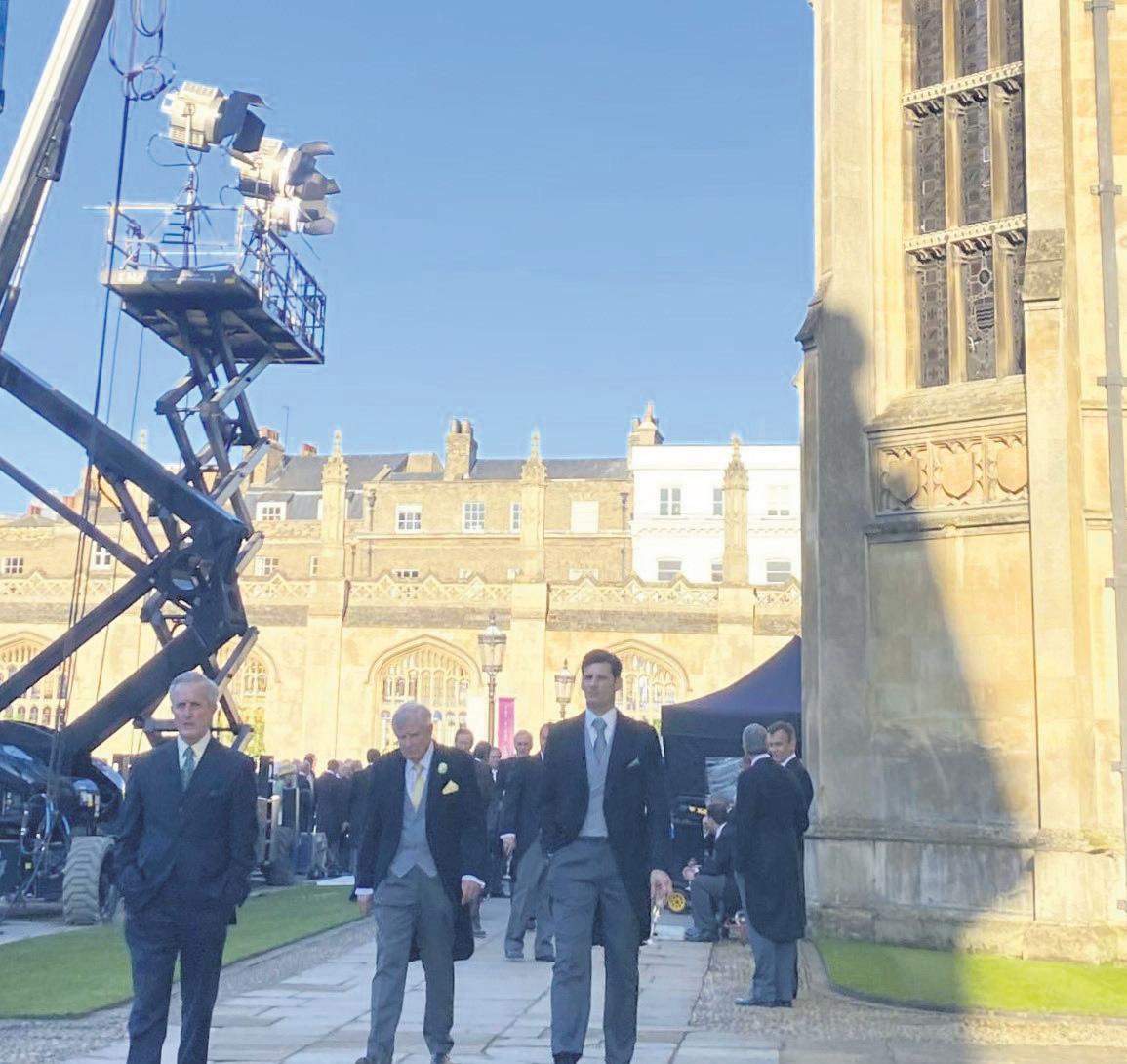
the grant applications and used a liate companies to duplicate applications.
Abdi-Jalebi claimed the money was being spent on a secret cutting-edge wind turbine in Iran. He failed to produce any evidence for this project.
In his 2018 sentencing, Judge Martin Beddoe dismissed Abdi-Jalebi’s claims that the money was used to build the machine in Iran as “simple ction”. He had withdrawn more than £820,000 in cash over four years and took more than £1.5 million to Dubai and Iran for personal use.
Abdi-Jalebi admitted 13 counts of forgery. He was ordered to repay the funds or face seven years in prison.
e Crown Prosecution Service and the National Crime Agency’s pursuit of Abdi-Jalebi’s foreign assets has culminated in the recovery of £988,411 to the UK exchequer and a further £60,000 from a house sale in Trumpington this week.
Cynthia Caiquo from the CPS said: “Jalebi stole government money, which was intended to provide green energy and help improve the environment. rough our work with international jurisdictions we were able to secure the repatriation of £1m, which has now been returned to fund future projects.”
News Friday 21st April 2023 7
Crikey - Crocs!
Fifty saltwater crocs have been recorded as being held captive in the Cambridge area. Research by campaign group Born Free has shown that households in Cambridge also hold ve Nile crocodiles and three savannah cats. ese owners are licensed by the government to hold dangerous animals. e full survey found that 3,951 dangerous wild animals are held nationally.
Graduate challenges Rees-Mogg
Rory Cockshaw, recent Catz graduate and campaigner for vegan charity Viva!, garnered attention online for debating Conservative MP Jacob Rees-Mogg on GB News. e debate went ahead after Varsity exclusively revealed Darwin May Ball‘s exclusively plant-based menu. Rory challenged the Tory MP on land use, food equity and the sustainability of our current food system.
Lucy Cav new access programme
Lucy Cavendish College has extended its academic enrichment programme, an initiative aimed at helping students from comprehensive schools apply to Oxbridge. e college has now rolled out the programme in 180 schools. It consists of sessions in how to make a competitive application. Lucy Cav is the rst college in Cambridge to admit a more than 90% comprehensive-educated cohort.
Police show up to just half of burglaries
A recent report has revealed that only half of burglaries in Cambridgeshire are attended to by the police. is has emerged after national debate over the 45,000 incidents that went unattended across the country last year. e Liberal Democrats said more neighbourhhood policing is needed, arguing the current situation is an indicment on the Conservative party’s record on crime.
University watch
Eric Williams brings you the top student stories from the other place(s)

She eld looks for life on Jupiter’s moons
She eld University researchers are working with the European Space Agency on a mission to nd extraterrestrial life on Jupiter’s moons.
e Jupiter Icy Moons Explorer, aka ‘Juice’, launched last week accompanied by a “radio and plasma wave instrument” developed by the She eld researchers.
WE ALSO STOCK A WIDE RANGE OF CAMBRIDGE RELATED GIFTS AND SOUVENIRS

Juice is set for an eight year journey in deep space before orbiting Jupiter’s largest moon, Ganymede, which is thought to have oceans beneath its icy surfaces. e spacecraft will be the rst to ever orbit a moon other than our own.
Oxford malaria vaccine approved by Ghana
Ghana has become the rst country in the world to approve Oxford University’s new R21/Matrix-M vaccine for malaria. Oxford’s vaccine has been found to be 77% e ective at preventing malaria - the rst time the WHO’s aim of 75% e cacy has been reached.
It is the rst time a major vaccine has been approved rst by an African country - a historic moment reportedly made possible by major e orts by Ghanaian regulators in the aftermath of COVID-19 to not be left “last in queue.”
York student charged for egging the King
Patrick elwell, a York University student, has been found guilty of “threatening behaviour” under the Public Order Act for the crime of throwing an egg at Charles III last November after the King’s accession to the throne.
elwell has been ordered to do a 12 month community order, 100 hours of unpaid work, and pay £600 in court costs.
In a post on Twitter ahead of the verdict, Patrick said: “I will not apologize for standing against the institutions of monarchy and the genocidal British state.”
ALL BOOKS FOR HOLDERS OF CAMBRIDGE UNIVERSITY AND CAMCARDS SIMPLY PRESENT YOUR CARD IN STORE 20% OFF 1 Trinity Street, Cambridge CB2 1SZ 01223 333333 bookshop@cambridge.org Offer can’t be combined with other promotions
Illustration by Richard Briggs
8 Friday 21st April 2023 News
▲ FAMKE VEENSTRA-ASHMORE
he Cambridge engineer keeping Ukraine warm, one window at a time
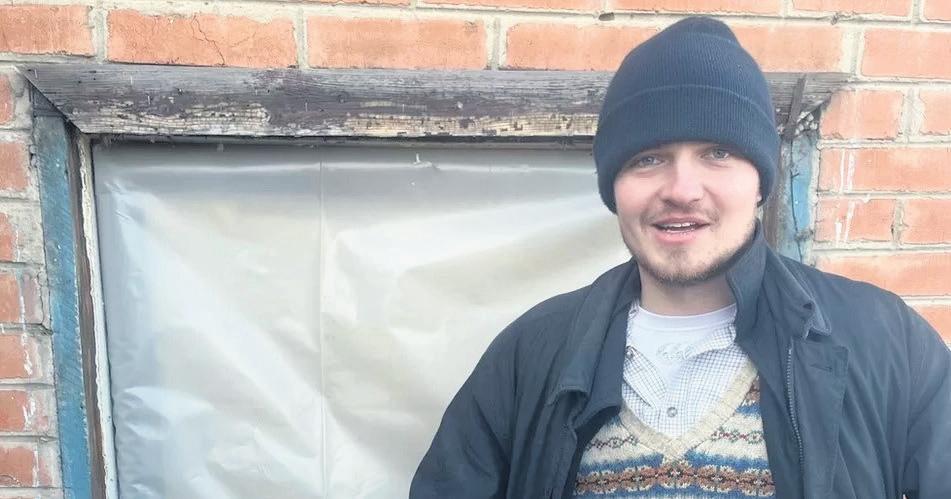
Chris Patel
When Russian forces leave a Ukrainian city or town, life there is forever changed. hey leave huge craters in the roads, landmines in the long grass, and millions of broken windows. After Biotechnology PhD student Harry Blakiston Houston learned about the latter, he knew he could help. His solution? Inventing a new type of window that can take a nearfreezing room and make it warm and comfortable. In just a few months, he’s installed 2,000 of them across Ukraine. Harry paused his studies at Hughes Hall last December to travel to Ukraine with a small team of engineers, and they were shocked by the living conditions they found there. Harry tells me that the Ukrainians they have been helping “have basically nothing left”, and that they try to keep warm in any way they
can, replacing bomb-shattered windows with shower curtains, or jamming teddy bears into bullet holes in a futile attempt to stop the wind whistling through.
“here was an old woman in Mykolaiv, in southern Ukraine, who had been sleeping in her bathtub for two months because it was the warmest place in her house,” Harry recounts. But after he installed his innovative windows, “the house was immediately warmer and lighter”, allowing the elderly woman to return to “some kind of normality”. hat’s when the team irst realised, “We’re on to something here.”

can quickly ind the homes that need their windows the most, and make them habitable again.
“Part of Putin’s war is about trying to make people in Ukraine cold and miserable [...] It’s about breaking their resolve to actually continue defending themselves.”
Insulate Ukraine are ighting this tactic on the ground, and with a clear goal in mind. “We intend to have hubs across Ukraine from where we can replace any shattered window with our solution within 24 hours by simply providing the required equipment.” By the end of the year they aim to install 50,000 windows in liberated areas — an intimidating target which they can’t meet without help.
Ukrainian people he helps — for him, faith provides “a compass for life.”
We often think of Cambridge University as a bubble, and this certainly has some truth to it. But with St Catharine’s student Nikolai Nizalov operating supply drones on the Ukrainian border, and Danny Mykhaylyuk (also St. Catharine’s) sending thousands of pounds of equipment to Ukraine, Harry is not the only Cambridge student who has stepped far outside the safety of the university to help Ukrainians in need.
We want to insulate entire cities, entire villages, entire towns
Harry’s four-layered windows use readily available materials — polyethylene, PVC piping, pipe insulation and duct tape — and are simple to build and install. Harry points out that while “glass shatters” and “wood splinters and doesn’t let light in”, his windows don’t shatter when hit by shockwaves, and cost just £12 each to build. “here is nothing else available today that does as good a job as what we’ve got.” hrough ads on local Facebook groups in Ukraine, social media channels, radio publicity and even lists of afected areas written by the Ukrainian government itself, Harry and the team
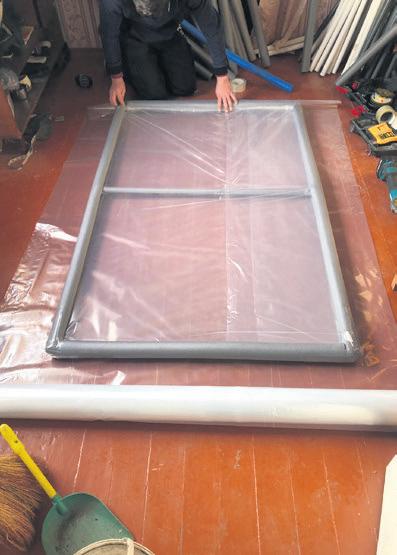
Harry reveals, “we have our eyes on corporate partners [...] to insulate entire cities, entire villages, entire towns.” Individual donations, like the £500 donation from Queen’s College JCR, help buy the building materials; Insulate Ukraine have raised nearly $100,000 so far. Even if they meet their target of 50,000 windows, there are an estimated 10 million windows in liberated areas of Ukraine that need ixing. But Harry is singularly motivated to get the job done.
For Harry, this project stems from “an interest in tinkering” that comes not from his Biotechnology studies, but from his upbringing on a farm in Northern Ireland. Harry has always tried to ind ways to apply his skills in the real world; he took a break from his undergraduate degree at Bristol to develop a “privacy-irst phone app”. Harry is also motivated by his faith. He regularly takes time to pray for the
Harry and the team keep a journal of their experiences, and, above all else, the human connections they have made are what stand out through their writing. hey have met countless mothers who have lost sons to the war and yet
continue to play the role of mother to everyone they can. In the journal, Harry recounts meeting one woman, Dasha, whose lat had an air temperature of 0°C before he replaced her windows. He writes, “It is diicult to comprehend the emotional lift one would feel when a stranger turns up and makes one feel physically warmer and cared for. As Dasha showed us out, she thanked us, wiping away tears from her eyes.”
Friday 21st April 2023 9 News
Harry Blakiston Houston’s ingenious windows make war-damaged houses habitable again. Now, he’s got his sights on insulating the whole of Ukraine
❝
❝
ALL IMAGES COURTESY OF INSULATE UKRAINE
Part of Putin's war is about trying to make people in Ukraine cold and miserable
Arenon-maledrinkingsocietiesanybetter?
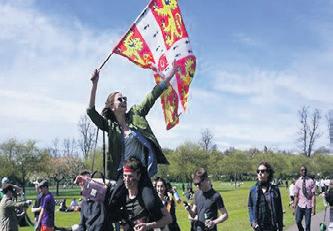 Alice Stephens
Alice Stephens
In Michaelmas, a Varsity article about the activities of Downing’s all-male drinking society got picked up by e Times. Following on from similar exposés in the past, the coverage centred around the treatment of women by these groups. In this instance, a porter at Downing had discovered letters in the pidges of female freshers ‘deemed attractive’ by the male members, inviting them to a swap with the theme ‘Anything But Clothes’. It shouldn’t take a sociology student (me) to explain why that’s inappropriate. Apparently, the Master of Downing, Alan Bookbinder, didn’t need one either. He sent an email around the whole College reiterating the ban on drinking societies, attacking their exclusive nature. His focus was on the entitled misogyny of the invitation, and yet another example of toxic masculinity. e main concern of national media, Camfess and Varsity comment sections was the same. But I happened to know that the women and non-binary drinking society at Downing had sent a similar letter to male freshers, which hadn’t been discovered.
in a manner which divides and degrades. Conversely, doesn’t it take away agency to completely let non-male drinking societies o the hook? If drinking society culture in Cambridge is as patriarchal as they say, how do women and nonbinary people justify their involvement?
It might be true that non-male drinking societies are better behaved and more inclusive than their more infamous counterparts – or, that assumption might itself be rooted in misogyny. To nd out, I spoke to people across Cambridge from all sides of this very old divide.
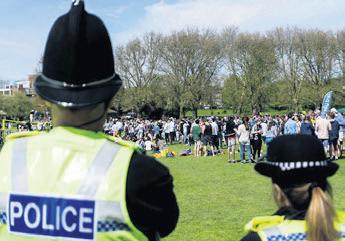

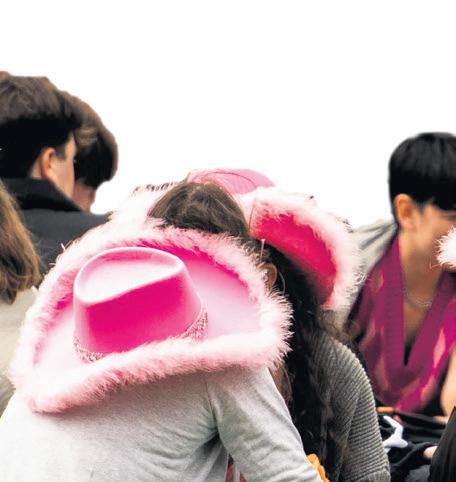
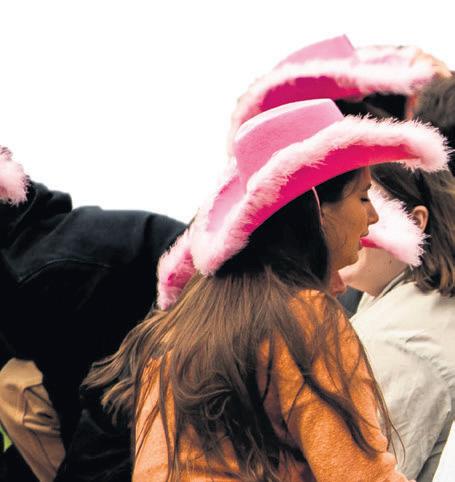
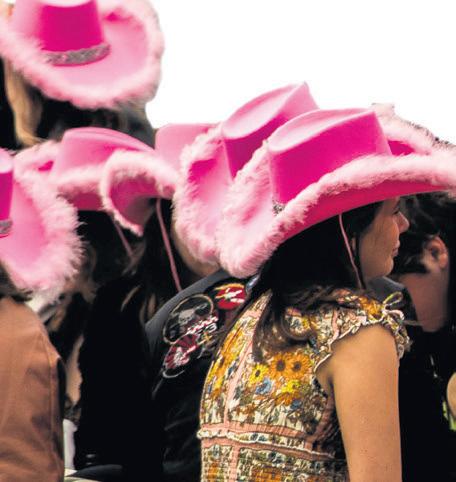
e rst person I spoke to was Amy, a member of Medwards’ drinking society. She seemed to have an answer readily prepared. “People make way too much fuss about this,” she complained: “I think drinking socs have been blown up into this huge serious issue, when really it’s just a bunch of undergrads making friends, going out and wearing silly out ts.” Has Amy, who identi es as a feminist, ever felt her values compromised by her membership? She laughed. “I like to have fun. ere’s nothing wrong with that.”
otherwise. ey don’t care. Women and non-binary societies at least try.”


A former member of another college’s women and non-binary drinking society, Naomi, thought that drinking societies, by nature, could not be inclusive or progressive. While we were talking, she got out her phone and showed me the Instagram page of her former society. “Look,” she said, scrolling down through the years: “It’s, like, fteen of the same person.” She wasn’t wrong – although this was a society that had been ‘inclusive’ for several years, the membership was limited to white, conventionally attractive girls.
e Drinking Soc: a Varsity history
that most non-binary people and gay men choose not to join men’s drinking societies.”
Parker, a member of the men’s drinking society at Oliver’s college, said that
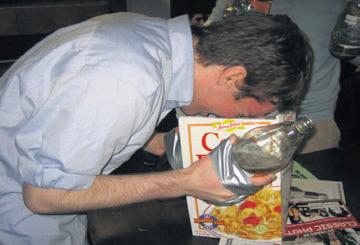
2013:Bulldogs put in the doghouse


Of course, these things don’t happen in a vacuum. ere are systemic power con gurations that mean certain individuals and groups hold more power in certain settings, and that render their actions towards less powerful groups uniquely harmful. In this case, a group of men identifying ‘attractive’ women to invite to an event ties into a long, long history of men judging women and nonbinary people according to a restrictive stand-
ard of female beauty
e next person I spoke to is a member of Downing’s Orchids, a women and non-binary drinking society with an unusual history. e Orchids, according to people I’ve spoken to and my own late-night trawling of Varsity’s archives, used to be one of the most toxic and exclusive societies of the lot. But, in late 2020, it underwent a reformation to become completely open access, running events on a rst-come, rst-served basis with a no-pressure policy on alcohol.
Bella, an Orchids member who “never drinks more than one or two units at an event” said she always felt welcomed and included, and that the presidents had taken care to organise games that didn’t exert pressure on anyone to drink heavily.
Bella also made an interesting point about unequal levels of pressure. “ e men’s societies have never responded to criticism about
inclusivity, from student journalists or
Naomi told me some more about her experience. “My friend and I were pretty much the only people of colour at the introductory event. I had fun, but as soon as we started going to swaps it was very quickly apparent that drinking society culture is a white space in Cambridge. I left pretty quickly, and I don’t feel like my social life has su ered at all.” I asked her if she thought women and non-binary societies were doing anything better than the men’s. “ e all-male ones are worse,” she said, thoughtfully “but to say the women’s ones are inclusive is going too far.”
Several of Naomi’s friends agreed with her. Alina, who is still a member, said that it was the sexualised aspect of drinking society swaps that hindered claims to inclusivity. “I’m not straight or white, and the swaps are only ever with all-male societies. ey’re basically set up like mating rituals, to be honest. So, Western patriarchal beauty standards and heteronormativity are obviously going to come into it, no matter how inclusive the women and non-binary drinking socs try to be.”
Oliver, who identi es as non-binary, told me about their experience in a mixed college. “I had friends in the older years who were in the all-male drinking society, but I was only invited to the women’s one. I wasn’t bothered
because I’d have chosen it anyway, but I did think it was interesting
he asked the gay and non-binary prospective members whether they’d like to be part of the men’s society, but that they usually chose the women’s. One of my NatSci friends later informed me that male homosocial bonding is generally predicated on performing a certain ‘hegemonic’ standard of masculinity, which excludes those who don’t engage in that performance. at would explain why men’s societies tend to be more exclusive, and why women and non-binary inclusive societies who they go on swaps with become self-selecting according to a restrictive standard of patriarchal beauty. But, that all seems a bit reductive. Parker tells me a story about an interaction between one of his friends and a women’s drinking society this year. “ ey were ranking our members according to how attractive they were, and then they all got bad pictures of the guy they decided was least attractive and made him their phone screen background. at was completely of their own accord – it wasn’t as if we asked them to do that at a swap or anything. I don’t think he was supposed to nd out, but he did. I thought it was pretty awful.”
e last person I spoke to was Ella, a graduate of Pembroke who regrets her former involvement in a drinking society. “I think people are trying, but it’s not enough. Whatever your stance is on drinking societies, you can’t argue that having a more diverse membership magically makes them inclusive spaces.”
All student names have been changed
At the Churchill Bulldogs’ 2013 iteration of their agship fresher event “Sinister Swap,” female freshers were made to line up for a braunhooking competition (carried out by male attendees). e event was held at the Pitt Club, and several girls were reportedly taken home in a semi-conscious state by society members. e event was banned by the college the following year.
2014:‘Get involved, get keen and smash '
In 2014, Varsity revealed screenshots from a Selwyn drinking society groupchat, in which members ‘rated’ women they had slept with, describing various women as “cavernous,” “heinous,” “e ervescent,” or “naughty.” at same year, in a leaked email, the Emmanuel Lions’ presidents encouraged members to “get involved, get keen and smash it (/the girls).” e email also stated that the list of organised swaps was liable to change as “more may be added subject to demand (i.e. female demand for Emmanuel penis).”
2015: Fresher set on re during initiation
In 2022, Clare College’s drinking society accidentally set a fresher on re during initiation. Said fresher was covered in ammable liquid and tasked with putting out a lit toilet roll tucked into his shorts by running into the wind. In the process, he caught re and ended up hospitalised. Society members were encouraged to donate to a charity for burn victims but received no other punishment.

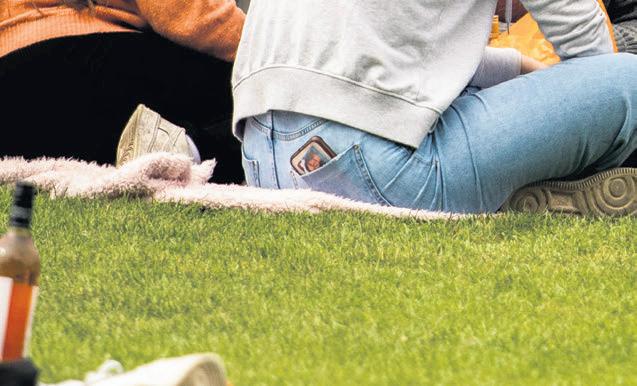

10 Friday 21st April 2023 Features
❝
The all-male ones are worse. But to say the women’s ones are inclusive is going too far
Drinking societies are seen to be posh, male and ‘predatory,’ but are the alternatives for women and non-binary people ‘pretty awful’ too?
▲ TOBIA NAVA ❝
I just like to have fun. There's nothing wrong with that




With Us #WeAreCisco Be You, Software Engineer cs.co/ensoft Follow @WeAreCisco
‘Newspapers, especially ones run by students, have a duty to be exciting [...] eir purpose is to provoke and shock,’ claimed a previous Editor in his out-going comment piece.

I certainly don’t reject the premise that student journalism should be exciting – or even a little provocative where effective. But I nd my cynicism growing when this is labelled a duty.
Are there any duties which we’re required to perform as student journalists?
Claiming to defy authority rings hollow when in practice that means borrowing from the tabloid playbook. It might get us a few more clicks, or a couple of national bylines, but should this be the main motivator behind our paper’s reportage?
As we so often append to our promotional material, Varsity remains one of the only independent student papers in

Student journos should
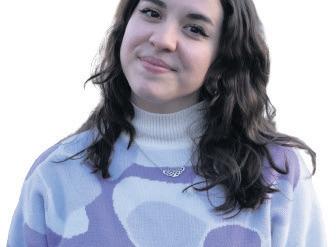
their stories speak for themselves
the UK. Detached from student unions, universities, or giant corporate structures, we are a orded a level of freedom unheard of in the vast majority of media outlets. And whilst what happens in the various recesses of Cambridge is not of interest to everyone, the city’s culture and climate has unrivalled in uence on intellectual circles, social-issues of the day, and even our politics and government. It seems to me a missed opportunity if we occupy ourselves with a selfinduced challenge to authority.
at’s not to say that we should avoid the basic practice of holding the University and its institutions to account.
We certainly haven’t shied away from challenging authority this term. Our rst splash exposed a data leak in the SU, accusations of ballot tampering in the Cambridge Union were uncovered, and most recently, proposals on University legislation found themselves interrogated. is has all been done, however, not with a sense of duty to provoke and
excite, but rather to increase public access to stories which would otherwise y under the radar.
Accountability is about exposing failures and assigning responsibility, and is often the rst-step in bringing about change. In uencing positive change is extremely exciting, and for me, much more exciting than shocking readers or challenging them with ideas they might nd uncomfortable. If uncomfortable means controversial, it’s hard to justify that all these ideas deserve to be heard. Controversy should be reported on, not deliberately created.
I’d argue, then, that our role, not duty, is to undertake thorough and honest reporting, which focuses on the facts as well as the reading experience. ere’s a ne line between making a headline ‘sexy’ (as my co-Editor describes it) and distorting sensitive narratives. An aggressive front page scoop should earn its aggression – I o er this term’s example, 'Sidney Shame’, as deserving of
its headline.
What many readers do not realise is that the student workforce of Varsity is entirely volunteer-run. ere is nonancial incentive, no guarantee of a job by the end of it. Given how many hours I’ve spent in our o ce, this began to feel a little disheartening three prints down the line. But as I sat in on a news meeting the next day, I was swiftly reminded that this commitment is rewarded by being able to work on a paper which can be as experimental and ambitious
the learning process. As we often have to remind readers, we are not trained journalists. We don’t have the support network, money, or resources of Robert Downey Jr. in Zodiac. Occasionally an editorial will be hastily typed-up with 15 minutes to spare. Sometimes, we recycle the same stock image taken by Varsity veteran Louis Ashworth years ago. Very rarely, factual errors slip through – but all this combines into what I have found to be a practical and profound learning experience.
as the team wishes.
Within this freedom is the opportunity to make mistakes or perform underwhelmingly – an inevitable part of
I agree that students deserve a paper willing to challenge authority rather than legitimise it, and have enjoyed seeing Varsity evolve into a distinct and bold, yet unabashedly student-centric paper. is term's team has carefully curated stories which have both raised eyebrows and served an essential function without compromising on truth and sensitivity. But at no point have I felt a duty to frame our articles in a provocative way. Good stories speak for themselves.
12 Friday 21st April 2023
Interested in writing for comment? Email comment@varsity.co.uk with a short 100-word pitch!
Comment
let
of student journalism in her outgoing editorial
Famke debates the role
❝
Famke Veenstra-Ashmore
Controversy should be reported on by papers –not deliberately created.
▲ Cartoon by Hannah Castle
Head to head: Should Cambridge go Vegan?
The recent motion passed by the Cambridge Student Union to support a campaign to make University Catering Services fully plant-based has sparked much controversy. e debates around the decision have centred around the scale of the initiative. ‘It’s just ve cafes’, i.e. you can live with it, can also be read as ‘it’s just ve cafes’, i.e. how will the measure be impactful. Frankly, this reductive dialogue avoids the real issues at stake in this motion. ese ve cafes are staples of student life and will a ect the student population. e green gains of the initiative are similarly non-negotiable: veganism is the single biggest way to reduce your individual environmental impact. e reason that students are getting so up in arms about this motion is that it removes scope for individual decision making. While this might sound spookily authoritarian, it is precisely what we need.
When environmental decisions are placed at the door of individuals, those who make carbon conscious choices lose out. Since meat and dairy are the norm in our catering services, plant-based customers are often o ered disappointing options low in protein or variety. is in turn reinforces stereotypes that plantbased diets are bland or innutritious.
Opting for a plant-based menu will force our University to develop tastier and more varied vegan food options, empowering students to seriously consider climate conscious meals outside of the cafeteria. Plant-based eating is just as balanced and nourishing as meat and dairy when prepared with nutrition in mind: our catering services should reward rather than punish environmentally conscious consumers.
Fundamentally, intervening in individual decision making is often a necessary step as we face our man-made climate crisis. Take single use plastic as an example: when plastic bags are free, the consumer will opt for them. When topdown regulations are imposed, such as a 5p bag charge, we change our behaviour.

However, this is not to ignore the potentially harmful impact of this motion on people with dietary requirements or eating disorders. Dietary requirements
can be accommodated by the University Catering Services, but the SU need to step up for the latter group. e SU should consult relevant advisory bodies and students with eating disorders before implementing the motion, then provide a ected students with guidance and support afterwards.

Everyone deserves a right to food that will nourish them. However, veganism does not equal restriction. As it stands, vegan students with eating disorders are adversely a ected by UCS’ poor provisions. Plant-based catering should be about adding, not taking away. ere’s scope here to provide fake meat for familiarity but also, excitingly, to introduce students to new foods. is is an opportunity for Cambridge to destigmatise veganism, reduce our environmental impact and diversify food options. As long as it’s executed sensitively, I’m in favour.
As radical as the SU think they might be, our diets have served as ideological battlegrounds for millennia. Fillipo
Tommaso Marinetti, the Italian Futurist, released a cookbook in 1932 in his peculiar attempt to create a new, virile race of Italians. Within the book he cast scorn on the lethargic pasta-munching habit of his fellow Mediterraneans, advocating for the total abolition of pasta across his homeland. is dietary advice was quite convenient given Mussolini’s lack of success in the ongoing “Battle for Wheat” - an autarkic propaganda campaign supported by the Futurists. Strangely, Italians did not heed Marinetti’s recipes for phallic meat sculptures, and have thankfully stuck with pasta to this day.
We are quite right to mock Marinetti and his eccentric pasta prohibition. But they are both no less illogical than claiming, as the motion which passed did, that our mental health would somehow be “hugely boosted” by forcing vegan grub on us all.
Fundamentally, regardless of what you think about veganism, the root issue with this motion comes down to a question of democracy and liberalism, and to whether you believe in either.
From the reaction the motion has generated, it is clear that only a tiny mi-



nority of students actually support what the SU is doing. Even among those who are vegan, the motion is controversial. So it is utterly bizarre that representatives of the SU - an organisation which is meant to represent students and their interest - chose to pass this motion.
ose in favour of the motion argue that it is for the greater good. But deciding what is good for students while totally ignoring their own opinions agrantly disregards the democratic principles on which the SU is meant to operate.
So what this debate really represents is a wider debate about how we should approach climate issues. In their vulgar, utilitarian reasoning, the motion and its supporters have fed the narrative that liberal democracy is an obstacle to necessary change. Not only is this narrative untrue, but it is dangerous.
roughout its history, authoritarians such as Marinetti have always found excuses to overrule liberal democracy. Yet each and every time democracy has shown itself to be more resilient than its cynical naysayers.
Instead of denying it, the SU should leverage free choice to its advantage. While a ban on animal products will deter many students from even eating at university catering sites, simply subsidising and lowering the cost of plantbased foods relative to their alternatives is likely to be a far more successful way to reduce consumption of animal products.
e other kind of imposter syndrome
Feeling like a fraud doesn't always stem from an inferiority complex
Imposter syndrome is far from a new phenomenon in Cambridge.
Self-doubt and wondering what
fraudulence you committed to get here is a quintessential part of the experience. Even if you happen to be one of the lucky few blessed with an abundant supply of serotonin and self-esteem, everyone has had that one existential supervision that made them re-evaluate their life as they knew it.
Whenever I bring up my Mike Rossesque sense of personal illegitimacy, I am reminded that expectations are extraordinarily high here, the culture is competitive and I shouldn’t be so hard on myself. I earned my place. I am met with reassurance and told to sti e the gut instinct that sometimes screams “you should not be here!” But what if I am the imposter? Are we all just too scared to admit it?
e more I re ect on my rst two terms at Cambridge, the more I cannot help but feel that historical truth may lie at the unforgiving heart of my imposter syndrome. It is no secret that the Uni-




versity sought to serve privileged interests from its inception – and the legacy of this framework that upheld a white, upper-class elite is still felt today. Even though huge strides have been made to improve diversity on all fronts, the phantoms of class inequality, prejudice and racism continue to lurk these halls.
I am reminded that the percentage of private school pupils admitted in 2021 was quadruple the proportion of the national population which they constitute.
Analysis found that, as recently as 2019, Cambridge accepted more Etonians than black male students. For me however, the sense of being an imposter is not just about academics.
It manifests in questions about which –capital S – School you went to; in May Ball tickets which cost the same as a
small holiday; in uneasy stares and awkward silences when race gets brought up. Beyond just admissions statistics, the ghosts of the past are not so easily shaken o . Sometimes, I am all too aware that I am taking up space at an institution that was never for me.
I cannot speak for every marginalised student, nor do I aim to, but I feel as though there is a dis tinctive binary that students from traditionally underrepresented backgrounds must navigate at places like this. Your rst option is to embrace the “imposter” and make room for yourself in well-established, white-dominated spaces – whether that be a sports team, drinking soc, the Union or even this paper. e second is to set up spaces of your own that a rm the belonging of people like you.
Let me give you a real-world example. I decided to go with the rst option when I joined Varsity, a place where I felt like almost no-one looked like me. While it has been one of the most fruitful experiences of my time at Cambridge (and I would encourage everyone to give it a go!), sometimes I was overcome with
the sense that, at any given moment, someone would out me as the fraud I was; that my writing would in some way con rm the belief that people like me don’t belong in spaces like this. I braved the unease, and I am (mostly) happy I did.
On the other hand, Tia-Renee, a friend and fellow Caian, rejected the rst option in order to save herself the discomfort and self-explanation that inevitably comes with “in ltrating”. Some may see this as self-in icted restriction, but is it not understandable to want to protect yourself in a place with such a long history of exclusion? We are not, after all, obligated to wrestle with the phantoms of the past. Instead, she opted to co-found e Black Artist’s society, a space for “black heritage creatives in Cambridge to collaborate, network and have their work showcased” in de ance of a perceived lack of opportunity for representation in the Cambridge creative scene. Nevertheless, this too comes with its challenges, particularly that of starting something afresh.
ere is no one-size- ts-all solu-

















tion to counter feelings of inferiority or fraudulence for minority students at Cambridge but I don’t think we should be so quick to shut down expressions of
“imposter syndrome” as complete ction. Rather, I think we could all gain something from understanding the history that rst othered us as “imposters” and the present-day manifestations of this culture. Whether students from disadvantaged backgrounds choose to take or make space, I am proud of the steps being taken to challenge outdated systems within the University. I hope we keep making our voices heard, because everyone bene ts from inclusivity; the world is a better place when we all feel safe and welcome.

Friday 21st April 2023 13 Comment
Asha Kaur Birdi
▲ANNA WEBB
Clarissa Salmon and Sam Hudson clash on the SU’s recent motion to make all uni catering vegan
❝ The ghosts of the past are not easily shaken off
❝
Class inequality, prejudice and racism continue to haunt these halls
❝
The SU should leverage free choice
Gwenno Robinson

It’s the start of October 2021 and my hands are trembling as I type. I’m frantically texting my mum, my dad and two friends from home to let them know I’m sat opposite Michael Kohn.
In case your Monday nights aren’t punctuated with the opening music of University Challenge, Michael Kohn is something of a University Challenge legend. He’s up there with giants like Monkman, Loveday and Rout.
Kohn was the captain of Imperial College London in Season 50, and wowed audiences with his impressive breadth of knowledge spanning maths, literature and jazz. Much to my excitement, he decided to study for a masters at Pembroke College, Cambridge in 2021.

e competition of University Challenge goes well beyond the TV screen. Each week, “Swansea, Robinson” (Dad), “Bangor, Williams” (Mam) and I (“Pembroke, Robinson”) battle it out, usually with minimal success.
e BBC's own University Challenge
Does the national broadcaster have an Oxbridge obsession?
e show has recently been subject to a series of complaints in the latest debacle regarding the BBC’s adherence to its impartiality rules. At the end of March, the BBC was accused of breaking its impartiality rules by “rigging” the popular show University Challenge in favour of Oxford and Cambridge.
Frank Co eld, an emeritus professor of education at University College London, criticised the BBC for hiding the true extent of its Oxbridge bias after his freedom of information request to reveal how many Oxbridge teams have featured on the show was denied.
Co eld’s complaints centre around how each of the Oxbridge colleges are allowed to compete in the programme despite having as few as 300 students, while much larger civic universities such as Manchester and Birmingham, with around 40,000 students, are allowed only one entry each.
In his view, the show’s format treats “all other universities in the UK apart from Oxbridge as second class ... the bal-
ance is grotesque, inequitable and indefensible.” Co eld has since urged the National Union of Students to boycott the competition in protest.
e BBC defended the format of the show, arguing that all higher education institutions which deliver courses at the level of bachelor’s degree or equivalent are welcome to apply, stating that the show is “not limited to Oxbridge colleges” but includes around “300 colleges of further and higher education across the UK”.
Complaints about the programme’s format are not new. In 1975, back when the programme was on ITV, a team from Manchester University staged a protest in the nal round of the show against Downing College, Cambridge. ey answered “Che Guevara”,“Karl Marx”, “Trotsky”, or “Lenin” to every question in a bid to make the show unbroadcastable and so bring attention to the Oxbridge bias of the show.
Nearly 50 years on, their argument still stands. Across the show’s 51 nals to date, only 11 have been between nonOxbridge institutions, most recently last year when Imperial College London went head-to-head with the University of Reading. In this year’s series, eight of the 28 teams are Oxbridge colleges. e format of University Challenge is only the tip of the iceberg when it comes
to the BBC’s so-called “Oxbridge bias”. When Amol Rajan joins the show later this year, all three of the programme’s presenters will all have been Cambridgeeducated. A quick Google search tells me that ten out of the past 14 DirectorGenerals have been educated at Oxbridge, including the two most recent, Tim Davie and Tony Hall.
Only a few weeks ago, the BBC dedicated over three hours of coverage on a mainstream channel for the annual Oxford v Cambridge boat race. e Boat Race has been broadcasted on the BBC for over 80 years, and it’s the only University-level sporting event which receives national coverage.
e real “University Challenge” for the BBC is in recruitment. In 2020, Davie recognised how “socio-economic diversity, di erent types of people, di erent voices” was a “big issue” for the BBC. Davie pledged to recruit sta from wider backgrounds than Oxbridge, in a bid to “modernise” the over 100-year-old corporation.
e BBC’s most recent diversity & inclusion plan sets out the corporation’s commitment to create an organisation which “re ects more accurately the society we serve”. e report details a “50:20:12” plan, aiming to have a sta body and leadership with a gender balance, with at least 20% from BAME backgrounds, and 12% with disabilities. e plan also claims that the BBC “plans to build our socio-economic diversity” – but fails to include socioeconomic background within its targets, as nearly 50% of sta at the BBC have chosen not to declare their background.
e rule that the colleges of Oxford and Cambridge enter individually on University Challenge dates back to 1962, when the programme was rst devised. In the past 60 years since then, the BBC has come a long way in diversifying its output and workforce. e archaic format of University Challenge needs to change if it is to align with the BBC’s commitments to diversity.
e BBC needs to be more transparent in how it selects teams for the show, and, on a broader level, in how it selects graduates to join its workforce. In the words of Jeremy Paxman: “Come on, let’s have an answer. Let’s have it please.”
Studying Russian in the wake of war e invasion of Ukraine should be a turning point for Russian studies
In February 2022, just as I was con rming my course choices at Moscow State University, Russian troops amassed at the Ukrainian border. is exchange program was axed almost overnight. e year that has elapsed since then has been a remarkable time to be a student of Slavonic studies. Despite being less than halfway through the degree, my cohort was swiftly forced to confront whether our course of study was defensible. It may sound dramatic to think of a simple supervision or seminar in these terms, but we really did have to call into question whether dedicating our studies to the history, culture and language of a socalled ‘terror state’ could be justi ed. In the week of the invasion, I can recall the stony silence in a Russian language class, when our teacher asked point-blank if we even wanted the lesson to go ahead. At the same time, I was also studying Ukrainian and every lecture and supervision facilitated the study of a distinct and
fascinating nation and culture, which the Kremlin would have us believe simply do not exist in their own right. Unable to go to Moscow, I initially ended up at the University of Vienna, where I attended Ukrainian language classes. My teacher explained that after the outbreak of war she had refused to continue teaching Russian. Following the bombing of Dnipro in early January, she even vowed to never speak Russian again.
Such reactions are hardly unwarranted in the face of such extreme violence and brutality, and it is no wonder that students and sta in Slavonic studies in Cambridge were faced with an immediate re-think. Most striking has been the development of a new decolonising approach to Russian studies. e Russian Empire and the Soviet Union, which
spread over land to adjacent territory, often don’t spring to mind rst when we think of Empire. Whereas French studies long ago made the transition to Francophone studies and incorporated African and Caribbean cultures into the eld in a more major way, the same cannot be said for Russian. A Russian degree was (until about ve minutes ago) very much a ‘Russia’ degree, although its speakers are found in the Baltic states, Belarus, Moldova, the Caucasus, Central Asia and of course Ukraine. e Soviet doctrine of Russi cation foisted the language of Moscow upon hundreds of millions across a vast territory, but since then has simply become a fact of life.
We might still wonder whether we should condemn a language for the twisted actions of a government, or
even a nation. In the past, the Russian language was undoubtedly weaponised by Moscow and its status often remains fraught, but that is not to say that it has not to some extent been claimed and almagated in a positive and productive way. For me, this complicated postcolonial dynamic in fact warrants the study of Russian. Moreover, understanding Russia’s past and present is unquestionably crucial to promoting peace and cooperation today throughout the former Soviet Union.
I am writing this article from Astana, Kazakhstan, a city where almost everyone speaks both Russian and Kazakh, in typical post-Soviet style. Astana simply means ‘capital’ in Kazakh and its futuristic skyline has sprung from the steppe in the last few decades, purpose-built for a newly independent nation. However, it still illustrates the diverse in uences on the country; the view from one side of my at is a Stalinist-esque high rise, but face the other way and you see the shining golden domes of a mosque. e people that I interact with on a daily basis don’t use Russian because they do or don’t support the Kremlin, it is simply part of how they live. In fact, I am told that it is commonplace here in Astana to drop Russian words into Kazakh speech. Various students have gleefully told me that cursing is far more enjoyable in Russian. is is an almost completely

bilingual city and after several months I have encountered exactly one
local who couldn’t speak Russian. It’s fascinating to be here and learn about a completely new Russophone culture, one so far removed from the Kyivan Rus, Pushkin or the canals of St Petersburg. If I remember correctly, Kazakhstan was mentioned precisely once in my studies thus far in Cambridge, in the context of a mass Soviet agricultural project which devastated the country and unleashed a brutal famine. e lecture then swiftly returned to events rmly on the other side of the Urals. is year a whole cohort of Russian students is discovering the true diversity of the Russophone world. If we return to Cambridge with an enthusiasm to speak Russian and to study not its culture, but its cultures and their complex intersections, then despite the truly terrible trigger for this change, this strikes me as one of the few upsides.
14 Friday 21st April 2023 Comment
Jasper Maughan
▲ Astana, Kazakhstan (Jasper Maughan)
❝
Of finals to date, only 11 have been Oxbridge-free
❝
❝
My exchange program was axed almost overnight
e real “University Challenge” for the BBC is in recruitment
YouTuber Memeulous: ‘I’m better o not showing my face’




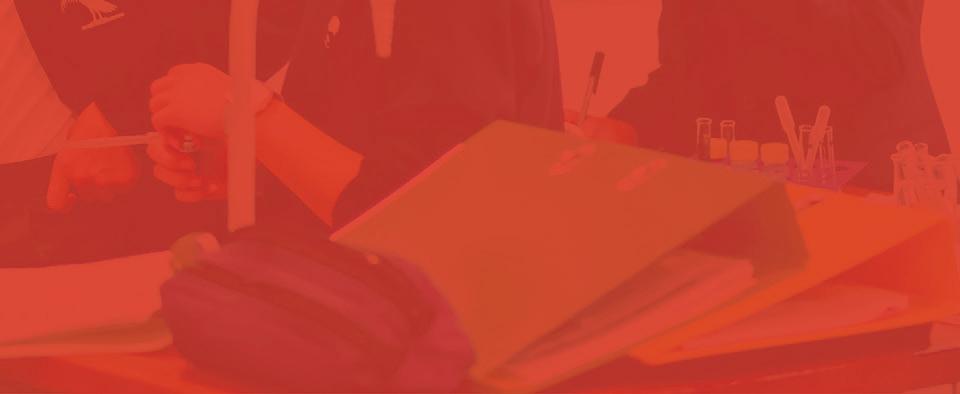
Aoife O’Driscoll speaks to content creator Memeulous about his rst public appearance, the videos he’s most proud of, and the pressure to reveal his identity
e name ‘Memeulous’ is well-known on YouTube — a content creator who has amassed over 4.5 million subscribers on his main channel, and 1.1 million on his second channel. However, for years none of his large following knew as much as his real name. Even now, only his rst name, George, is known — all other personal information remains a mystery. One of the biggest talking points of the online sphere is its emphasis on appearances, yet this is something which Memeulous has never encountered. As a ‘faceless’ content creator, he has created his image with his trademark hat, sunglasses, and black and white bandana, leaving no part of his actual face visible.
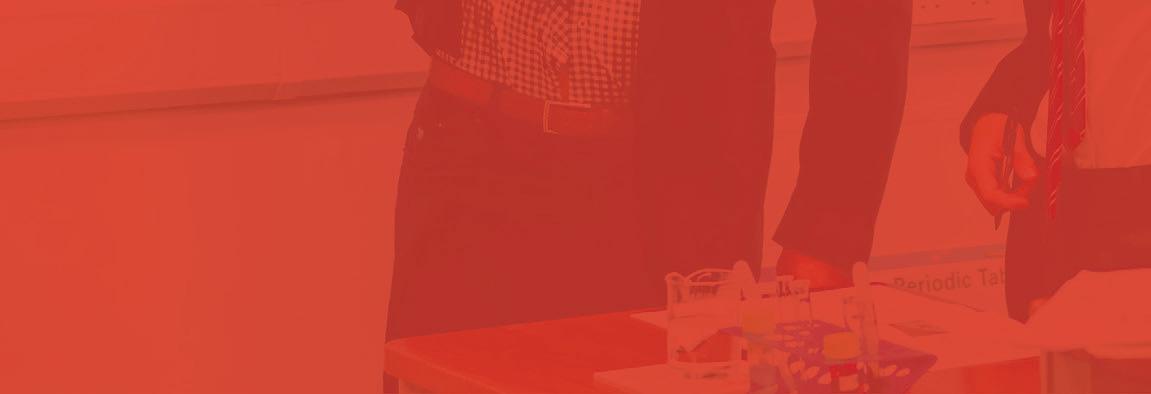
True to form, this is what Me-

meulous is wearing when I meet him, right before his event at the Cambridge Union. On top of his signature look, he has
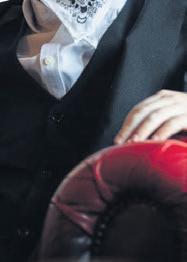
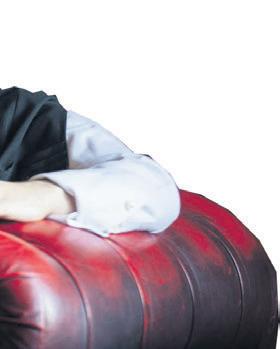
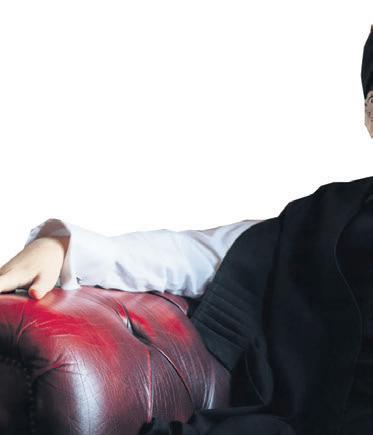
also donned a waistcoat and Cambridge gown — clearly choosing to fully immerse himself in his surroundings. e over-the-top out t may have just been for fun, but it serves to remind me that the occasion marks a signi cant moment in the YouTuber’s career — it is his rst ever public appearance. With that in mind, I ask why he chose to accept the invite to the Union, after many years of remaining behind the screen. “It’s just a bit of an honour to be invited to speak,” he tells me. “When they messaged me, I looked at their YouTube channel [where they had] people like Stephen Fry, and I was like, ‘Why have they invited me?’ But I just thought it would be a cool thing to do.”
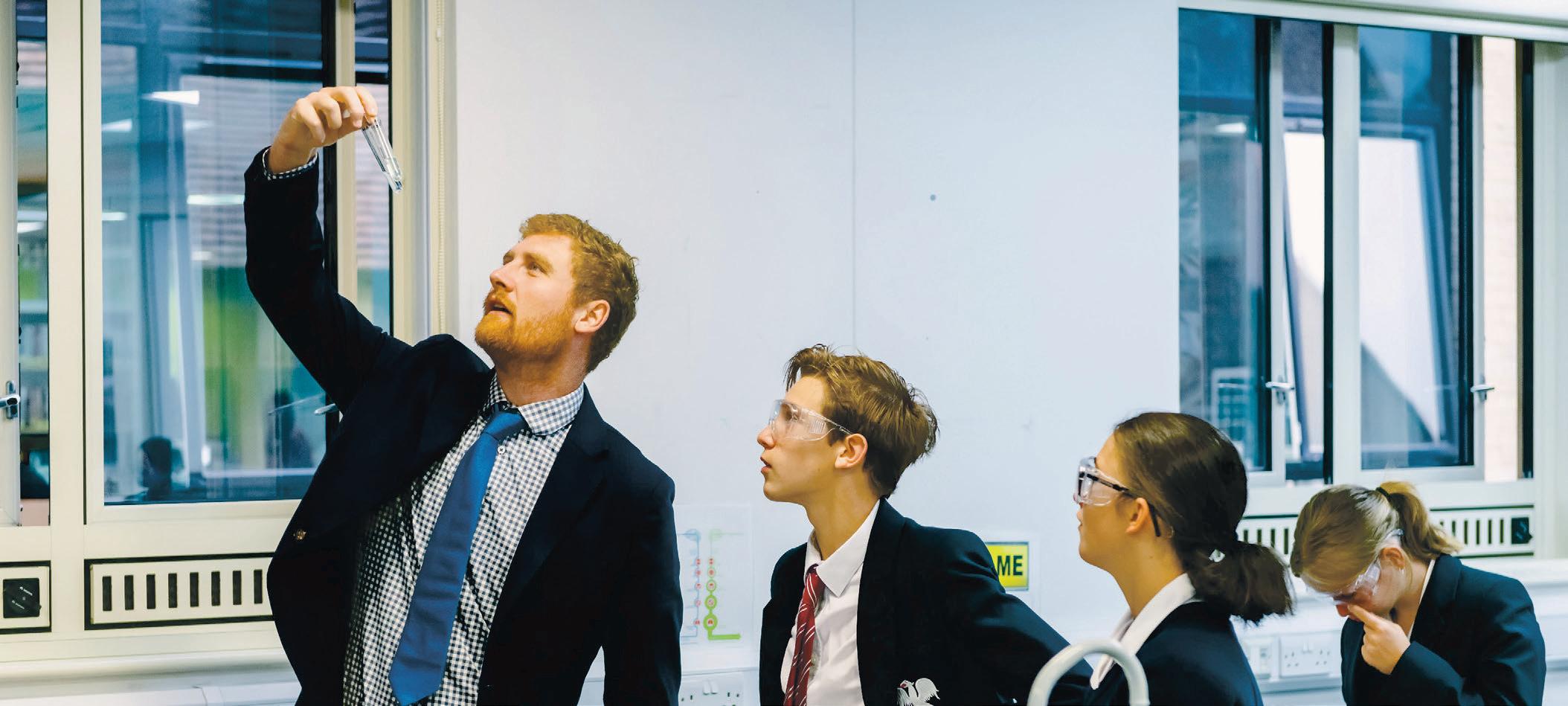
Known primarily for his commentary videos focused around online culture, Memeulous has amassed a large follow-

ing over his many years in the channel, and continues to entertain viewers with his humour and acute observations. He often produces videos in collaboration with other popular content creators, and reveals that he is most proud of e Eboys podcast, which he launched with fellow YouTubers WillNE, James Marriott and ImAllexx at the start of lockdown —
comfortable, you can’t be curious about that,’ because I guess it’s natural to be curious.” He amends this by adding that “some people try and take it too far [...] they’ll go out of their way to make you feel uncomfortable. But it’s very rare.”
got a lot of backlash just for the way he looks, he hid it for so long.” Memeulous also mentions that he and other faceless creators were brought into the conversation when this was happening, with
“they’re some of the only videos that I go back to and watch to this day.”
It is impossible to avoid the elephant in the room — his identity. Even when sitting directly opposite him, I am unable to make out any part of his face; this is someone who has mastered the art of remaining a mystery. I ask him how he feels about people inquiring about his identity, and whether he has ever felt a pressure to show his face. He pauses for a moment before responding: “I feel like there’s obviously going to be a certain level of curiosity, and it’d be a bit weird if I was like ‘ at’s making me feel un-
But would he ever actually reveal his identity? “A couple of years ago, it was something I was genuinely considering [...] because I just felt as though it would maybe help in some way.” However, he has since had a change of heart — he thinks that “it wouldn’t really make a difference. And if anything, I feel as though I’m better o like this, not showing my face.” It seems as though the closest his audience will get to seeing his face is his ‘eye reveal’, done to commemorate reaching 4 million subscribers in 2020.
Seeing what has happened to other ‘faceless’ content creators, it is clear why Memeulous has decided to remain anonymous . Recently, the YouTuber and Twitch streamer Dream chose to reveal his identity, and received an overwhelming response online, the majority of which was not positive. Memeulous takes a moment to re ect on this reaction, and the relationship that viewers seem to have with online creators. He puts forward that Dream is “just a normal looking guy,” but argues that “even if he was the most attractive man in the world, he would have
many saying that the negative reaction to Dream’s appearance would make them not want to reveal their identities either. However, he is quick to dispel these ideas: “It’s not really because of that [...] if you put yourself out on the internet, you’ve got to expect some level of [backlash].”
It’s clear that Memeulous has found a niche that works for him. Within a space that is often characterised by its superciality, he has gone against the grain by choosing to hide his face and has found success nonetheless, proving that sometimes in social media, appearances really aren’t everything.

Friday 21st April 2023 15 Interviews Teacher Training at Hurst Turning talent into
Our pioneering ‘Teach Hurst’ Teacher Training programme is fully-funded and includes sponsorship of PGCE and ECT training, competitive starting salary increasing regularly as you progress through the programme, free on-site accommodation and free meals. Visit hppc.co.uk/teach-hurst
teachers
▼FLO TAWNS
❝ ere's obviously going to be a certain level of curiosity
❝
If you put yourself out on the internet, you've got to expect some backlash
Interviews
e extraordinary life of Farrukh Dhondy
Chris Patel
“E.M. Forster said: “I write to win the respect of people I respect.” George Orwell said: “I write because I want to know what I think.[...] I started wanting to write because I couldn’t play football, cricket, hockey or boxing.” But don’t feel too bad for Pembroke alumnus Farrukh Dhondy, because he’s done just about everything else. From rst-generation immigrant at Cambridge, to socialist activist, to Channel 4 executive, Dhondy has been on both sides of the establishment. He has always used his position to challenge race and class divisions.
ese days, Dhondy has countless novels, plays and television scripts to his name, but he had to shelve his writing dreams in order to emigrate from India to England. “ e only reason one could get out of India on a scholarship was to do something that would lead to either science, engineering, or a profession.” Dhondy completed a Natural Sciences degree at Pembroke in 2 years, then switched to English, doing 3 supervisions a week in his summer holidays to catch up. Pembroke was the place to study English in the Sixties — every aspiring author wanted Ted Hughes’ former room, and the late critic and broadcaster Clive James would “sit around in hall and ponti cate about every damn thing.”
According to Dhondy, sixty years ago there were no second-generation immigrants in Cambridge. None of the non-white students were British-born, so, with their homes halfway around the world, Dhondy and other international students stuck together. ey were “kicked out of college for the holidays [...] so we were put into wherever we could nd digs. So I was living in an attic in
Pursuing peace with CURAP
Lois Kildea
“If the society you want to join doesn’t yet exist, you can set it up” is a university open day cliché. But do many of us actually pay heed to this advice, and how does one go about establishing a new society ex nihilo? ese are the questions I posed via Zoom to Sienna James, an Art Historian who, last summer, founded Cambridge University Research Association for Peace (CURAP) — “the university’s rst student-led issue-speci c think tank”.
e natural starting point for our conversation is why Sienna chose to set up a new society dedicated to peacebuilding. She explains that the idea to start CURAP arose following a shift in her career aspirations, “was motivated not by a job but by a cause.” Sienna attended “an event hosted by the Rose Castle Foundation” — a charitable organisation specialising in peacebuilding between Abrahamic faiths— where she watched a documentary about women from Muslim and Jewish communities in America coming together to “speak about their di erences.” Sienna remembers leaving and feeling “like there’s something that I should be doing here.”
Fitzwilliam Street.”
Dhondy’s “socialist leanings” determined his next move — the Atomic Energy Commission of India o ered him a job, but as “Indira Gandhi, the Prime Minister at the time, was making an atomic bomb” he chose to teach instead, while working as a freelance journalist. Dhondy soon recognised that in schools, “the way the black kids were treated was not right.”
“Each year was divided into ten divisions, so the third year was 3-1, 3-2, 3-3, 3-4, 3-5 … and then 3X and 3Y, for all the kids who they said had misbehaved in the other classes [...] And it was all whites in the top and all blacks in the bottom.” Despite saying that he didn’t really experience racism at Cambridge, throughout our interview, Dhondy drops
Action Group, helping South Asian immigrants avoid eviction. Despite not using violence, Dhondy became the target of violence when his at was rebombed.
e bomber, who was never caught, attacked four other black and South Asian houses that night, and Dhondy’s at, he explains, was bombed because it was above a Black Panther bookshop. “I woke up choking, and I thought someone was putting a pillow on my face. ere was nothing there, just smoke.” Mercifully, Dhondy escaped with only cuts on his legs from the glass of his exploded window.
Dhondy identi es clear parallels between the black British experience and the British Asian experience: “the kind of discrimination one used to face in the access to professional jobs, for instance. e resistance and the battles that we fought have resulted in both blacks and Asians getting access to the meritocracy.” He jokes, “the simplest examples are Rishi Sunak, Suella Braverman, Priti Patel, for God’s sake, Kwasi Kwarteng — I’m not proud of that.”
set up a documentary programme called e Bandung File, and included esteemed journalists on his team, but until he introduced white executive producers, Chan-
Channel 4 was given a remit by Parliament to do things that nobody else had done before
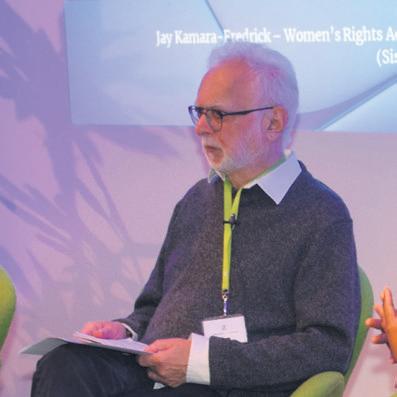
nel 4 wouldn’t give the green light. Socialism and antiracism course through Dhondy’s veins, but he also argues that, for television audiences, there’s a time and a place. “A television audience doesn’t want to listen to lectures — why should they?” to Dhondy, the best television strikes the balance between message and entertainment. “If you’re writing a sitcom, write in the situation, with some bloody com in it!”
One of her aims in launching CURAP was to produce something tangible, like “a paper within a year” and in Michaelmas 2022, this is what the recently formed committee of seventeen or so students, from an array of disciplines and at di erent academic stages, set out to do.
As publication day approaches, I ask Sienna about her experience of leading a team. She recalls feeling nervous before the rst focus group and wondering “who’s going to turn up” on this “rainy” November evening in the middle of term.
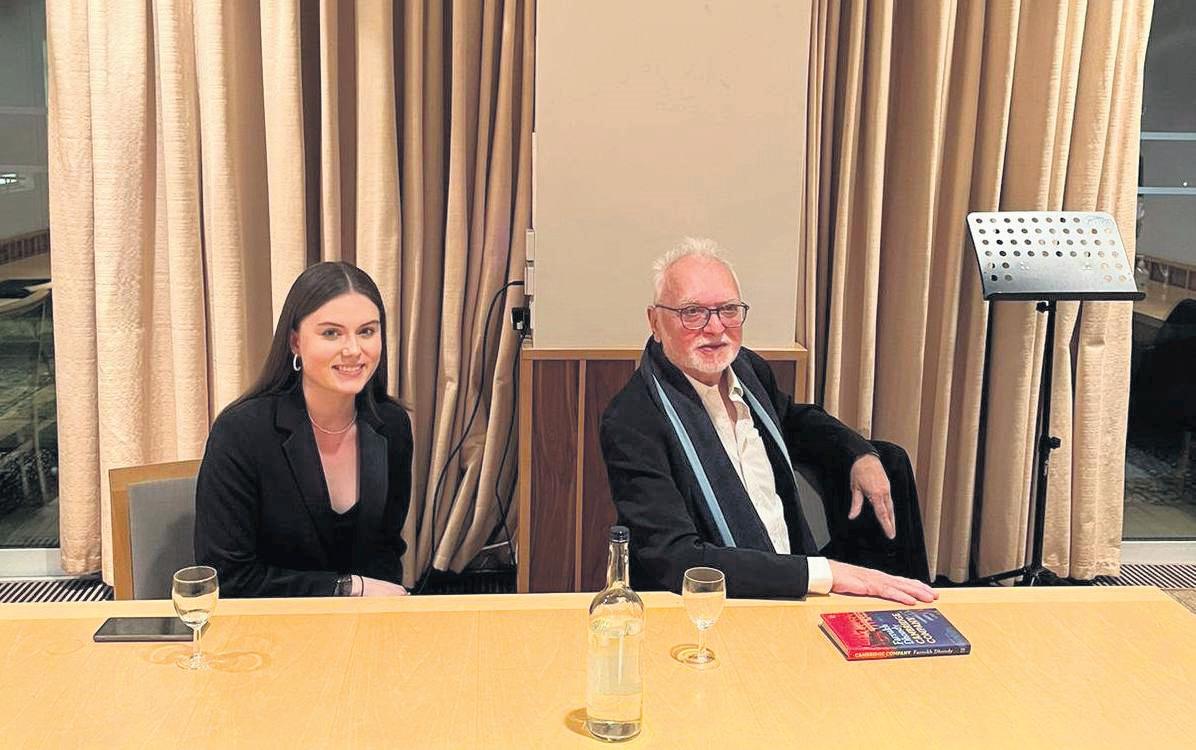
As it happened, those who signed up turned up, and the conversation ran on beyond the scheduled nish time. People seemed to “really care… they weren’t just hanging around but wanted to be there and express their views.” For Sienna and other committee members who were present, it was satisfying to watch participants’ con dence increase and recognise that their contributions were valuable.
clues that show how deeply racism was embedded in English society. He studied for a Master’s degree in Leicester, during which time his local pub was “ e Pack Horse” and all too matter-of-factly, Dhondy says, “of course they called it e P*ki Horse”.
Dhondy’s socialist leanings and awareness of racial injustice led him join to the British Black Panthers. He quickly mentions that, unlike America’s Black Panther Party, the BBP was nonviolent, and only “gave itself that name to attract young blacks and Asians.” Dhondy also belonged to the Bengali Housing
Later, Dhondy worked for Channel 4, and soon became their Commissioning Editor. “Channel 4 was given a remit by Parliament to do things that nobody else had done before,” namely, multicultural programming. Dhondy wrote for Black on Black, a news programme aiming to counteract the largely negative news coverage of black people. He also wrote sitcoms such as No Problem!, featuring a Jamaican family, and Tandoori Nights, set in an Indian restaurant.
Even in this enlightened climate, Dhondy faced obstacles. Dhondy believed that, for black and Asian communities to “join the national conversation”, they had to be represented by journalists who belonged to their communities. He
Sienna considers one of CURAP’s most interesting ndings to be the phenomenon of students “atoning” for “wealth and privilege” and other aspects of their background. She describes it as “absolutely fascinating” and adds, “I wasn’t expecting it at all, but it came up as a recurring theme.” Another memorable moment was when one participant began to outline a ‘fake feminist’ gure, recognised instantly by her fellow participants, which Sienna thought “was kind of hilarious, but [...] worryingly [so]”.
Given Sienna is soon to graduate, we close by considering CURAP’s future. Her hope is that one of the second years on committee will assume her role as president, and that new members will join. If not, however, Sienna is unfazed, telling me, “I’m also happy with it being a oneyear project [because] I think the right amount of people have been involved to make it worthwhile.”
Read the full article online.
16 Friday 21st April 2023
From rst-generation immigrant at Cambridge, to Black Panther, to Channel 4 exec, the Pembroke alumnus shares his story
❝
❝
In schools the way black kids were treated was not right
▲ Dhondy was a key member of the British Black Panthers (WIKIMEDIACOMMONS)
Cambridge Students INSPIRE in Research Showcases
Is CamFess Classist? Alex Berry and Suchir Salhan ind out more about student research conferences
Alex Berry and Suchir Salhan
At leading academic institutions like Cambridge, it’s not just the academics who are doing important research. Many students undertake research projects during their degrees or over the holidays, with many of these having the potential to have lasting beneits in their respective ields of research. It’s safe to say that we weren’t aware of just how many opportunities there are available to students. herefore, we set out to learn about two student research conferences that have been taking place over the Easter vac.
Suchir: Is CamFess classist?
I’ve spent both my summers in Uni
an interest in a new research direction) while gaining valuable experience.
I spoke to third-year linguist Romany Amber, who is fresh of presenting their research on Classism in CamFess at the ULAB Linguistics Student Conference. he project was sparked by Romany’s experience as Christ's JCR Access Oficer for a few years and an internship in the College admissions oice.
“Camfess as a platform is cool and interesting, and is a place where wealth and social class come up a lot, in discussions around Cambridge culture, bursaries, May Balls, formals etc.”
“Cambridge’s reputation as a staunchly middle/upper-class culture is something that comes up a lot as a concern for working-class students – the way Oxbridge is talked about in the media upholds this idea and I’ve seen how this puts people of applying.”
doing research. I found that it’s a great way to work closely with leading academics in your ield on some interesting projects (and, perhaps, even spark
Romany found that “class is discussed on Camfess with much greater frequency than British-English Internetusers at large, although this is more true of words relating to the upper end of the social class scale: words like ‘middle-class’, “privileged” and ‘posh’ were mentioned disproportionately more often than ‘working-class’ or ‘poor’.
“Camfess subverts a lot of the trends found in analyses of mass media in the UK: crucially, the posts I looked at pretty much unanimously acknowledged class as a contemporary social divider and working-class people as a systemically disadvantaged group.
“However, the posts were very middle-class-centric and failed to examine some of the class-related underpinnings of issues they discussed. here was also a tendency to apply class-related language to issues like college disparity, which may reveal a lack of understanding of class inequality (though I discuss some other potential explanations too).
“Cambridge students are not necessarily good at talking about class, but they are actively exploring it in a far more nuanced way than a lot of British media, like the harmful depictions of working-class people as 'lazy' or 'scroungers' (think of TV shows like Beneits Street or any article in the Daily Mail…) I discuss some potential reasons for the diferences between Camfess and mass media.
“I think anonymous online platforms provide a great opportunity to look at what people actually think about social issues and how they are discussed by people on the ground, rather than journalists or TV producers.
“As the ULAB Conference is speciically for undergraduates, it felt like a gentle(r) introduction to conference presenting, and a good opportunity to get some feedback on a research project I’d done over the summer last year.”
Alex: INSPIRING Research by Clinical Medics
Cambridge University Students’
Clinical Research Society (CUSCRS) organise the INSPIRE conference to discuss their research with leading academics and inspire other students to pursue their own research interests.
Why are labrador retrievers prone to obesity? As the irst time the conference had been held since the pandemic, the best oral presentation was awarded to former Varsity Science Editor Sambhavi Sneha Kumar. She investigated the associations between speciic signalling pathways and obesity in labrador retrievers, which have a genetic bottleneck due to pure breeding, by studying the efects of genetic variation in certain gene sequences on obesity. his animal model could potentially help ind similar regions of genetic variation in the human genome and gain an understanding of the genetic factors that inluence predisposition to obesity, and therefore possible new therapies to treat obesity in the future.
CUSCRS Co-President Michał Duchniewicz said, “We had such a good variety of presenters, with everything from molecular research up to some machine learning on prostate volume, which I found really interesting.” He was “really glad about the quality of posters we received and the oral presentations, and the judges were also very impressed…”, which is big praise given that the judg-
ing panel consisted of experienced academics and researchers.
“You’d think that Cambridge is a place in which people want to do research, but we still have to promote it and get more people involved as many of us are not that aware of what opportunities there are around us.” Get involved in Student Research!
Suchir: Student Research has really been a game-changer for me. At the end of my irst year, I got paid (pretty well!) to work as a UROP Intern (which stands for Cambridge’s Undergraduate Research Opportunities Program) in the Computer Lab learning how to use some of the machine learning models that underpin ChatGPT. I’d wholeheartedly recommend UROPs to any student interested in research. Colleges can even subsidise aspects of your research, such as reducing rent while you’re conducting it– which Caius did for me in my second year.
Student research can address key issues that may be overlooked by leading academics, like the thought-provoking questions Romany’s research raises about the Cambridge student community. Equally, it can lay the foundations for future research projects, like the INSPIRE conference.
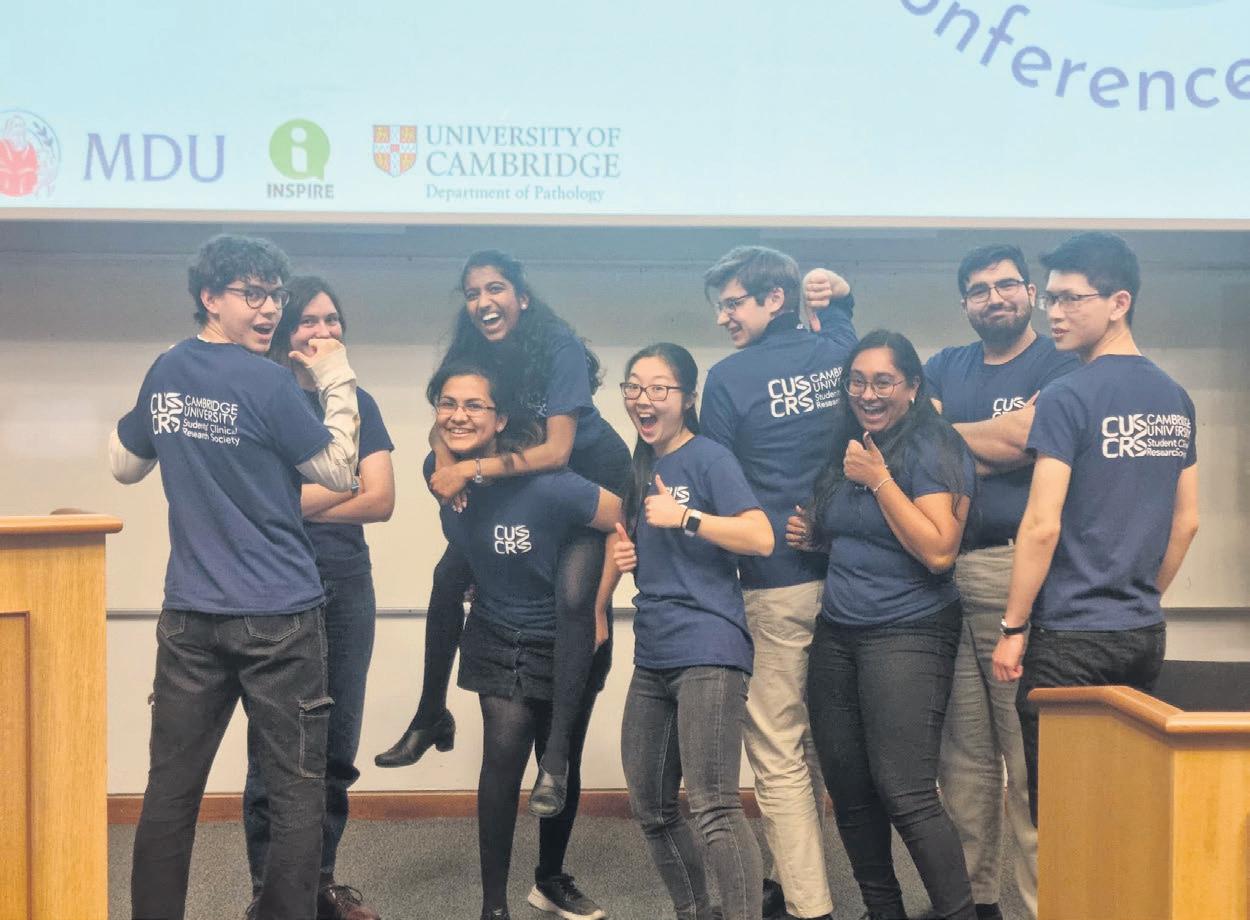
Alex: It can be amazing to think that your friends are conducting research that has such important potential impacts on our society, but it is also something that we should acknowledge and appreciate more.

Friday 21st April 2023 17 Science
▲ he Inspire Conference (CUSCRS)
❝
▼ ROMANY AMBER WITH PERMISSION FOR VARSITY (CUSCRS)
❝
Cambridge students are not necessarily good at talking about class
Student research has really been a gamechanger for me
Struggling to stay focused in exam term?
We’re hardwired to lose our concentration
e key to concentration lies in the brain’s ability to identify and direct attention towards particularly task-relevant sensory stimuli, whilst ltering out less relevant background information.
Two regions in the brain control attention: crucially, there’s the prefrontal cortex (PFC), the region of the brain that we consciously choose to activate when deciding to read, paint a picture or study for an exam. ere’s also a region called the parietal cortex that induces a subconscious, autonomous response. It is a survival tool, keeping us safe from imminent threats.
Humans are evolutionarily hardwired to have an attention span that can be broken easily as a safety measure. In this way, our ancestors were constantly alert to any changes in the background, and always prepared to
suddenly redirect attention towards a new danger. Essential as this may have been, now it’s just another obstacle that lies between you, a completed essay and a satis ed supervisor.

Daydreaming isn’t so bad after all!
Although daydreaming may seem like another barrier between us and productivity, we can speculate that allowing the mind to wander has bene ts. It presents the rare opportunity to escape from the busy world around us and focus on our internal thoughts, which not only boosts well-being but provides a unique creative outlet that heavily structured days don’t allow. en, when the attention comes back to the present, we can feel not only uplifted and rested but perhaps also newly inspired by novel ideas arising from the free exploration of our subconscious mind.
Daydreaming changes our focus
from the task at hand to an internal, subconscious exploration of thoughts and ideas. We don’t know why the mind wanders, but we are particularly prone to it when focus is shifted away from the outside world, such as during periods of rest and when performing tasks on ‘autopilot’.

Organic chemist Fredrich Kekulé claimed to have come up with the idea
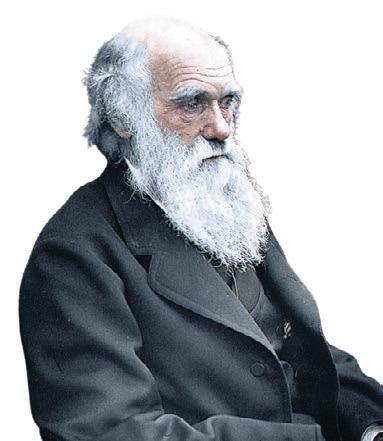
that benzene was a ringed structure due to a daydream where he saw a snake eating its tail. e occasional daydream might not be so harmful to your Tripos performance after all.
Use Noise-Cancelling Headphones!

One way is to try and minimise the amount of background neuronal activity that arises from irrelevant external stimuli, which generates less work for the brain in trying to identify what is important. It may seem obvious, but for this reason, noise-cancelling headphones or ‘white noise’ tracks can help concentration a great deal as they block out activity around you.
What’s the bigger picture?
Work on task motivation by spending some time reminding yourself of why you’re doing it, including how the
Here’s the Science behind concentration ere’s a diversity problem in Cambridge Science
Suchir Salhan
Cambridge consistently ranks among the best in the world for STEM subjects. In the most recent QS World Rankings, the University is the 3rd best institution for Natural Sciences and for Psychology. But these results obscure a crisis of diversity in Science education at the University.
A career column in Nature investigates the diversity of the PBS Tripos curriculum. Led by Lee de Wit from the Department of Psychology with PhD student Saskia Ghai and undergraduate Yan Mak, the study was prompted by the 2020 Black Lives Matter protests.
e authors found a “striking, but perhaps not surprising lack of voices from under-represented groups and regions”
Saskia Ghai and Yan Mak looked at the research papers used to teach two compulsory courses in the PBS tripos, (PBS1 and PBS3), “combing through the reading
lists” for both papers (their preliminary results can be found here). ey created a massive spreadsheet with the authors’ institutional a liations, the location and demographics of the study participants for a total of 198 reading resources.
Focussing on research papers that included human and animal participants, their ndings uncovered that no research paper included study participants solely from the Global South, and no article on the reading list was a liated with institutions based in Africa, Asia or Latin America. e analysis does have its limitations, which the authors acknowledge. eir approach of classifying authors based on their institutional a liation (using only author names or online photos) obscured “representation from ethnically diverse, gender- uid or low socio-economic groups”.
e analysis of the reading lists leads the authors to claim that “Cambridge’s current teaching canon for psychology does not su ciently represent perspectives from around the world.” While the ndings do re ect a broader Western bias in psychological research, the authors underlie that most members of Cambridge’s Psychology department “are white and from the global north”.
e study also poses the question: “How can predominantly white departments systemcally measure
and honestly re ect on the diversity of their curriculums?”
“Given the University of Cambridge’s own legacy of enslavement and racism, we have a lot of work to do to become a truly multicultural and inclusive space for all students,” the audit concluded. is is not an isolated problem of the PBS Tripos. Other Science departments and faculties are also grappling with diversity issues and tokenistic inclusion policies. One example that indicates a much broader issue comes from the Chemistry Department. Varsity was recently contacted by Lucy*, a female postdoc from the Department of Chemistry, about a talk that the department held to mark the UN International Day of Women and Girls in Science.
e talk was supposed to be about a 19th-century Chemist called Jane Marcet, who Wood recounted was at one point described by the male speaker as “the old bird.”
“I nd it absolutely beggars belief that in 2023, this is the best that one of the top Chemistry departments in the world is able to o er up,” Lucy* told me.
“I was utterly underwhelmed by this lecture, and frankly pretty furious that it was billed as a celebration of women in science. It was a waste of an opportunity. I could have written a hundred better talks”.
Lucy* said that this was her “ rst experience of sexism in Cambridge” –other than that “Cambridge has been excellent”. She added that experiences of sexism for postdocs and sta in Science departments heavily “lie in your
personal experiences with your boss”.
Lucy* also noted that the talk was given by a man. “It’s not down to the women to give all the talks. Why can’t men give a talk about women?”
“It is not the role of a department to resolve sexism”, she said. at much is clear to me. I spent the rst week of the Christmas vacation last year helping out with the online interviews at Caius for
❝




outcome can t into a bigger picture. Motivating yourself like this can have two e ects: rstly, the perception of a reward for the task drives the release of dopamine, which brings about positive feelings that help sustain focus.
Secondly, there is a neurological response to feelings of engagement and passion for the task that activates a bundle of neurons in the brainstem which boosts wakefulness. is, in turn, improves concentration, and increases your mind’s ability to refresh. So when it’s a Friday afternoon and the thought of working is unappealing, to say the least, remove the distractions and take a step back to allow your mind to breathe. Come back with a new, positive outlook that lets your brain do its thing. Who knows, you may even come up with the next big discovery in your subject!
Physical Natural Sciences. Unlike nonSTEM subjects, most of the candidates interviewed were male. It’s hardly fair to blame interviewers or colleges that give more o ers to males based on a heavily skewed sample of applicants, given the wider social issues with increasing the numbers of women in STEM.
Yet, the tokenistic diversity measures within the Chemistry Department are not only limited to this incident. Lucy* also mentioned that the Chemistry Department includes graphs on the front of lecture notes, showing the number of female students studying Chemistry
in Tripos. is move was apparently prompted to encourage more women to choose to specialise in Chemistry in Part II or Part III in the Natural Sciences Tripos, seeing as the proportion of women atlines between 30-40%.
Lucy* says that she feels that a few members of the Department are being repeatedly “wheeled out as diversity gures.”
is underlies the more serious and systematic inequalities that Cambridge is dealing with, which diversity or access initiatives will not address productively. Since our conversation, I believe that a pedagogy that prioritises diverse voices from across the world, that enriches education with a catalogue of talks that genuinely and wholeheartedly address diversity issues in scienti c disciplines, and that works to create a more diverse faculty are steps that the University should be taking.
It’s clear that Cambridge has a long way to go to create a multicultural and inclusive space for its scientists and students.
In response to our request for comment, the Department of Chemistry said: “We are committed to improving diversity in our department and in the subject as a whole, and we believe the rst step to improvement is acknowledging the situation.” ey indicated their receipt of the Athena Swan Silver Award as a demonstration of their commitment.
Names have been changed to protect anonymity. e authors of the Nature article, Lee de Wit and Saskia Ghai, were contacted for comment.
18 Friday 21st April 2023 Science
We have a lot of work to do to become a truly multi-cultural and inclusive space
ati▶WIKIMEDIA COMMONS
In exam term, just taking a moment away from the relentless demands of revision can often seem like a luxury. Katie Jeans unpacks some of the science behind concentration
vulture.
Internship Chic: How to stay stylish on your summer internship
 Kathryn Austen
Kathryn Austen
Like many others, my time as a student is drawing to a close. On top of a sense of loss, anguish, and existential fear, the move into the working world also brings with it the question of the working wardrobe. Again, like many others, I have found myself an internship for the summer and one which absolutely demands a ‘corporatechic please take me seriously’ wardrobe. So what is internship chic? How do we maintain the individuality and freedom that we have acquired at Cambridge? And just because we
are corporate sellouts, does our wardrobe have to be?
I recently took a shopping trip with one purpose: corporate wear. I personally have always adored the silhouettes and cuts that can be found in workwear. A tailored cigarette trouser, the proportions of a perfect blazer, the satisfying line of a shift dress.
Yet as the day went on I grew weary. Not just at the extortionate cost and complete inability of the clothing industry to standardise sizing (nothing new!), I was dismayed at the sheer lack of variety.
If black and navy are colours that make your heart sing then I am thrilled for you because you my friend are going to have a fabulous time shopping. But for anybody looking to add some colour into
their wardrobe - good luck! A sea of greys, navies, blacks and the occasional beige met me at every store I went into. I want to make it very clear that I have nothing against neutrals. Like everything, they have their place, and as a money-deicient student, neutrals are the perfect tools for building a capsule wardrobe. However, there was a distinct lack of fun and enjoyment in the workwear available. Surely entering the corporate world should not mean that we abandon all personality and individuality? I fear my move into the workplace may be a jarring transition from the experimental and boundary-less Cambridge fashion scene.
So how can we maintain our individuality and
style in internship-chic? Colour, while dificult to ind, is deinitely an excellent way of injecting your wardrobe with personality. I especially love colour blocking and while suits, especially for women, are hard to ind or expensive, trousers and a jacket in a matching shade is always a chic look. Pattern has not been present in recent trends, but easily brings life into workwear and can be extremely personalised. Whether it is lorals, geometric or paisley, they tell people who you are. his personal lair can carry across from student fashion as well - those seventies
Continued on page 22 ▶
▲ DANIEL HILTON
Ghost Cam: Your guide to the supernatural Cambridge
 Alice Mainwood
Alice Mainwood
And now, upon the sun’s long-awaited appearance, I have of course tripped and fallen at on my face into my annual, UV-ray induced spell of unbearable positivity and optimism. e possibility of a pretty new summer dress and a picnic (with all the trimming – sausage rolls, lemonade, and a massive allergic reaction for us hay-fever sufferers) has tanned my supervision anxiety and Easter pre-reading list into but the least of my concerns. is time of year is always a time I nd myself feeling more positive. Exam term has nothing on me – the sun will x all my problems. My sun-soaked brain, however, also always turns to re ection. And now more than any other year, I have found myself re ecting on what has been a bit of a meteorite of an academic year. e life of a Cambridge student is something of a masterclass in time management (or more realistically, perhaps a masterclass in artfully asking for deadlines because you spent two hours in the MASH queue the night before essay-deadlineday). We are a mass gathering of chronically busy students, cramming an overin ated university workload into three eight week bouts per year.
Esther Arthurson
It’s commonly acknowledged that Cambridge is a place of great su ering and unresolved trauma. If you’ve ever been at a 9am on a ursday morning, you’ll know exactly what haunted looks like. (In this case, haunted by tequila, regrets, and memories of sandwich-wielding Christians anking the exit that you’re pretty sure were a hallucination.)
Cambridge is a place on the edge – and I’m not referring to its temperamental student population. Cambridge as a settlement was historically situated on the face of a vast moorland, the remnants of which we can see in the Fens; the nal frontier of humanity, forming a liminal space in which two worlds collide. If you scratch the surface, you can trace Cambridge’s bruises back through the centuries in a constellation of unresolved pain. All of it tragic – but how much is true? at’s up to you. Now, without further ado, I give you Cambridge’s most haunted colleges...
Peterhouse
As the oldest Cambridge college, its spot as number one is hardly surprising. We all knew Peterhome for troubled souls.
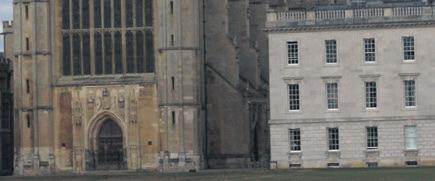

Peterhouse is known to have conducted at least




three exorcisms in its time, one of which caused such a stir that it was reported by the BBC in 1997, performed to alleviate a presence that was thought responsible for an unprecedented bout of depression amidst the residents. e college’s location on the brink of the Fens – that borderland where things get… stuck – and adjacent to Little St Mary’s Lane, a supernatural highway according to local ghost tour guides, makes it a particular spiritual ash-point.
e lane is a regular hangout for the ‘Black Shuck,’ which is the polite term for ‘demon dog.’ If you see this particular wagging tail, you’d better get working on your bucket list, because rumour says you’ll only have a year left to complete it. It goes without saying that Shucky probably wasn’t a very good boy.
volunteered to stay behind and help the sick while Corpus became a makeshift hospital for plague victims. He was completely isolated, passing his nights alone in the Master’s Lodge and his days amidst the dying. A genuine hero. He took his own life once things had returned to normal, failing to turn up at Great St Mary’s (his holy side hustle) to give the Easter morning sermon. Such great su ering as Butts witnessed leaves a mark on all involved – is it any wonder that such pain never quite nds its way out? Butts can be seen roaming the grounds today, identi able through his white doctor’s coat, plague mask, and his bruised, swollen neck.
Corpus Christi King's
Corpus: home to a high percentage of Firsts, a number of disgruntled (dead) residents, and the world’s most aesthetically challenged clock. Its grounds include a built-in graveyard and the oldest building in Cambridge (St Bene’t’s). ree spectral inhabitants are particularly infamous among porters, two of whom are the victims of a 17th Century lovestory-gone-wrong. Catherine Spencer, the Master’s daughter, and James Betts’ clandestine ing was brought to an abrupt halt when James hid himself in a mahogany chest to avoid the discovery and wrath of her father upon his unexpected return home. Catherine came back to nd her lover dead from suffocation. Heartbroken, Catherine soon followed her soulmate, leaving this mortal plane after a nervous breakdown only a few months later, and is buried in St Bene’t’s cemetery. e two lovers, reunited in death, can be seen smooching around College grounds, pulling behind pillars, and are fairly harmless. If you hear two sets of footsteps, you’ll know you’re safe. But only one and you’re in trouble…
Henry Butts was Master of Corpus in the 16th-17th Century, and had to deal with its own mediaeval pandemic – although I imagine remote learning was a tad tricker back then – when the bubonic plague made its deadly visit to Cambridge in 1630. Students were evacuated, teaching suspended. Butts
King’s… need I say more? Or did I just achieve a one-word horror story? Cambridge is home to many eccentrics, but none quite as unusual as the memory of Mr Barrett. He is a one-man answer to why the Gibbs Building in King’s is now uninhabited, used for day-time supervisions only. Barrett took his goth phase to the extreme, indulging an unhealthy interest in the occult by keeping a cofn (perhaps the ancient ancestor of the bean bag) in his room. He kept his neighbours up at night, screaming and screaming for hours on end. (Very much a case of don’t ask, don’t know.) But the real trouble came when one night, he suddenly stopped screaming. He was found in his co n, smiling at the ceiling through unseeing eyes. Every year, on this anniversary, his cries can be heard once again, reverberating the entire stairwell, no doubt issued through that ghastly, smiling mouth, hence the building’s prompt evacuation. e moral of this story: avoid the eccentrics.
So there you have it. Tread carefully, for you are walking on history or even graves – Midsummer Common was a mass burial ground for Black Death victims, after all. And remember to stop now and then to acknowledge that relentless ticking, that hideous clock where all things must end. And, when you do so, make sure to look behind you.
My fresher eyes had seen nothing like it before. And I really had seen some busy schedules in my really-quite-academically-intense sixth form. I barely knew what to think. e pressure, workload, and culture that Cambridge freshers experience is certainly nothing akin to what our school friends are experiencing elsewhere.
Over the course of my rst two terms here, though, I have slowly learnt how to be a Cambridge student. It’s not just learning to meal plan, it’s also learning how to handle your stack of deadlines and many more stacks of secondary reading, right from week 1. So, having undergone a chrysalis-like Michaelmas and Lent, my annual period of re ection has coincided beautifully with both the sun’s arrival and my preparations for my nal term as a Cambridge fresher.
e newfound optimism with which I’m viewing my academic prospects is not, of course, without a somewhat crippling fear about losing my fresher label. Whilst overwhelmingly terrifying at rst, I have grown to love being new here. My invisible fresher nametag makes me feel protected from the true extent of academic pressure – a comfortable, reassuring shield, that sounds an awful lot like ‘It’s ne! First year doesn’t count anyway!’ As an English fresher, I think I’m right to be not quite so intimidated by my single exam this year than my heavily plighted lawyer and medic friends. Still, the thought of having to progress from silly little fresher to a student with more than one exam to revise for feels almost as intimidating as becoming a fresher in the rst place.
But that’s a worry to think about in eight weeks’ time.















For now, the sun is back, and everyone’s exams are still weeks away. e freshers have grown up, and we’re well on our way to becoming actual functioning students. ABBA’s ‘Slipping rough My Fingers’ plays in the background.

Lifestyle
e disgustingly optimistic outlook of a soon-to-be-no-more Cambridge fresher
spot house was least
20 Vulture friday 21st april 2023
▼ROSE DOLAN
Yori-gret this! A night of disappointing food at Yori
Leo Scran & Scraniel Hilton review Yori's new location on Green Street and see if it's worth the hype



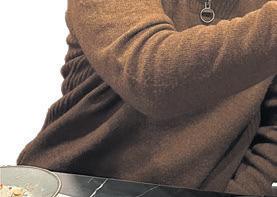 Leo Kang & Daniel Hilton
Leo Kang & Daniel Hilton
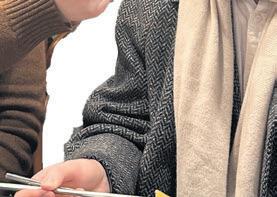
The restaurant chain Yori – meaning “cook” in Korean – promises “fresh and authentic” Korean cuisine. It recently opened its second Cambridge location, landing sleekly on Green Street like a wood-panelled spaceship. With Leo still jet-lagged from a month in Korea and Daniel still stubbornly a kimchi virgin, it was time to investigate whether or not one of Cambridge’s hottest new eateries would live up to the hype.
In terms of atmosphere, we had no complaints. Cambridge is a city that closes egregiously early, so it’s nice to see Yori sticking it out till 11pm. e restaurant is always, from what we can tell, bustling with people, and the decor is crisp and classy, with marbled black tabletops and warm yellow lanterns. e doorway is also adorned with photographs of famous faces who came to visit. If Yori is good enough for the cast of Parasite, surely it’s good enough for us?
We started our meal with their signature boneless chicken platter. For the mammoth sum of £23 we were presented with 16 measly pieces of popcorn chicken – something you could get from any high street chicken shop for a ver (probably with fries too). e main selling point was the

tasty Korean sauces, but the chicken itself was tough and dry, ending up more of a disappointment than Week 0 Revs and only slightly less nancially draining. Result: 3/5 - avoid unless you’re using daddy’s money.
Next up was the courgette jeon (pancake) which was crispy to perfection and doughy to a tee. Leo was quoted as saying it was as good as any of the jeons he had in Korea, but where this one di ered was in its £10.50 price point. For our and a few slices of courgette, this was lamplight robbery. Result: 4/5 - very good, but you can make it in your gyp for a quid.
roughout the meal, Daniel was sampling Korea’s national beer, Cass. Cass is perfectly ne for Leo, but it failed to impress Daniel’s seasoned Lancashire palate – he found it mostly ino ensive and declared “it’s beer for people don’t like beer”. Despite being disappointing, the beer did serve the purpose of getting rid of Daniel’s shakes, making the chopsticks in nitely easier for him to use. When the japchae and kimchi arrived, we
realised we had hit a new culinary low. After a single bite, Leo sighed “this is the worst japchae I’ve ever had”. e noodles and beef were dully sweet, lacking in avour and simply existing in our mouths. e kimchi was not content with simply existing and instead decided to choose hatred, obliterating us individually in mouthfuls of malicious sourness. Kim- chi is, of course, supposed to be ferment- ed – that’s what makes it so tasty. kimchi had progressed fermentation and bein our opinion, logical hazard. Daniel was left disoriented and scared, while Leo struggled to hold his chopsticks steady over the ominous rumbling of his ancestors turning
in their graves.
Result: 5/5 angry Leos - worse than a night at CUCA.
But this far past come, a bio-
















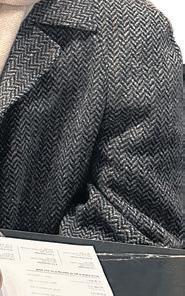
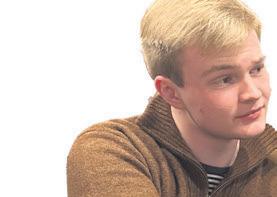





Yori is not a bad restaurant (hell, it’s probably one of the best in Cambridge) but it is, quite simply, disappointing. In Korea, eating is all about generosity. Tables are crammed with dishes and side dishes. Everything is shared, and when you nish a dish, it’s relled – the eating stops only when everyone is full. Of course, this isn’t a viable business model for a London-based restaurant chain. But with its modest portions and highly ambitious prices, Yori fails to hit at the heart of Korean food. Next time we fancy a fun little Varsity date, we will simply go back to college and fry some pancakes.

Lifestyle
★★★ ★★★★ Vulture 21 friday 21st april 2023
▲ Photos by Jiali Lu
▶ continued from pg. 19 patterns that you’ve been sporting have a place in your professional era too! Accessorising is also a great way to bring air to your style. is can be anything from a lipstick, a metallic hair clip or chunky jewellery; whatever the form it will transform simple clothing combinations into unique ts. One of the most exciting aspects of current fashion trends is the variety of high-statement jewellery visible across fashion spaces. I hope to see this trend passing on into workwear as it elevates an out t from forgettable to show-stopping. e accessories you sport on the streets of Cambridge need very little alteration for the working world. ose long coats and scarves are perfect for winter workwear and in many workplaces Doc Martens can be worn without side-eye from the CEO. is is just as well, as trying to buy work shoes, especially for women, is an exhausting and unful lling experience. Accept early on that shoes will either give you 50 blisters or will just be a bit ugly. Or both. Boots are great for winter, but as for summer shoes, I have much left to learn. So does workwear have to be boring? No. ere are ways of maintaining the iconic and recognisable aspects of Cambridge student fashion. And as I move onto the next stage of my life, the memories of the Sidgwick-girlie fashion scene will forever be with me.




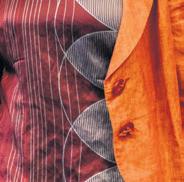



DanielHilton


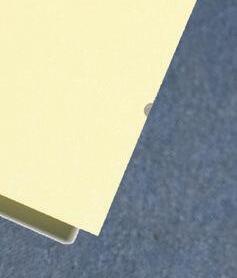

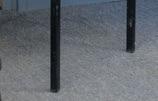
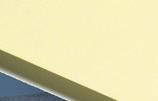






























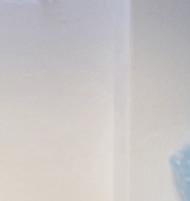
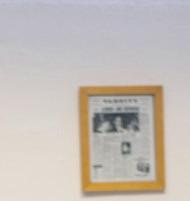
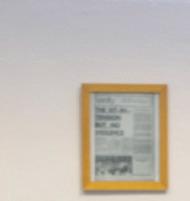

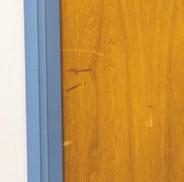
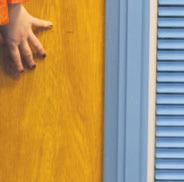

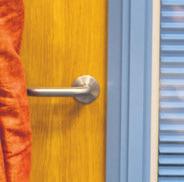
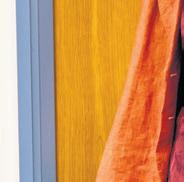


























CreativedirectorsEdenKeily- urstainIsabelDempseyPhotography
















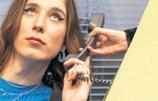



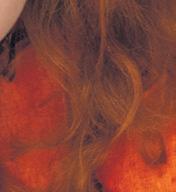


















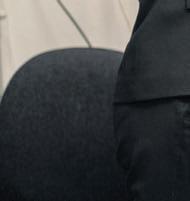


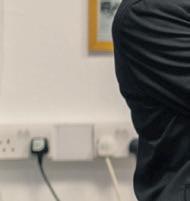
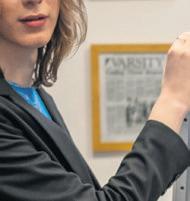
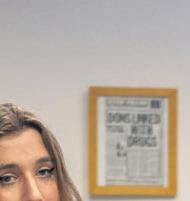

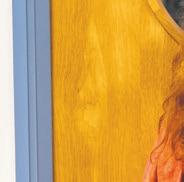


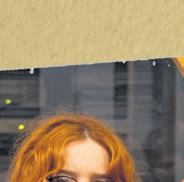












































Fashion friday 21st april 2023 Vulture 22 Vulture
(notes on)
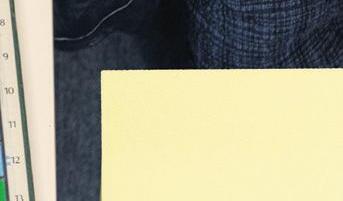








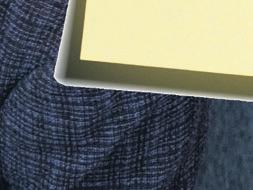

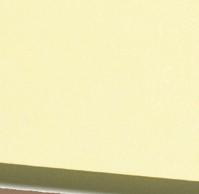



Models

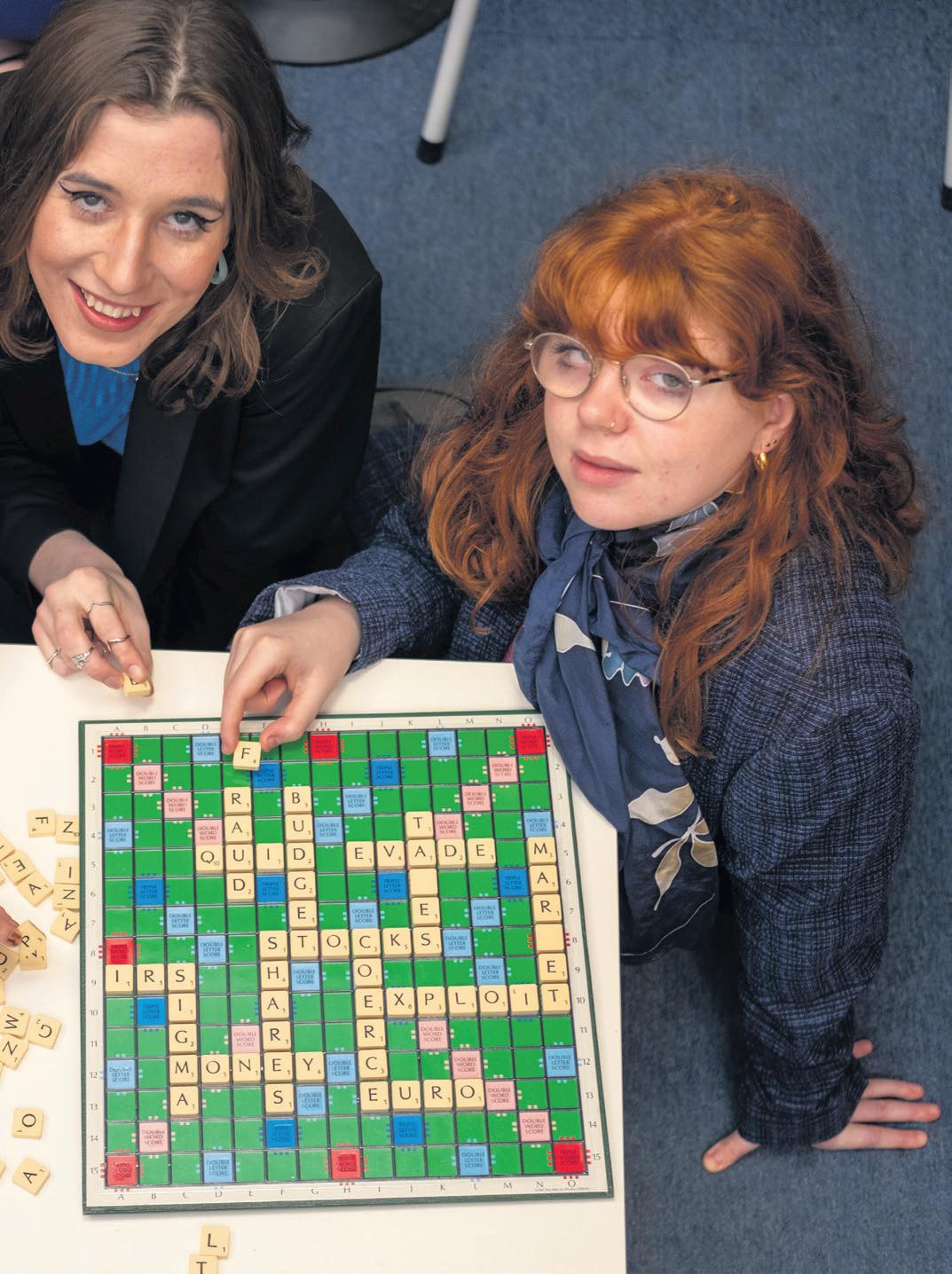

Natasha Sauvage

Emily Lawson-Todd


Isabel Dempsey
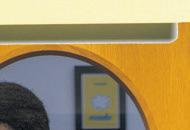
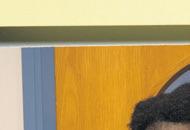

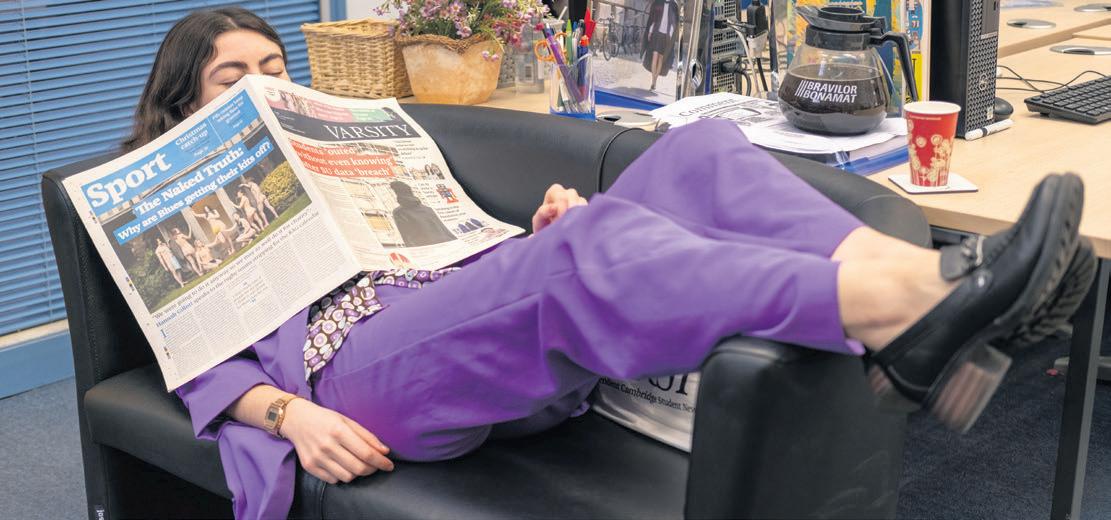
Lucy Carter


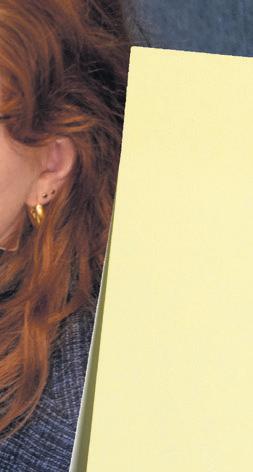
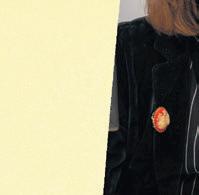
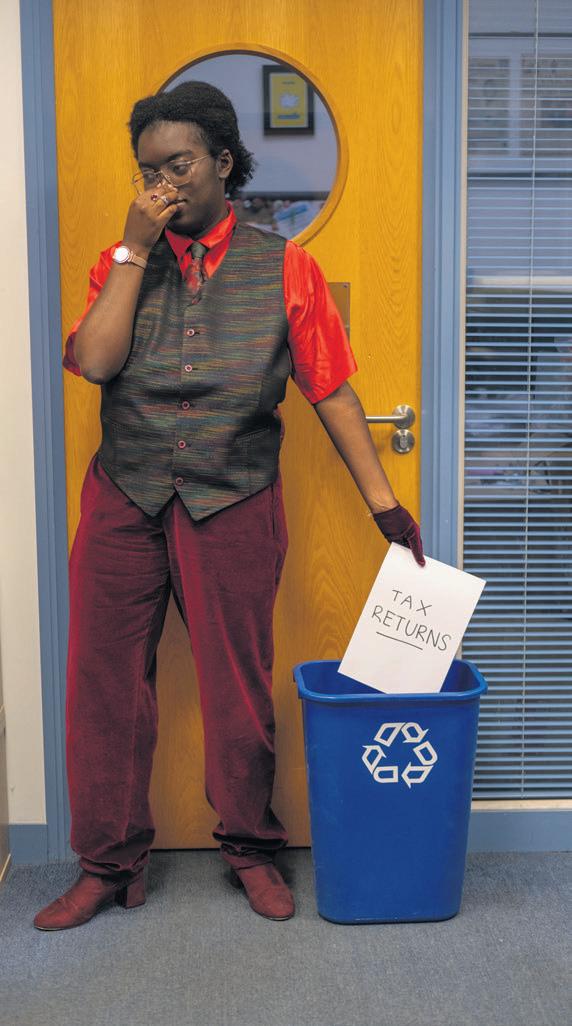
Jessica Ingrey
Hannah Gillott
Fashion
photoshoot available online.
Corporate camp Full
friday 21st april 2023 Vulture 23
Arts


Why we should abolish the poet laureate

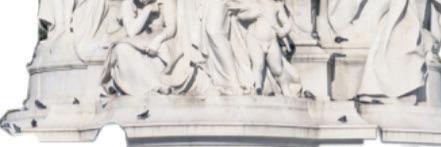

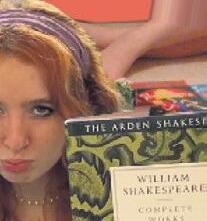
When Andrew Motion stepped down as poet laureate in 2009, Wendy Cope – the favourite to succeed him – made headlines when she called for the post to be abolished. “When people ask me about the next poet laureate I say: ‘I don’t know. I don’t care. It isn’t important.’”
For a poet known for her warmth and humour, it was a cold rebu . But Cope believed that to take the post would be to betray her poetry. e “best way for a poet to serve the art”, she explained, “is to remain free to get on with writing the poems that he or she wants to write”.
Poets have always struggled to make ends meet. In the past, there was the practice of patronage, where patrons would grant poets a comfy salary in return for a bit of praise. However, to use Cope’s words, a poet serves “the art” above anything else. Patronage is at best a compromise – at worst, artistic imprisonment. In 1616, Ben Jonson – the forerunner of poet laureates – cursed the “Muse”
something’.” Motion admitted that the tremors of this royal rumble were “very, very damaging” to his poetry. His own attempt at a birthday ode, written for Prince William’s 21st, is a spinechilling example:
Better stand back
Here’s an age attack,
But the second in line
Is dealing with it ne.

When poets become court performers, their poetry starts to suffer. But the problem with the poet laureateship isn’t just an artistic one.
When Carol Ann Duffy stepped down in 2019, Benjamin Zephaniah was one of the


people. No money. Freedom or death. Zephaniah, who was dubbed the “people’s laureate” by Birmingham Mail, opposed the laureateship not just as an artist but as an activist and anarchist. His writing gives voice to the Windrush, not the Windsors – being paid by the Crown would, to him, be a gross indignity.
To say the laureateship is outdated is putting it lightly. It’s a curse, compelling good poets to write bad poetry, and it’s also a stubborn stain from a bloody colonial history. Hear me out, then, when I say we should abolish it.
in the South Pennines (his home, and mine too). Sitting there in the musty belly of the UL under the weight of several centuries of books, I thought of my hometown and its tiny library – of how every library, no matter the size, can be a private, precious space. In Armitage’s words, “reading from inside their physical structures feels like an act of solidarity – with books, with poetry, and with communities.”

e “doing bit” of the laureate’s job should be communal, like a library. e US poet laureate began in 1937 as the “Consultant in Poetry to the


that “betray’d” him to “a worthless lord”. In the 1700s, laureates were expected to write birthday odes, which would be set to music and performed for the monarch.
Today’s laureates have no o cial obligations, but the shadow of patronage still lingers over them. “Every time there’s been a royal birth or wedding or death in the past 10 years,” wrote Motion, “a terrible low rumble has begun in newsrooms across the country. A rumble that has soon led to people ringing me up to ask whether I’m ‘thinking of doing


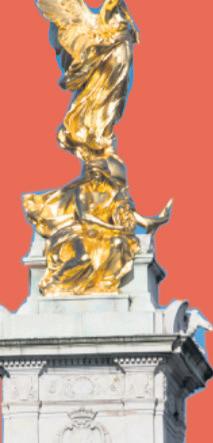

archy to reach my

In Andrew Motion’s words, he had “a writing bit and a doing bit”. To reform the poet laureate, we should shift it towards the latter. Motion did write that “rap” for William’s birthday, and honestly, he’ll just have to live with that. But he also co-founded the Poetry Archive, which consists of 20,000 recordings of poets reading their own work and is a cherished resource for poetry lov-
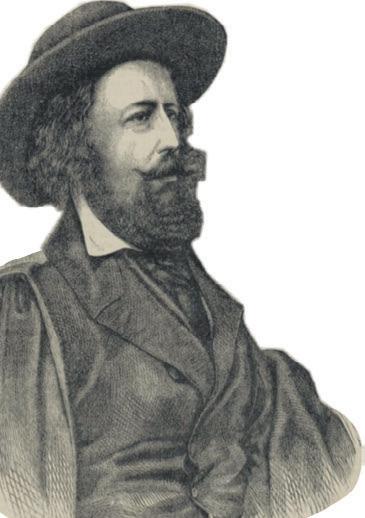
More recently, Simon Armitage has begun a ten-year tour of the UK’s libraries in de ance of those trying to shut them down. I saw him when he came to Cambridge last term, reading poems set
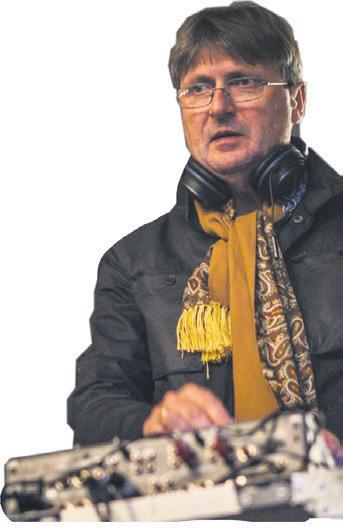
Library of Congress” with a role similar to a reference librarian. ough the role has since expanded, it is still rooted in education, rather than patronage. Billy Collins’ “Poetry 180” project brought a poem a day to classrooms throughout the school year. Rita Dove championed jazz, the African diaspora, and children’s poetry. Of the UK’s 21 poet laureates, 20 have been male, and all have been white. Traditionally, they served life terms, though it has since been shortened to a decade. Meanwhile, US poet laureates serve one-year terms, and past four have all been people of colour. Joy Harjo, who served until 2022, was the rst Native American to hold the post. Her “Living Nations, Living Words” gave 47 Native American poets a nationwide platform.
We do need someone to stand in solidarity with poetry, but we don’t them standing on the monarchy’s shoulders. If poetry needs a face, it should be a fresh one. It should be poetry for the sake of poetry, and for the sake of people.
Emily and Famke go head-to-head on literary icon Jacqueline Wilson





I was meant to be arguing against Jacqueline Wilson in this “head-to-head” instalment. However, unlike that loud guy in your seminar, I refuse to morally debase myself just for the sake of playing devil’s advocate. Slagging o THE Jacqueline Wilson, as a 20-year-old who read literally every single one of her books, feels deeply immoral. Of course she deserves a slot in the prestigious Cambridge Literary Festival – I might’ve been more of a Mr Gum girl growing up, but you can’t deny that Jacqueline Wilson is the high priestess of children’s writing and probably the reason why so many Englings are at this uni. Her stories understood kids – they contain the same amount of melodrama and wild plotlines as any nine-year-olds imaginary Barbie soap opera, whilst also being sophisticated and poignant.
e only new take I have to add to my supposed “opponent” is that I think we need even more representation of children’s authors at big prestigious literary festivals. ere’s been an uptick in children’s authors giving talks at academic institutions, such as How to Train Your Dragon author Cressida Cowell giving a talk at Homerton on 20 April (and if you want a really hot take, the books are superior to the lms here, solely because the lms don’t include any mention of the character “Big-Boobied Bertha”: a crying shame, really). e stories we read as children have the potential to shape us for the rest of our lives – it’s time to give children’s literature the respect it deserves! —Emily
Vs.
How might I defend Jacqueline Wilson’s inclusion in the profoundly prestigious Cambridge Literary Festival? I’d start by noting that children’s literature is one of the most overlooked literary genres in academia – immediately dismissed for its supposedly “childish” themes, and looked down upon. e perspectives and stories it can make accessible should not be undermined. Wilson introduced me to so many important themes and ideas that would a ect my own experience growing up – complicated families, di cult friendships – and, more recently, “mature” themes like queerness. Yes, as a 21-year-old I read Love, Frankie, following a stint of work experience with Penguin. I had absolutely at’s because I know her writing is the blueprint for how to communicate the more challenging experiences young people encounter. Children’s literature that covers what it’s actually like for children growing up in our distracted and complicated twenty- rst century remain surprisingly spare. Wilson might transport these themes to Victorian Britain, but what remains important is her far-sighted focus on how it feels to grow up, importantly, as a girl – an experience which seems to present di culties at every corner. Wilson’s writing shows young people that they are not as alone as they feel. Growing up is scary and di cult, actually, and Wilson’s not afraid to address that. Making herself available in person is another part of its impact – I, for one, will be attending! —
Famke
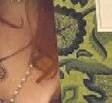


❝
It should be poetry for the sake of poetry ❞
Leo Kang argues that poet laureates should take their cues from librarians, not the King
❝
24 Vulture friday 21st april 2023
To say the laureateship is outdated is putting it lightly ❞
Spring review roundup
Curiosity piqued? Read the full reviews at www.varsity.co.uk/arts
Varsity's Arts writers give you the low-down on spring exhibitions in Cambridge
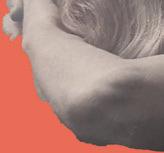

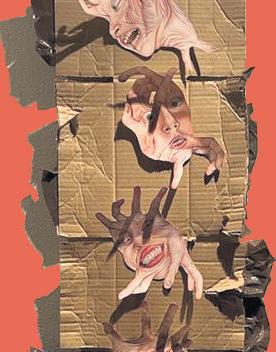
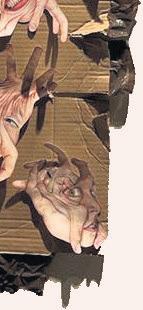

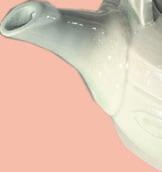
‘Picturing the Invisible’ – Heong Gallery
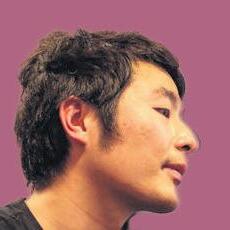
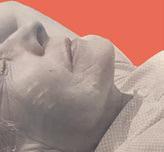





On until 23rd April
Taking as its subject the 2011 Fukushima nuclear disaster, this luminous and demanding exhibition blends photography with the written word to interrogate the act of remembrance.
Queens’ Art Festival 2023
On until 1st May 2023
e annual Queen’s Art Festival always produces an exciting collection of student art united by a fresh and innovative theme, and this year was no di erent. Brought together by the concept of ‘Bricolage’ - a celebration of the artistic beauty within mundane objects - the exhibition balances nostalgic, messy collages alongside digitallycreated political satires, and even invites you to collaborate with the creators once you’ve taken in the talent on display
e Bell Collection of British Studio Pottery – Clare Hall Porters’ Lodge
Permanent exhibition
Composed of roughly 300 pieces of pottery spanning most of the 20th century, this collection ranges from massproduced bowls to Japanese tea sets. In a gentle tide of bamboo handles and grey-blue dyes, the earthy beauty of the everyday is allowed to shine.
Spring Exhibition 2023 –Gallerie V
On until 28th May 2023
Da odils and tulips bloom and bring vibrancy to the city, and colour splashes on the walls of Gallerie V in their new spring exhibition. Displaying a variety of explorations of the theme of “spring” through a range of
mediums and styles, the gallery gives emerging artists the space to bloom and be admired alongside the charge of beginnings and growth present in their work. Each piece reflects the brightness the new season brings to the city, collectively capturing the energy of a hopeful spring ahead.
‘Islanders: e Making of the Mediterranean’ – the Fitzwilliam Museum

On until 4th June
With the sound of rushing water and the washed-up debris of Mediterranean merchant ships, this exhibition demonstrates that culture is not static but a living, breathing organism.
Lucie Rie exhibition – Kettle’s Yard



On until 25th June 2023
Kettle’s Yard produces a delightful exhibition of the life and work of an incredible pottery artist testifying to the seriousness of devoting one’s life to a craft and how the combined artistry and functionality in ceramic objects brings joy into the mundane. With both her processes and patterns inspired by geological processes, Lucy Rie is both artist and vulcanist, and this display of this craftswoman’s work is enlivened by its combined sense of ancient enchantment and distinctive modernity.
Extraordinary Objects
Permanent exhibition
Just a stone's throw from Sainsbury's, this gallery is one of the most unique hidden corners of Cambridge. It is mostly an extension of director Carla Nizzola's personal collection, with a strikng blend of contemporary art and natural history. e gurehead of Nizzola's collection is Tracy – a 66-million-year-old, £125,000 Triceratops skull who watches stoically over Green Street. e gallery open to the public, Wednesday to Sunday, 12–5, and has proved a favourite among tourists and students alike.
The student filmmakers waging war on political correctness
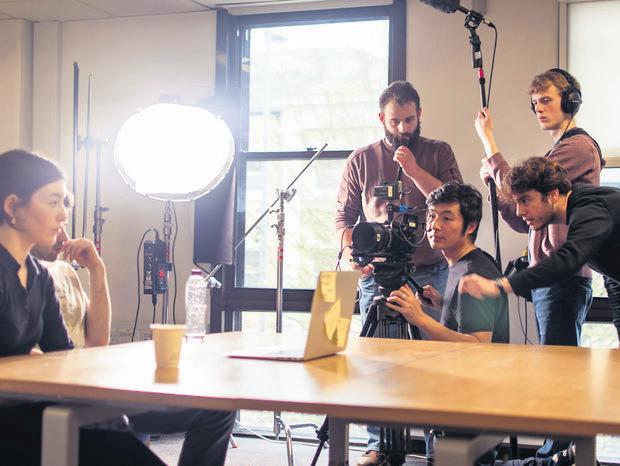
Alice Burton
Antoine Ruello answers our Zoom call from a mansion in France. e Anglia Ruskin graduate and writer/director/ producer of student lm e Quiet Truth of Moneytically Correct is working on set of the French reworking of e Great British Bake O when we get the chance to talk. While in France, Antoine is also juggling the remote post-production edits of his upcoming lm and preparing his application to the prestigious National Film and Television School (NFTS). Busy is perhaps an understatement, but he is relaxed and generous with
lm follows the ‘artistic freedom’ of a young lmmaker being quashed by a big studio’s "politically correct policy" – a story that he felt compelled to tell after watching a Marvel lm which tried to be "too correct".
Our central character encounters a check-list of these politically correct hurdles – a meal isn’t vegan enough, the main cast isn’t diverse enough, an actor doesn’t have the right "look". e lm laments the su ering of art and authenticity in service of the dreaded ‘bottom-line’ – scared of boycotts and alienating audiences.
Antoine ad- mits that when rounding up his crew the lm was initially He wasn’t always ing about the subwhen he first other student
lmmakers, and would send paragraphs explaining-slash-defending himself and the concept as he asked people to sign on. Yeggi, also a producer, had worked with Antoine during their degree and was an easier "yes" – though he also brie y mentions a cinematographer who left the project due to "artistic di erences" and di culties in casting certain roles.
It’s a hot-topic issue for sure, and to go to war with political correctness is a bold choice for his rst production. He acknowledges this, making tentative air-quotes as he dares to call the lm "brave". When I ask him who he thinks the lm is for, he asserts that he is not alone, that he has encountered "lots of people who feel we’re promoting diversity in the wrong way". He’s aware this view isn’t necessarily popular, but says he simply wants "respect if not agreement".
His concern for independent cinema is, at least, valid. Even pre-pandemic, only around half of independent lms received a theatrical release, and less of those report box o ce earnings.
And those are the gures for feature lms. For shorts like Antoine’s, especially those that are student-led, funding is nearimpossible to get hold of. After one of his friends was able to raise £5,000 for a lm through crowd-funding, Antoine went down a similar route, and spent two weeks creating a website to ask for donations. He’s honest – he didn’t have much luck and ended up having to fund the
lm himself.
It’s also a strong con rmation of the lm’s central thesis – the anti-political correctness lm trying to preserve art over money struggles to nd funding. Very meta.
Regardless, shooting went ahead and Moneytically Correct is due to be submitted to various lm festivals. Antoine is optimistic and excited to have the end in sight. Seeing his lm come to life across their many locations – including the Arts Picturehouse – is a rare experience for any student lmmaker.

He re ects on the di culty of breaking into the lm industry and building up a portfolio of work as a student. Antoine was happy that he and the rest of the crew simply "had the opportunity to do something" and is hopeful that avenues for students to make lms – irrespective of their subject matter – will continue to grow.
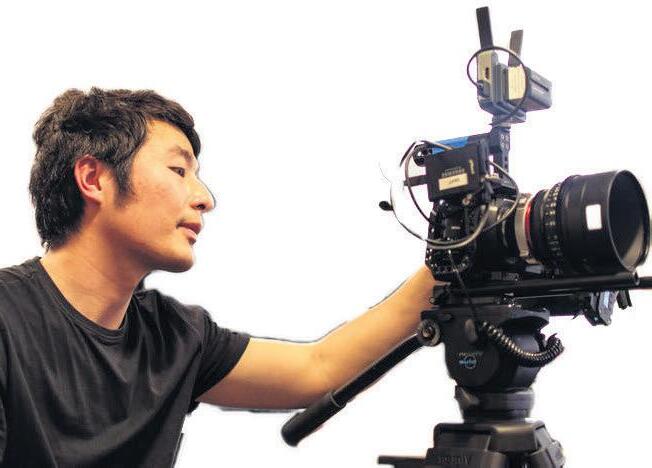
Arts
▲EMILY LAWSONTODD
The synopsis of Moneytically Correct (a play on "politically correct", which Antoine admits he is particularly proud of) is certainly provocative. e
a tough sell. forthcomject matter he approached
▲ISAAC LIANG
Vulture 25 friday 21st april 2023
▼ISAAC LIANG
'Cocaine Bear' is embarrassed of itself





It would be easy to write a review about Cocaine Bear that comes to little more than “wow, this lm is wacky!” at’s certainly what the marketing team wanted people to think, and the fact that the whole lm rests on a con ict between a bear and a mob-boss does lend it to that sort of absurd reception. e problem is that, for how ridiculous the premise is, Cocaine Bear is actually quite boring.
It is loosely based on the true story of a bear who ate a lot of cocaine. is Pablo Esco-bear (sorry, couldn’t resist) died before it could get into any bear-cocaine hijinks, but Elizabeth Banks’ reimagining of the story asks the question I guess we were all thinking: what if it didn’t die? And what if Ray Lotta was there?


e lm has three main plots with a rag-tag ensemble cast. We follow a mother who searches for her daughter who has disappeared into the woods, seemingly kidnapped by the bear. Next up, a criminal gang, searching for their cocaine who are forced to challenge the (now drug-addicted) bear to get

their coke back. e last story unleashes Ranger
Liz, a woman driven by two things: destroying a group of teenagers who rob her store and shooting the cocaine bear.

What a fun and ridiculous plot.
I’m sure you’re asking ‘how the hell could this be boring?’ Well, there’s a big problem with all of these plots...



everyone’s embarrassed of it being ridiculous. Banks skirts around these fun premises with ham- sted conversations about friendship, loyalty and family. ey’re afraid of it just being a silly mid-budget B-movie.
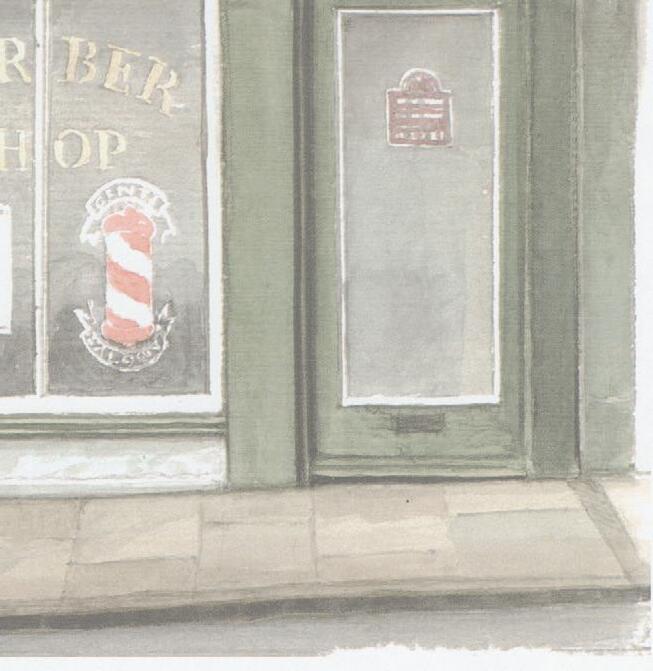
because the cast and crew revel in the anarchy and ridiculousness of the project.

e only part of the lm that actually ts the bill is Ranger Liz. Margo Martindale is a comedic powerhouse and has never been scared to put her all into a B-movie. As Ranger Liz, she is loud, aggressive, and hilarious, performing without the embarrassed a ect her co-stars adopt. She is a joy to watch on screen and the only standout character in the lm. Martindale feels like the only part of the lm is un-embarrased by its content, she’s
movie are especially disappointing when we are given brief glimpses of a hilarious exploitation movie. e best scene in the lm is arguably a chase between an open ambulance and the bear. It’s amazingly well executed but it is sandwiched between scenes of a police o cer walking around and two other characters who are… you guessed it… also walking around.
feels that
Cocaine Bear



For a lm called to work, you have to know and love what you’re making. It’s never going to be Citizen Kane and it’s never going to reframe the way its audience thinks about their mothers. e cult-




classic B-movies people love—Female Trouble, Killer Klowns from Outer Space, and ninety percent of Nick Cage’s work—are beloved
the only one who unequivocally Scenes without Ranger Liz are just at. CGI bears are expensive, so it doesn’t show
up all that much and leaves the audience with, well, nothing! It becomes clear that Banks does not know what to do with her characters so they just aimlessly wander around.
e big portions of dead space in the

























is ‘what could have been’ factor lets down Cocaine Bear. ere are so many moments where the lm almost strikes gold and gestures to an incredible blood-and-guts B-movie, but the next scene is just two guys playing twenty questions. If you’re making a lm called Cocaine Bear, you cannot be shy about it. You can’t, as Banks tries to do, turn it into a lm about parenthood. ere are homages to exploitation B-movies littered throughout the lm but it never really embraces its roots itself, never fully commits to the insanity that the genre requires. Personally, when I pay for a ticket to see a lm called Cocaine Bear I don’t want to be lectured on family values, I want to see a damn bear do some cocaine!

Film & TV
When Heidi Atkins pays for a ticket to see a film called Cocaine Bear she doesn't want to be lectured on family values, she wants to see a damn bear do some cocaine!
▲WIKIMEDIA/ US DOD he Varsity Tote Bag Bag All items subject to availability. Above prices exclude postage & packaging. All major credit and debit cards accepted Order yours today! www.varsity.co.uk/shop www.varsity.co.uk/shop www.varsity.co.uk/shop www.varsity.co.uk/shop Just £3.99 plus postage. Just £3.99 plus postage. Just £3.99 Just £3.99 26 Vulture friday 21st april 2023
Getting a peep out of Soft Crunchy Landing
Georgie Atkinson sits down with Cambridge’s most booked student band to see how they keep up their stamina
Music


Varsity's Study Playlist











Deep sighing, the slightly tacky table where someone has spilled their “natural” energy drink and your nger hovering over which track to press play on. All symptoms that potentially some serious studying is about to commence. Varsity’s music team o er some humble suggestions to hopefully see you through your study session.
Tucked away in a corner outside the staple Cambridge haunt of e Eagle, on a drizzly evening in March, I sat down with some of the members of Soft Crunchy Landing (SCL). ere was a particular irony in Felix Asare one of the band’s organisers, (also central to the Cambridge music scene and member of Quasar) choosing the crunchy snack of sweet chilli avoured crisps whilst we were chatting. We started by discussing how SCL has established its resolute permanence on the Cambridge gigging circuit and how they provide the “crunchiest” of basslines for their audience.
If you haven’t seen the Peep Show clip the band takes its name from — I would urge you to find it.

Happily the band also had an o shoot band — Big Suze, another delightful reference to Peep Show.





Started in the heady days of 2017, the band naturally has been through di erent iterations and di erent band members over the years. However, Jamie Scott, the band’s trombonist has been there from the start.





Self described as a band, ‘who

































found a calling in funk’, their seemingly relaxed demeanour is e ervescent, which may be the result of a playing groove and funk covers. I broached the topic of the longevity of the band, and how it has managed to survive a pandemic and last for ve years. Seemingly evolving from Funk to Pop covers and taking on talented indi-
Sax and George Withers on Tenor Sax. Highlights for SCL have included performing before the headliner at John’s May Ball last year as well as playing the Varsity Ski Trip However, it does seem to be apparent that there is rarely an event that the band hasn’t played. SCL are also going continental by playing a wedding in Germany this summer, and it might be interesting to see whether their German cover of Stevie Wonder makes it back to the U.K for Michaelmas.

Naturally the topic of perhaps the most anticipated week in the Cambridge calendar, May Week, arose. ere was an unspoken and shared feeling around the table of the Herculean feat they were going to take on in June. As the most booked student band in Cambridge, it is clear that the band members have stamina beyond the lung capacity needed for playing the trombone.
is is not a study soundtrack for the faint of heart, but when you need to introduce a healthy element of fear into your revision timetable, Pornography is the album for you.


Even when not studying, I prefer to let this music wash over me. Its steady rhythms, gradual evolution and soft solo piano create a calming atmosphere that is perfect for studying. e only danger is its heartrending emotions. is is not the ideal collection if you’re already feeling down after a long day of revision.
Jungle’s self titled debut album, (ironically) will help you cut through the thicket of copious amounts of reading. Jungle’s unique blend of funk and nu-disco has happily been gracing the earth and my headphones for almost ten years. For me, the album personi es the feeling of sitting in the sun at a festival sipping on an overpriced gin and tonic — arguably where I am most at home.
viduals is at the heart of the band’s regeneration. e band is bursting at the seams with such talent, as seemingly most bands in Cambridge are. One of the newest members and vocalists of the band, Maya Moh (of Daniel Daley Sextet fame), recently supported Stormzy at e BRITS on the violin. Whilst the other vocalist Alice Markham is a notable singer and songwriter. Bassist Luke Smith was prompted by Felix to sheepishly note that having pottered across from the "other" place after his undergraduate degree, he has found the Cambridge music scene to be, "more creative and more chaotic", which arguably de nes the university to its very core. e full line up of the band also includes Mallory Beechey on Drums, Gabriel Margolis on Keys, Finlay Waugh on Trumpet, Niklas Freund on Alto
A wry smile was shared between Felix and Jamie when discussing last year’s May Week, naturally due to playing all days and nights of the week, it is unsurprising that by the end of the week tensions may have been a little heightened. is year SCL’s May week appears to be taking on similar sentiment.
playing all
Permanence can lead a band to become a little tired and weathered, however SCL are outliers, their establishment in the Cambridge scene allows them to perform with ease and provide a good time. If you are at any May Ball, SCL are guaranteed to supply you with some jazzed and sexed up classics to keep you motivated to make it to any survivor’s photo.
 Emmy Warr – Pornography by The Cure
Alex Brian – Metamorphosis by Phillip Glass
Georgie Atkinson – Jungle by Jungle
Emmy Warr – Pornography by The Cure
Alex Brian – Metamorphosis by Phillip Glass
Georgie Atkinson – Jungle by Jungle
▲WIKIMEDIA/MR. ROSSI
❝
The band members have stamina beyond the lung capacity needed for playing the trombone ❞
▲ TOBIA NAVA
▲ TOBIA NAVA
↘ Vulture 27 friday 21st april 2023
Some more melodies to drown your sorrows in
Mx Pembroke
36



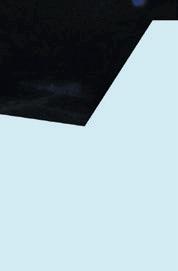

The year is 1987. Rick Astley is blasting over the record player, atcher dwells in Number 10, and in Pembroke College, students are suiting up in leotards and leopard print to compete in the colleges rst ever drag show. Sian Grifn, a second year Medicine student at the time, bundled her lm camera into Pembroke cellars to capture some iconic shots from the evening. en decades later, her son Oscar, now studying Classics at the same college, would stumble across the pictures and resurrect the tradition. Speaking to both mother and son, Varsity investigates 36 years of glitter and glam at Pembroke, and how drag has evolved from a light-hearted party to a politically-conscious expression of community and identity.

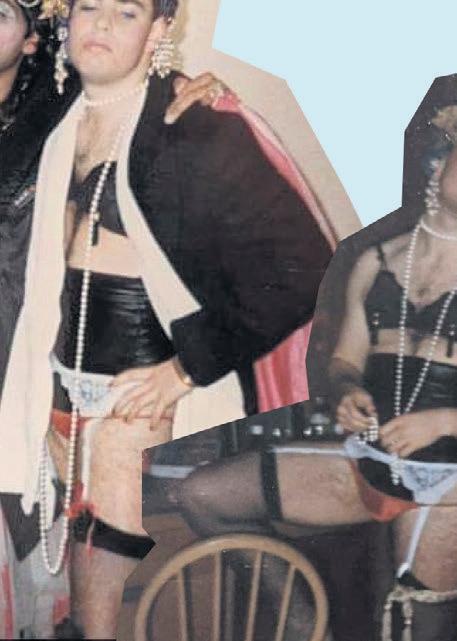
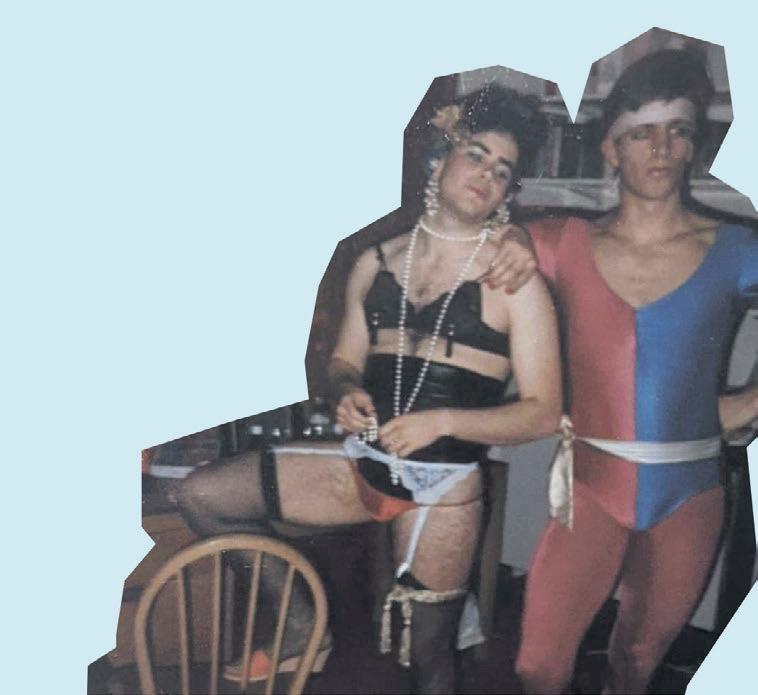
Setting the scene, Sian Gri n explains that she matriculated in 1985 – she was part of only the second year of women admitted to Pembroke since its founding in 1347, estimating that men outnumbered women in her year six to one. In the spring of 1987, she recalls that RAG week was the college’s dubbed ‘Miss Pembroke’, with students
penders and highest heels for a good cause.
Speaking to Sian, what is most apparent is the playful incongruity of the show. She explains that the students didn’t even consider it would cause o ence or eyebrow-raising among the fellows, but rather simply “thought that if people thought it was funny they would come along.” e evening was presented by a compere, contestants in the parade introduced themselves and, naturally, were subjected to much hearty “audience participation”.
dancing!

were “de nitely surprising”, but “nice to see students putting their all into it and just having fun!”
As the current Pembroke LGBT o cer, Oscar was keen to take advantage of this quirk of history and resurrect the drag competition for a new generation of Valencians, eager to don their false lashes and alarmingly towering stilettos. e event went ahead at the end of Lent term, with the organisers keen to emphasise the “amateur angle”: “there were no expectations participants had to be queer or any good at it, it was just a fun night.”
name change, from Miss Pembroke in 1987 to Mx Pembroke in 2023.
However, the increased visibility and celebration of drag culture has been combined with renewed political attacks and legal marginalisation of LGBT groups. Re ecting on these volatile changes, Oscar observes that increased visibility of drag has unfortunately “become tied up in trans “debates”, and circled back round to arguments about LGBT people not being around children, leading to situations like drag bans in the US.” While there has undoubtedly been clear progress in the equality and protection of LGBT groups in the past decades, it is equally clear that drag culture remains a critical ashpoint in contemporary social and political life.
marked with holding a drag competition in the cellars donning their iest sus-








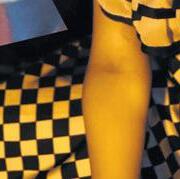
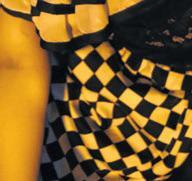




One thing that was unusual, she re ects, is that the “range of people who took part was quite unexpected, from someone you might have thought was quiet and relatively shy to a couple of more gregarious boaties”, concluding that the night had a “positive impact overall” in bringing the student body together. Still, Sian generally downplayed the political signi cance of the night’s festivities, pointing out that there wasn’t a wider drag community or culture at the time: “For the participants in Miss Pembroke it was a one night only appearance!”
Indeed, this DIY, community-driven ethos was at the heart of both events, with Oscar underscoring that while he has “great respect for performers who put their all into really impressive outts and performances”, ultimately “encouraging expression and transgression of gender norms” needn’t be professionalised or competitive. With tattered wigs passed between performers and the dazzling cacophony of a single set of rainbow lights blasting the walls of Pembroke cellars yet again, it’s clear Pembroke has stayed true to its noisy, novice roots.
skimp-


































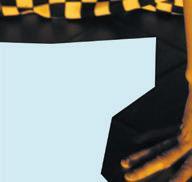

















































Like many of the best things in life, the renewed interest in the 1987 event was a happy accident. Oscar and his mum were going through old photo albums when they happened across the pictures she’d taken, which according to Oscar
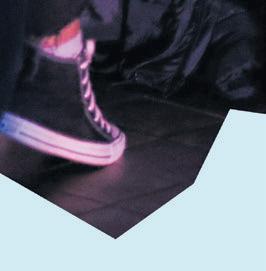



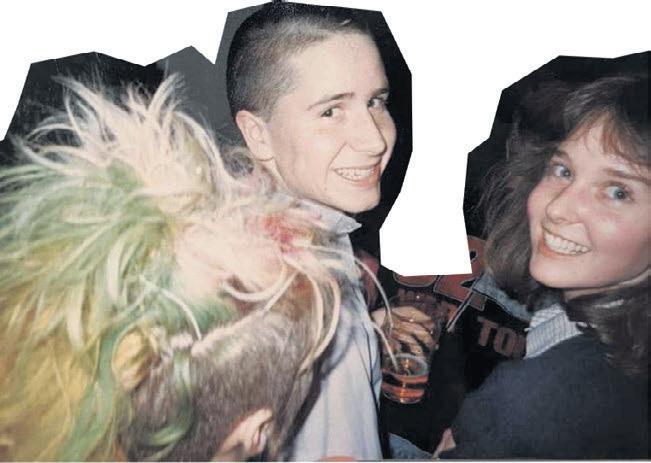
Comparing how drag has evolved as both an art form and a social spectacle, Oscar remarks that in 1987 Miss Pembroke “de nitely wasn’t distinctly LGBT or queer – it was just a laugh to dress up for charity.” Comparatively, he explains that the rising popularity of drag in contemporary media, exempli ed by shows such as RuPaul’s Drag Race, has meant “the focus has shifted back to its roots in Black queer ballroom, and there is a greater focus on drag as queer expression.” is keen awareness of the centrality of LGBT identities and history to drag performances is re ected in the subtle

Even after 36 years, drag still retains the power to shock and scandalise, but equally to bring likeminded souls together in celebration. For Oscar drag is an “art form and method of creative expression”; an act of gender transgression simultaneously intimate and deeply political. Whether it’s socially-minded performance art or just wildly tuneless karaoke, one thing’s for sure: the drag artists of Pembroke know how to put on a great show.
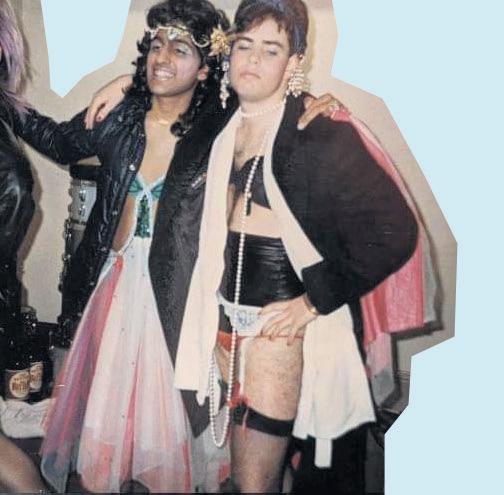
eatre
Alex Parnham-Cope investigates the mother-son Valencians who’ve brought pride and partying to one of Cambridge’s oldest colleges
❝
Even after 36 years, drag still retains the power to shock and scandalise
❞
Photos by Alex Parnham-Cope and Sian Gri n
28 Vulture friday 21st april 2023
years of drag and
36 of
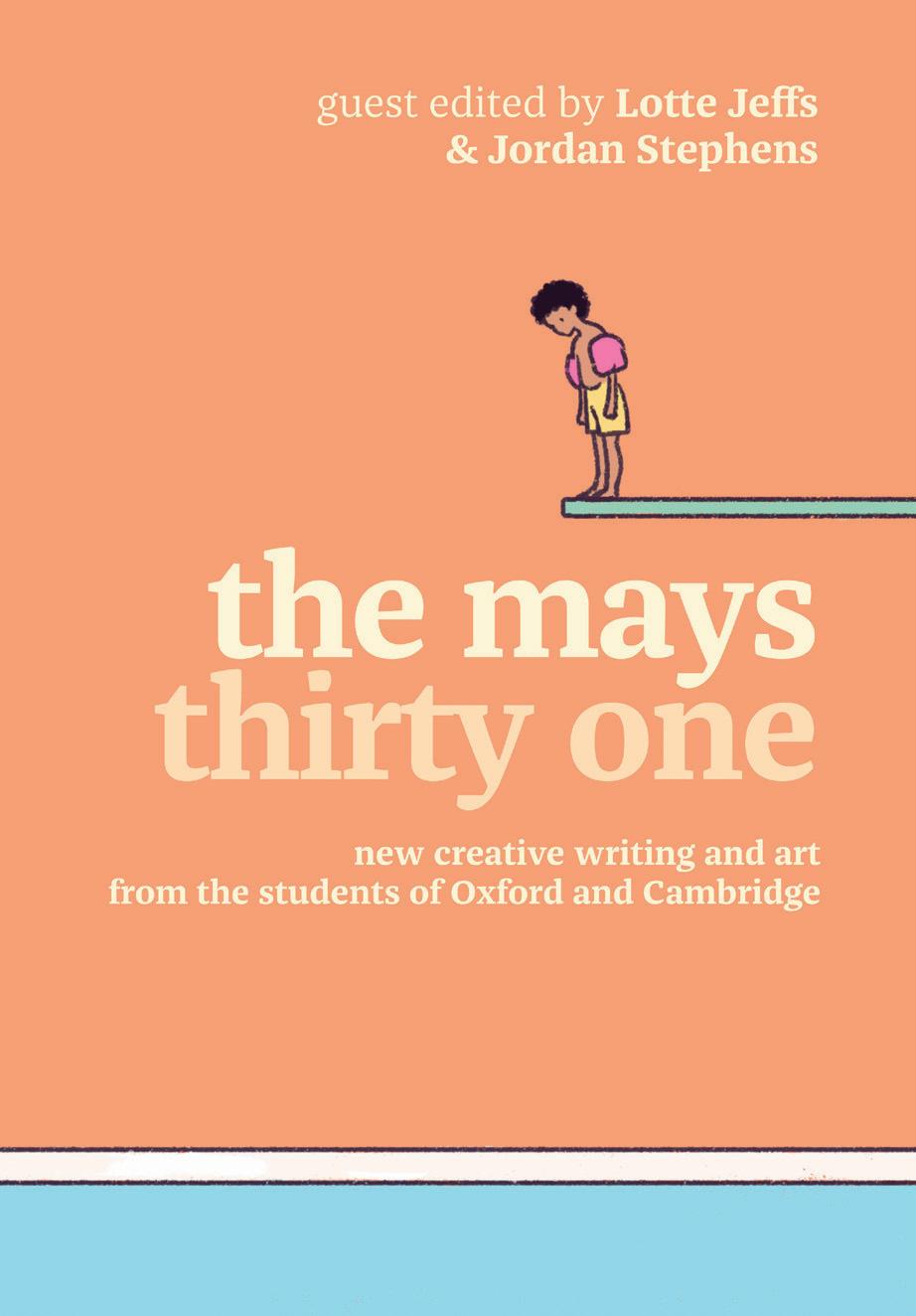
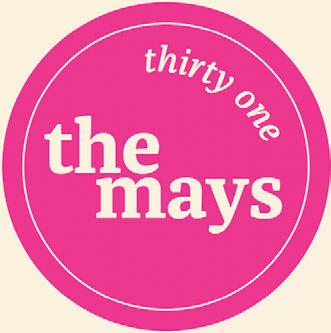






Availableto pre-ordernow fromwww.varsity.co.uk/shop GUESTEDITEDBY LOTTEJEFFS & JORDANSTEPHENS THEMAYS31 Thebest newwritingandart fromthe studentsofCambridgeUniversity&Oxford University Formoreinformationvisitwww.themaysanthology.co.uk
e Cambridge theatre scene: is anything about this normal?
Jude Crawley interviews ve drama society presidents from unis across the country to nd out
Cambridge students are lucky to have such a theatrically endowed university. eatre is everywhere in this city, from the gongs and the gowns to the bug-shaped clock. en, there’s the theatre of the stage. As a student here, the funding, scale, and opportunities for the performing arts seem unique. But just how unusual are they really? Is this normal for a university, or is it another privilege of a Cambridge education? I interviewed drama society presidents from universities across the UK: from Bristol and UCL, up to York and Edinburgh, and even our rival Oxford, to nd out.
Perhaps what makes Cambridge theatre seem so remarkable is the ADC, England’s oldest university playhouse. Originally ‘ e Hoop Coaching Inn’, the dramaturgs of Cambridge have been performing, tucked away, on Park Street since 1855. Today, the ADC provides permanent access to a theatre space that is professionally managed with no hire fee. How special! Well, not quite. It turns out this is an experience unique… to Oxbridge. Oxford has two professionally managed theatres: Oxford Playhouse and e Birth and Taylor Studio. is privilege does not extend beyond the small sphere of Oxbridge. Students at UCL and Bristol hire out venues for shows, and while some of
these spaces put the ADC to shame –UCL have two productions a year in the 550-seat Bloomsburg eatre on the West End – costs range from £1,000 to £10,000 depending on the venue. ese eye watering prices limit the number of large-scale productions that the UCL and Bristol drama societies can stage to around eight a year.
e presidents’ shared frustrations about cost and aky venues limiting the number of productions. It made me reect on the privilege behind the age-old complaint: “ ere’s just so much eatre in Cambridge! It’s impossible to pick.”
Comparatively, York and Edinburgh are able to stage more than Bristol and UCL courtesy of venue ownership. e University of York stages 32 productions per year in a single 50-seat student-run venue, lovingly named e Drama Barn. Similarly, Edinburgh stages 40 in e Bedlam eatre, a 90-seat venue also ran entirely by students. Having been involved in the administrative hullabaloo that is the management of a studentrun theatre, I can con rm that those are some seriously impressive numbers.

rough my research, the theme of Oxbridge privilege repeatedly stood out. According to the ADC 2021-2022 report, there were 186 productions in the year, most of which were organised and performed by students. Guess who else is subjected to an overwhelming amount

of amdram? In Oxford, there are around 150 productions staged a year.
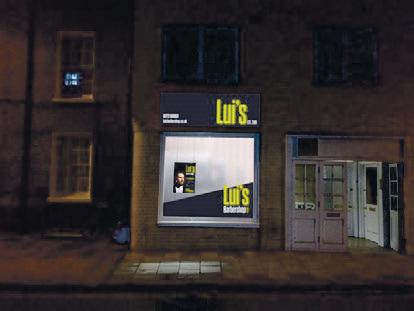
e performing arts models at the two universities do di er – in Oxford, budding thesps have to set up a production company, a functional bank account and social media branding, and their pitches to venues are far more comprehensive. Regardless, with the continual defunding of the arts, Oxbridge seems to be hoovering up an ever bigger share of amateur university drama.
My other major takeaway from these early-morning Zoom conversations, however, were the idiosyncrasies that each drama society had developed. Much of the drama scene at UCL, for instance, is devoted to new writing evenings and festivals, perhaps unsurprising given the strength of its English courses. ere is a queer writing festival, a PhD-only writing festival, and an “anybody and everybody” writing festival. While Cambridge does stage many new writing plays, and also bene ts from the Howard Downing New Writing Festival, new writing doesn’t seem to receive the same focus as it does in London.
Bristol and Edinburgh are the ancient Athens of drama scenes: rmly rooted in democratic values. Months before a slot, individuals pitch shows to the entire drama society. en, after a forum, discussion members vote on the show to go forward. Quirkier still, York has a
casting system where, after the 16 shows for that term are given out and everyone has auditioned for the parts they want, all the directors sit in a room together and discuss who gets to cast who. is is to avoid any single actor being overstretched or double booked in a term. With the burnout state of some of the over-committed Cambridge thesps, this might be an idea to pinch (*cough cough* incoming CUADC committee).
From my conversations, I seem to
have proven my hypothesis: we are ridiculously spoiled in Cambridge. Shocker, they are also ridiculously spoiled in ‘the other place’. No other universities have anywhere near the same quantity of shows or funding behind them. So, next time you hear someone moaning about the evil overlords of ADC management in the bar, remind them: we are the lucky ones, really.
30 Friday 21st April 2023 eatre
‘I haven't ridden a bike for six years’: In conversation with Sir Bradley Wiggins
 James Hardy Sports Writer
James Hardy Sports Writer
It’s very easy to put people on pedestals. Going into this interview, I was expecting the Bradley Wiggins of 2012 with a thin frame and sideburns. I was greeted by blue tattoos, a stocky build (from rowing) and an unvarnished but warm demeanour. e ice broke quickly. He has a bracing honesty and shared deeply personal insights over the course of our conversation. It also clearly came across that he is on a journey of self-re ection and improvement, and has been working to overcome personal issues stemming from childhood trauma and the pressures of high-octane cycling.
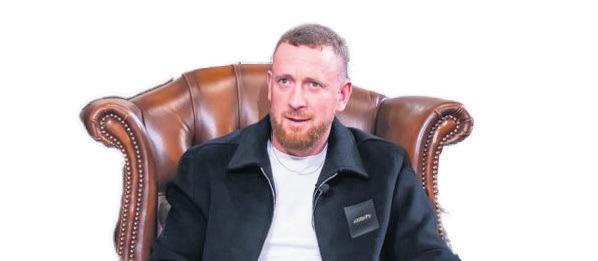
else.”It was clear that Wiggins does not wear the mantle of being a celebrity comfortably. “Life was never the same again after the 1st of August 2012,” he explained. “It was horrible. I couldn’t prepare for what happened and I’ve lived with that ever since.” He spelled out how he struggled with being compared to his idols such as Miguel Induráin. Growing up: “I never considered that I would ever be able to do something like that. Part of me will never get my head round
across that because I’m thrust back to being a teenager and pictures of those guys on my walls.” I also sensed frustration
“My dad was a professional cyclist,” Wiggins explained as we touched on the in uences that propelled his cycling career. After his parents divorced, the young Bradley had no contact with father Gary for 14 years. “My mum brought me up talking about him. She really glori ed his cycling traits and how good he was –so I grew up idolising him.” Aged 12, he entered his rst race and from then on “I never thought I would do anything
Fitz at the double? Varsity predicts Football Cuppers
Will Jesus retain the women's crown?
Can Pembroke stop Fitzwilliam's Blues?

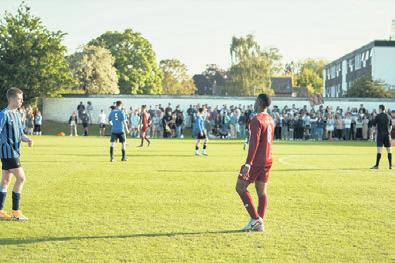 Abbie Hastie Sports Editor
Abbie Hastie Sports Editor
is year’s Football Cuppers competitions nish with their nals at the start of this term. For the uninitiated or unsporty, Cuppers can seem confusing. Is Cuppers a stupid Cambridge name for a cup? Is it just a university version of sports day? Is it important in any way, shape or form? e answer to all these questions is yes. Cuppers is in many ways trivial (who really cares if Tit Hall beat Churchill?) but its also great fun, great exercise and a great spectator sport. is year’s men’s Cuppers nal takes place on Wednesday (26/04) at Pembroke pitches between Pembroke and Fitzwilliam. Fitz are the favourites. ey have won the previous six Cuppers competitions, and currently sit at the top of the Premier League table. Pembroke lie just outside the relegation zone of the Premier League on six points having beaten only Jesus and the pointless Robinson (who lie just above the whipping boys of Selwyn). However, they have put together a stellar cup run, beating Sidney, Emma, Trinity and nally Dar-
win in the semi nal. ey also have men’s Blues Captain Matt Hawthorn at the heart of the defence, who will be looking to prevent his Blues teammates Lumi Kanwei, Sonny McPherson and Asa Campbell from running riot. ey will have home advantage, but given Fitz’s quality and strength in depth, it will be a hard task for them to interrupt Fitz’s winning run. Varsity Prediction:
Pembroke 1- 3 Fitzwilliam
e women’s Cuppers nal will also take place at the start of term, between Jesus and Fitz/Corpus. Jesus are also hoping to retain their Cuppers crown from last year, and after beating the self-proclaimed “best team in the world” Peterhouse/Clare/Clare Hall in the semi nal, the nal should be a stroll in the park. Fitz/Corpus present a slightly di erent to challenge to PCCH though. With fewer fans, but arguably better shape and structure, and a swathe of CUAFC girls, Fitz/Corpus are Jesus’ best opposition for a while. Its shaping up to be quite a clash in mid eld, as Fitz/Corpus’ skilful pair of Nina Valenbreder and Nia Hall face o against the dynamic duo of Anna Herr and Beattie Green for Jesus. e key for Jesus may be whether they can convince Isobel Boothroyd to play for them. Boothroyd ran the show in last year’s Cuppers nal, but has su ered foot problems this season and may not want to risk her tness before the Blues play their Varsity match against Oxford.
Varsity Prediction: Jesus 2- 1 Fitz/ Corpus
at being tied to his former career. “I nished cycling at 36, you get stuck in that de nition of who you are for the rest of your life. I haven’t ridden a bike for six years. Funny how you get tagged with that forever.” Since retirement, Wiggins notoriously said that he hated cycling, so I pushed him to clarify his comments. “It’s portrayed as this big happy family but it’s not. It’s just a functioning machine. Everyone wants to win.” is has been intensi ed by huge injec-
tions of nance into the sport, meaning riders are competing for money as well as glory. “Once there’s a lot of money at stake, it breeds bad blood.” Wig-
gins also expressed regret at the character traits that professional cycling honed. “You have to be sel sh. Everyone else second. Your life is the centre of the world in terms of everyone else around you. Everyone should be lucky to be around you. You’re so lucky to be married to Sir Bradley Wiggins. But to be honest you could be a bit of c*nt, and you are a c*nt.” Divorce and lockdown prompted a lot of soul-searching and Bradley was candid that he’s addressing issues in his personal life. “I realised what a dreadful person I was when I e challenging childhood and personal life that Bradley faced motivate him to be a strong role model for his children. “Cycling’s not everything. I think it’s more important to be a stable role model.” Raising daughter Isabella is the “priority of [his] life at the moment” and he was also immensely proud when talking about son Ben, who won gold at the European Track Championships aged 17. However, Wiggins stressed that besides cycling accolades, “[Ben] is already successful enough as a person for me.”
Wrapping up the interview, we discussed what Bradley has been doing recently and what his plans are for the
future. Having been in the cycling world for 25 years, he evidently wants to do something new. For the past six months he has been working with the NSPCC on their Speak Up campaign to tackle child abuse. “I haven’t got any plans at the moment, I’m in limbo a little bit. Right
now I’m on the look-out [for opportunities] and if nothing comes along then I’ll get a proper job. I’d bequite happy stacking shelves at Tesco’s or Safeway’s.” What I enjoyed the most about interviewing Bradley was his ability to touch on sensitive issues without constraining his light-hearted and self-deprecating sense of humour.
cox
Rowbridge heartthrob Jasper Parish about the Boat Race, Bumps and that decision to change line


Abbie Hastie chats with
“I was a pretty lazy kid, still am”, are not the words you expect to come out the mouth of any Blues athlete, never mind a rower. Jasper Parish is not your average Blue though. Few coxes would have made the decision to change line for cleaner water by Craven Cottage, but fewer still have two Boat Race victories (one with the women and one with the men) at the age of 19. Alongside his brother in the Blue Boat, Parish is the son of an Olympic standard rower - rowing is in his blood. Too skinny to make playing Rugby a pleasurable experience, he started rowing “at school at St Paul’s in London, which is on the Boat Race Course, at about 13”. He started coxing and says it simply “worked out very well for me, I mean I’ve loved it ever since”. Parish’s love of rowing is matched by his love for his teammates. He says that Boat Race preparations mean that “you sort of connect with people on a di erent level” which means you “have friendships which last a long time”. One of these friendships is with his brother Ollie, who Jasper says “it’s been really fun” to row with. However, he argues that media focus on the brothers has overhyped the situation: “When we’re in the boat, we’re just two guys in the boat” although he concedes that their relationship means that there’s “maybe a bit of extra communication ability, maybe it’s a bit quicker”. e
bond between the crew is strengthened by the fact that they live together in the week before the race. Parish says that in the week before the race, “everyone’s quite excited”, but that “raceday is a crazy day”.
“Last year I was very nervous,” he says, “this year was a little bit di erent. I felt a lot more relaxed. Maybe it was having done it before but I felt a little bit better about it and that little bit of extra calmness helps quite a lot especially in the coxing seat because I can sort of o oad that to the crew a little bit”. However, this calm was interrupted by a rudder issue just before the race. e discovery of the issue was “not good at all” as problems with the boat at that stage are a crew’s worse nightmare. ankfully, the problem was “just caused by some of the BBC people [who] had put a bunch of crap in the stern of the boat” and there was nothing seriously wrong.
picking up, that’s when it rst maybe came into my head that we should move over.”
“I start to make the move maybe just under two minutes in and then in the next 30 seconds basically I’m just looking over every other stroke and we’re like taking a seat, a seat, a seat and then when we came out the bend I’m a bit more con dent”. He was right to be, Cambridge took a length on Oxford and never gave it up.
I was interested in the psychology of coxing and what calls a cox uses to motivate and intimidate their crew in equal measure. is is dependent “not only on the kind of race but also where you are in the race” and is “always a balance, always di cult”.
focus situation:
e race started without a hitch and it was very even in the opening stages, until the Cambridge boat dramatically changed line in search of clear water, gaining a crucial length on Oxford in the process. I ask Parish if he knew that the move was critical when he made it: “When we rst got to the end of the line of boats, which is about a minute and a half in, and we saw the waves really
Coxes were important in both Blue Boat races this year. Adulation of his cox box recording is widespread on Rowbridge (the rowers' Camfess). For our readers not acquainted with this page “JP you can do whatever you want with me” is an indicative comment.
So does he think he’s made coxing cool again? “I hope so because it is really cool ... Coxing is a role which people often underestimate because you can make a big di erence and often do. e best crews have great coxes and people often forget that”. As we come to the end of our interview, I ask him what his plans for the rest of this season are. Undecided on whether to race at Henley, he says “I might do Bumps” which will surely strike fear into all of Clare's rivals come June.

Friday 21st April 2023 31 Sport
Never underestimate a rower's
▲
Photo by Levente Kores
▲ Photos by Nordin Catic
▲
Photo by ALLMARKONE
❝
Cycling is portrayed as this big happy family but it's not. It's just a functioning machine. Everyone wants to win.
Sport



Unstoppable: Cambridge claim clean sweep in Boat Race
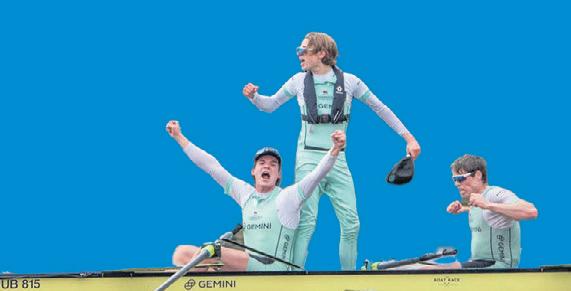 Charlotte Bardsley Sports Writer
Charlotte Bardsley Sports Writer
Cambridge women continue to conquer




Cambridge women sealed their sixth consecutive victory over Oxford, with a dominant display on the Tideway. Cambridge won the toss and elected to row on the Surrey side. At ten past three, the crew emerged, greeted by loud cheers as they marched out of the ames Rowing Club boathouse, led by club president Caoimhe Dempsey, the only returning Blue. Oxford made an aggressive start, taking an early lead. However, this did not faze the Cambridge crew, and it was not long before they eased back level with the Dark Blues. James Trotman, coxing the Light Blues, was outwardly clear and calm with his instructions though his heart rate measured at 145 bpm, revealing that the favourites were feeling the heat. Just before Hammersmith Bridge things started to get in-
teresting. Bold coxing by Trotman led to several umpire warnings, and a collision would have meant disquali cation. From that moment on Cambridge assumed control of the race, settled into a strong rhythm, and pulled away.. As they passed St. Paul’s School a large gap had developed between the Cambridge crew and Oxford lagging further behind. In the lead, Cambridge women were cruising at Barnes Bridge. However, a camera close up captured the pain writ large across Freya Keto’s face as she powered through, demonstrating how Cambridge were still digging in deep to maintain the gap.
Cambridge crossed the nish line with a convincing four and a quarter length margin. ere was a slight moment of concern as Oxford’s cox Tara Slade protested over encroachment, but this was dismissed by the umpire as no contact was made. It was a combination of delight, relief, and exhaustion for the Cambridge women as they cheered, congratulated each other, and soaked up their victory. Relishing the moment, Trotman showcased impressive balance as he stood up with arms outstretched
in jubilation. Only a slight wobble when congratulating stroke Dempsey nearly saw him fall overboard.
Cambridge men reclaim the Boat Race crown
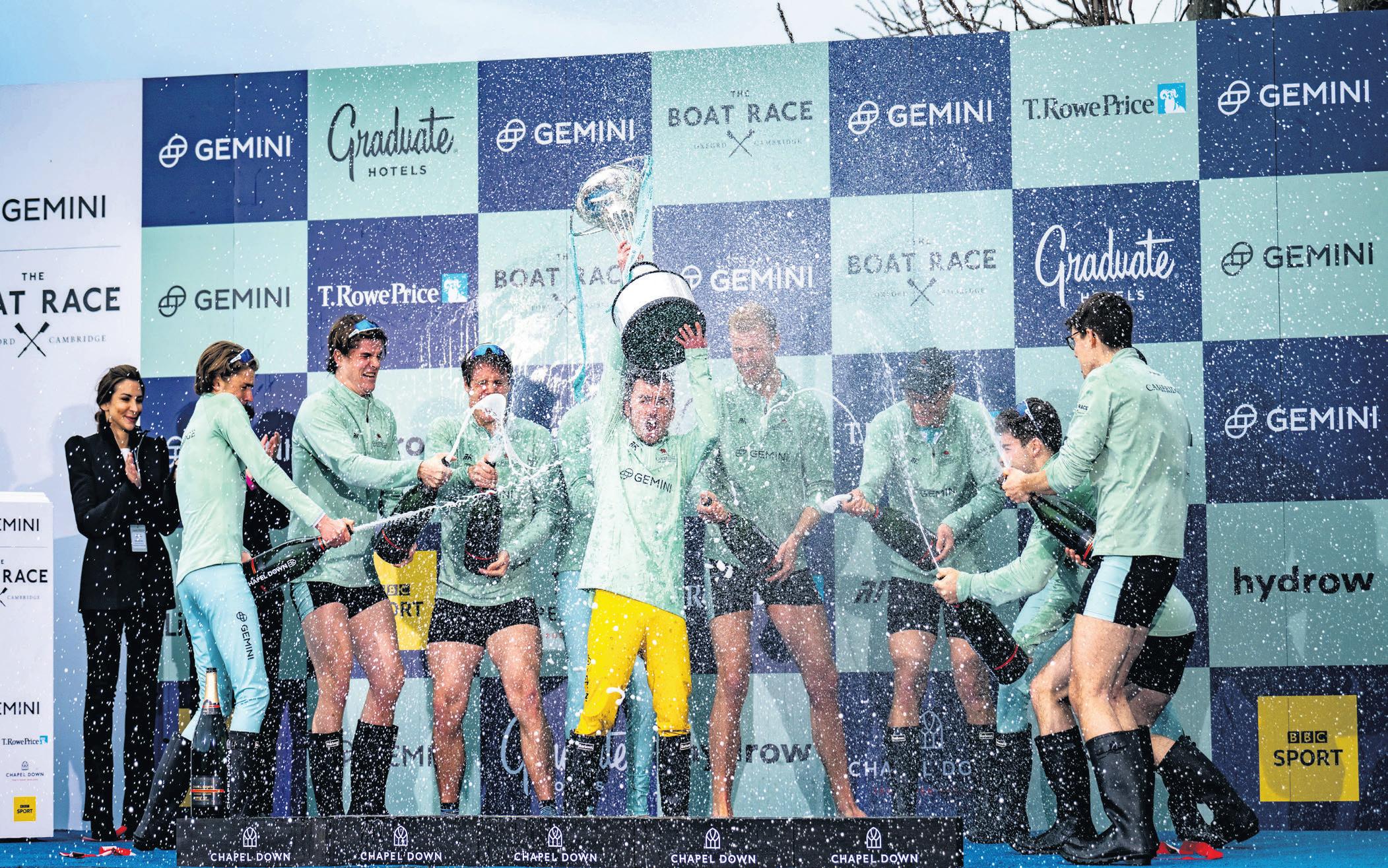
e Cambridge men’s Blue Boat, buoyed by the victories of the women’s Blues and both reserve boats, showed real grit and determination to ensure a Cambridge clean sweep in this year’s Boat Races.
Crowds of spectators lined both sides of the river and an abundance of Oxbridge college pu er wearing students ocked to the fan parks, gathering expectantly in front of the big screens for the nal race of the day. e Oxford and Cambridge crews were evenly matched, and the race was thrilling.
Oxford won the toss, choosing Surrey to put Cambridge on the Middlesex side. Drama ensued before the start, as the Cambridge boat had a rudder issue that needed some quick repairs, but the Cambridge rowers stayed calm and focused despite this pre-race disruption. Cambridge were powerful from the o , and cox Jasper
Parish almost immediately received several stern umpire warnings.


Encountering rough waves, Parish steered the boat towards the bank at Craven Cottage in search of calmer water. is was a daring and unorthodox decision since typically the aim is to keep the boat central where the deepest and fastest part of the river ows. What could have been a tactical blunder, was, thankfully for Cambridge’s sake, a stroke of genius. ey nudged in front, gaining a half length lead which they then capitalised on.
Approaching Hammersmith Bridge, Cambridge held the lead by a fraction of clear water. 80% of crews in front at this stage of the race win. However, this was still the Boat Race. Oxford would not let Cambridge break away and continued to chase them. Whilst Oxford made an impressive last charge attempt, it was all in vain, as the race had hinged earlier on Parish’s decision which gave Cambridge the edge in this tightly fought battle.
e Cambridge men erupted in cheers of delight as they crossed the
nish line with Jasper clambering over to hug his brother Ollie. Subsequent celebrations were understandably muted out of concern for Oxford’s stroke Felix Drinkall who required medical attention and was taken to hospital for checks.
It was a very good day to be a Light Blue. e recent amalgamation of the clubs under the one umbrella of CUBC was the key to Cambridge domination. All crews now train together which has built a strong team dynamic, and this was evident as all four teams celebrated on the podium together.. Victories in both lightweight races the previous week means that this year will go down in history as one of the best performances that Cambridge University Boat Club has ever seen.
32 Friday 21st April 2023
Making coxing cool again pg 31
“Irealisedwhat adreadful personIwas whenIwas cycling.” pg31
❝
This was a daring and unorthodox decision

 Erik Olsson Senior News Editor
Erik Olsson Senior News Editor












































 Michael Hennessey Senior News Editor
Michael Hennessey Senior News Editor





























 Alice Stephens
Alice Stephens
































































 Kathryn Austen
Kathryn Austen
 Alice Mainwood
Alice Mainwood














 Leo Kang & Daniel Hilton
Leo Kang & Daniel Hilton














































































































































































































































































































 Emmy Warr – Pornography by The Cure
Alex Brian – Metamorphosis by Phillip Glass
Georgie Atkinson – Jungle by Jungle
Emmy Warr – Pornography by The Cure
Alex Brian – Metamorphosis by Phillip Glass
Georgie Atkinson – Jungle by Jungle





























































































 James Hardy Sports Writer
James Hardy Sports Writer


 Abbie Hastie Sports Editor
Abbie Hastie Sports Editor






 Charlotte Bardsley Sports Writer
Charlotte Bardsley Sports Writer






